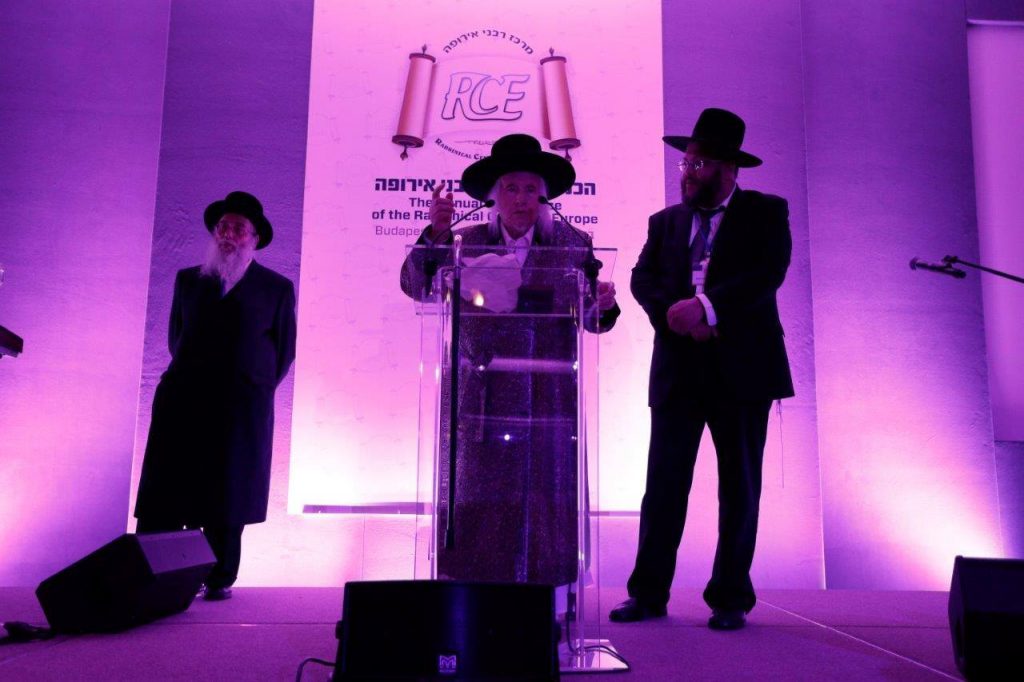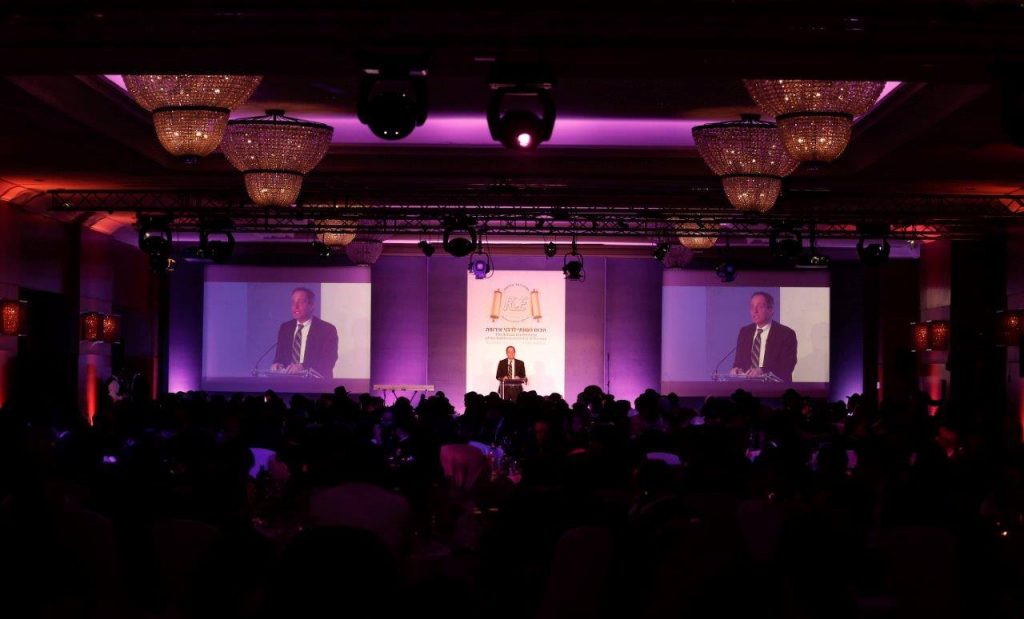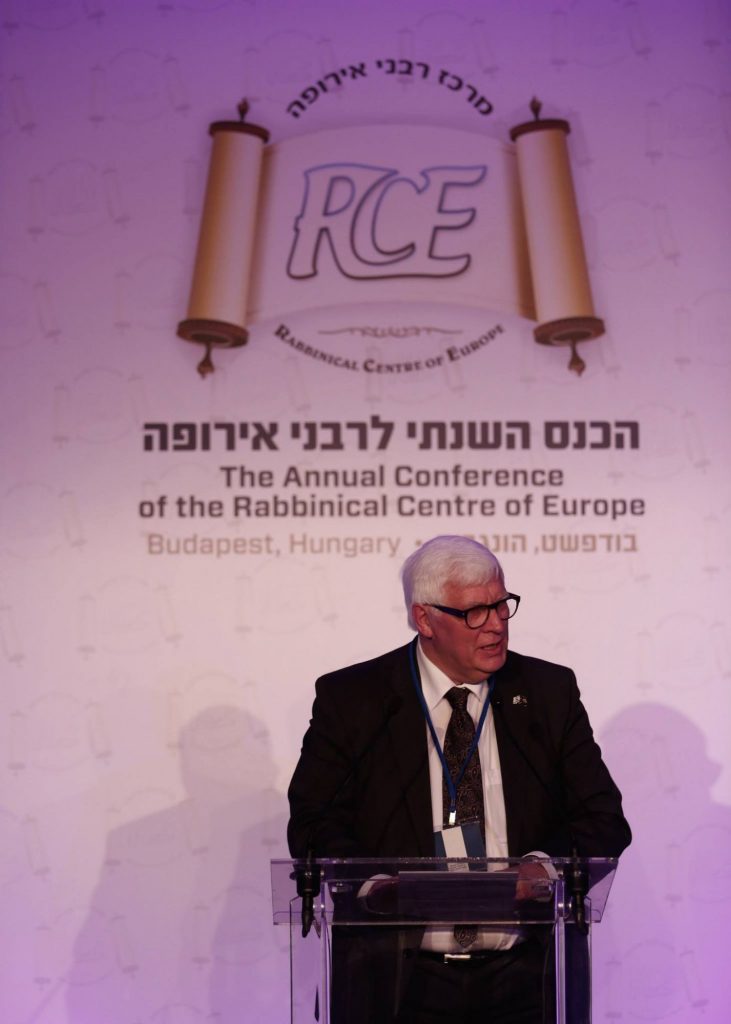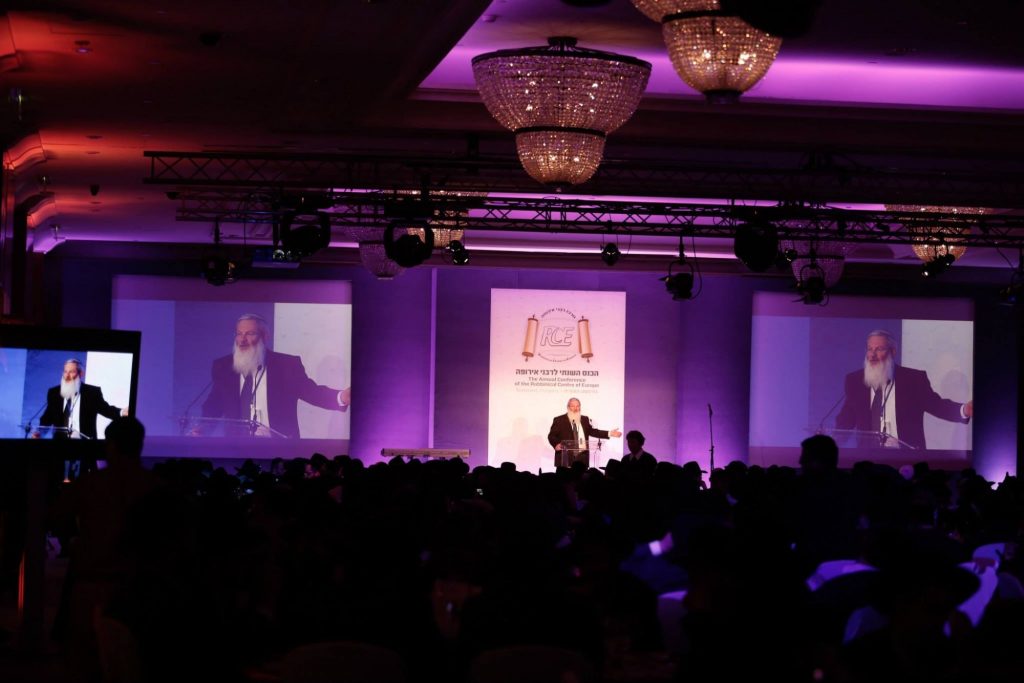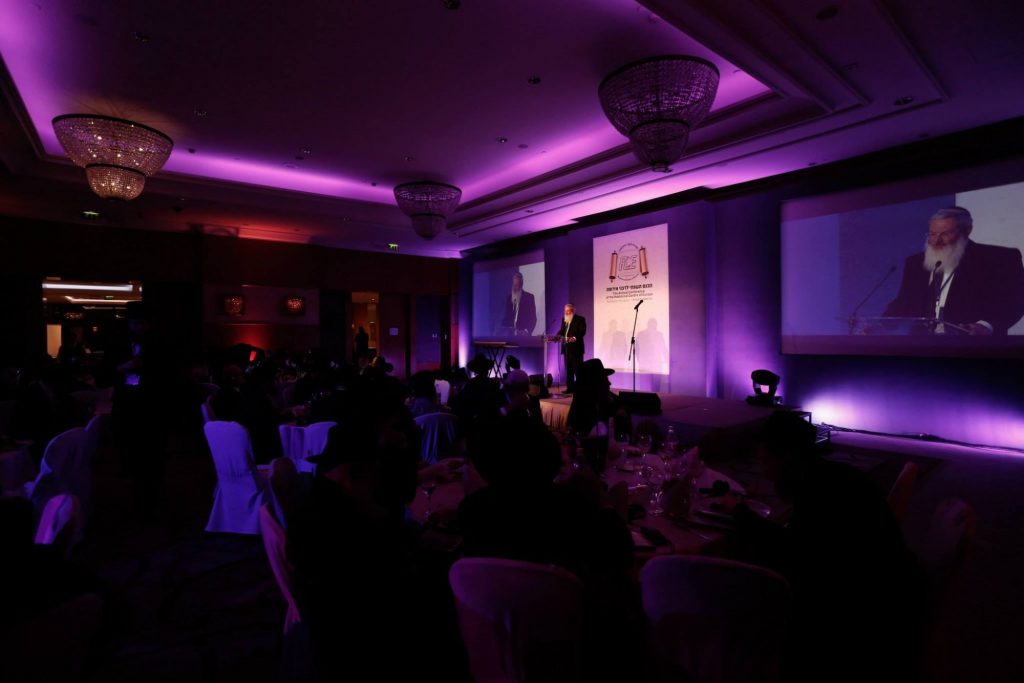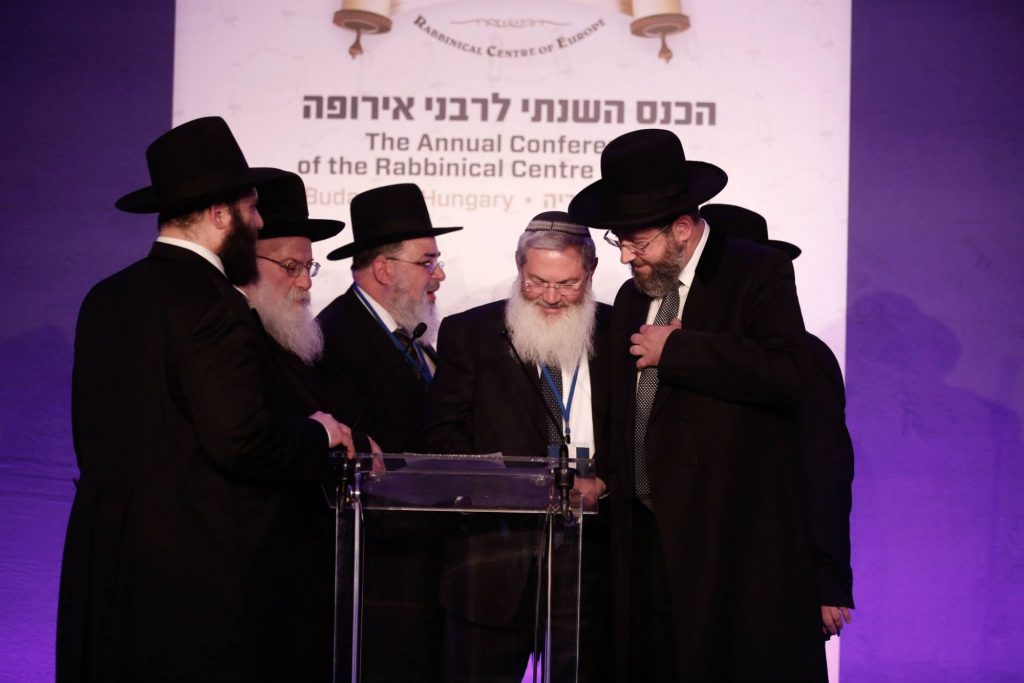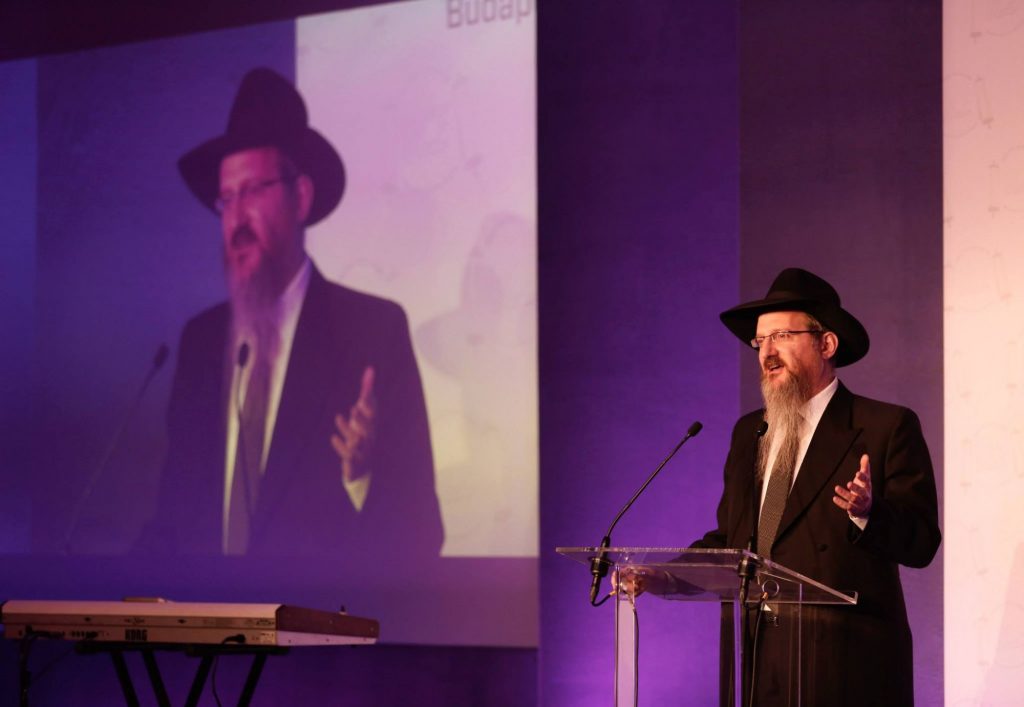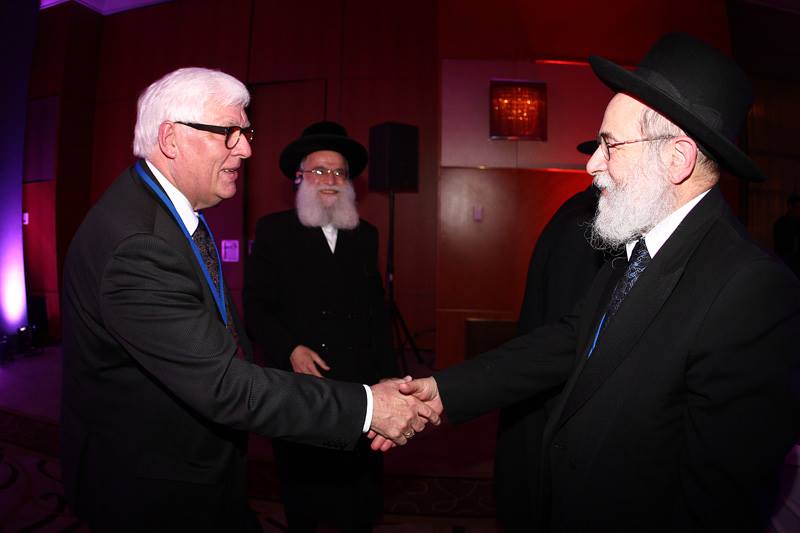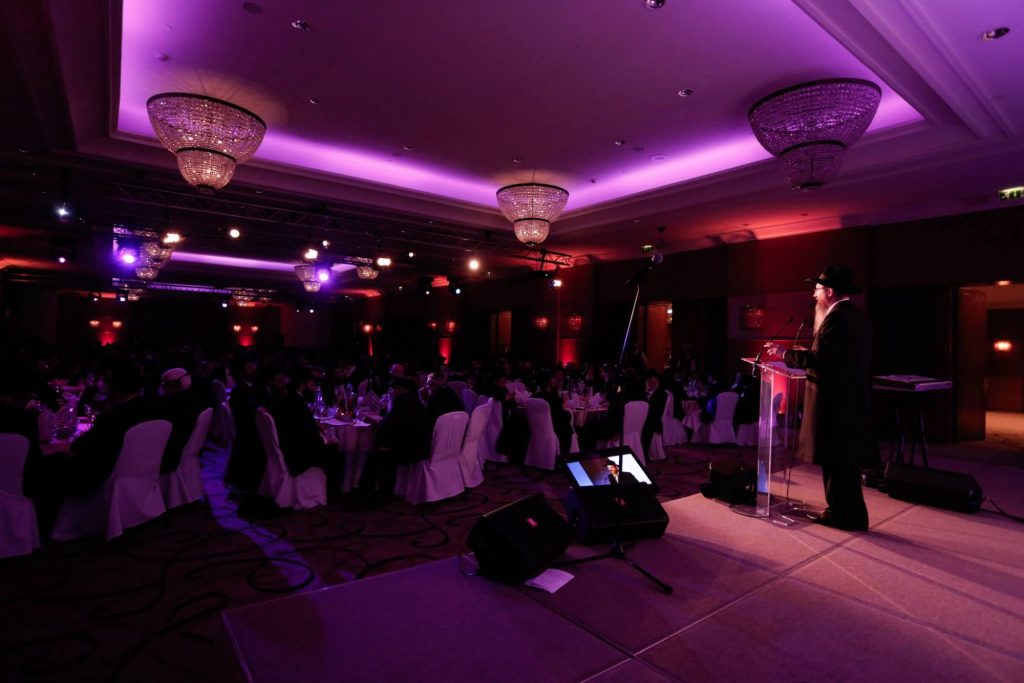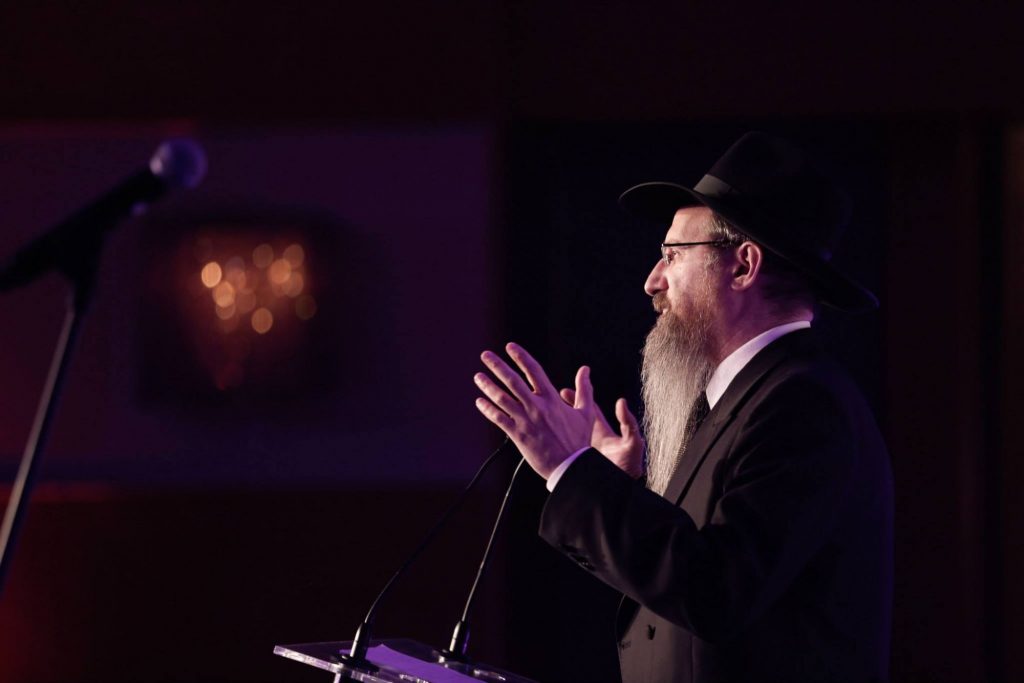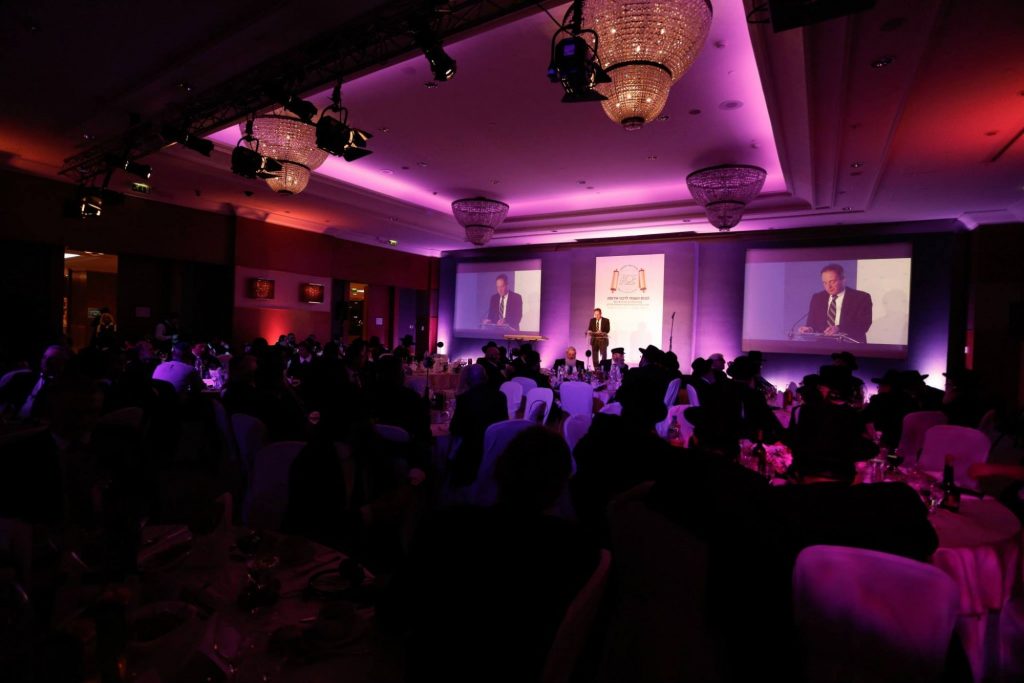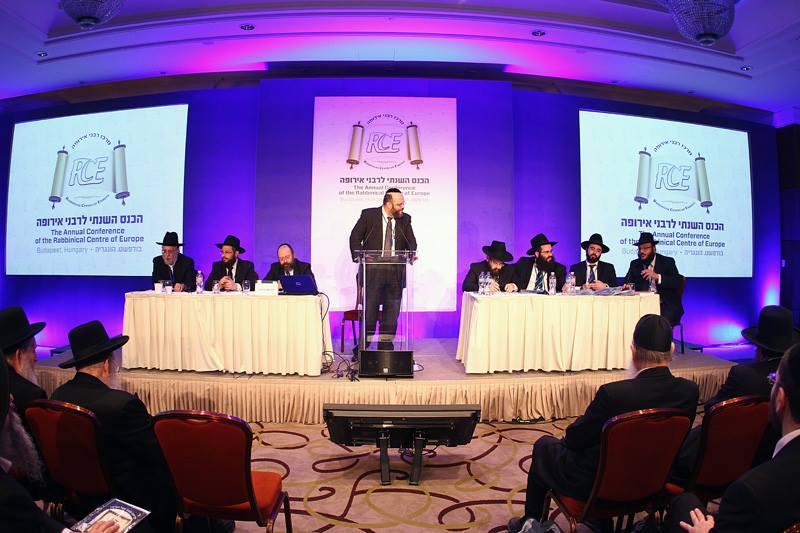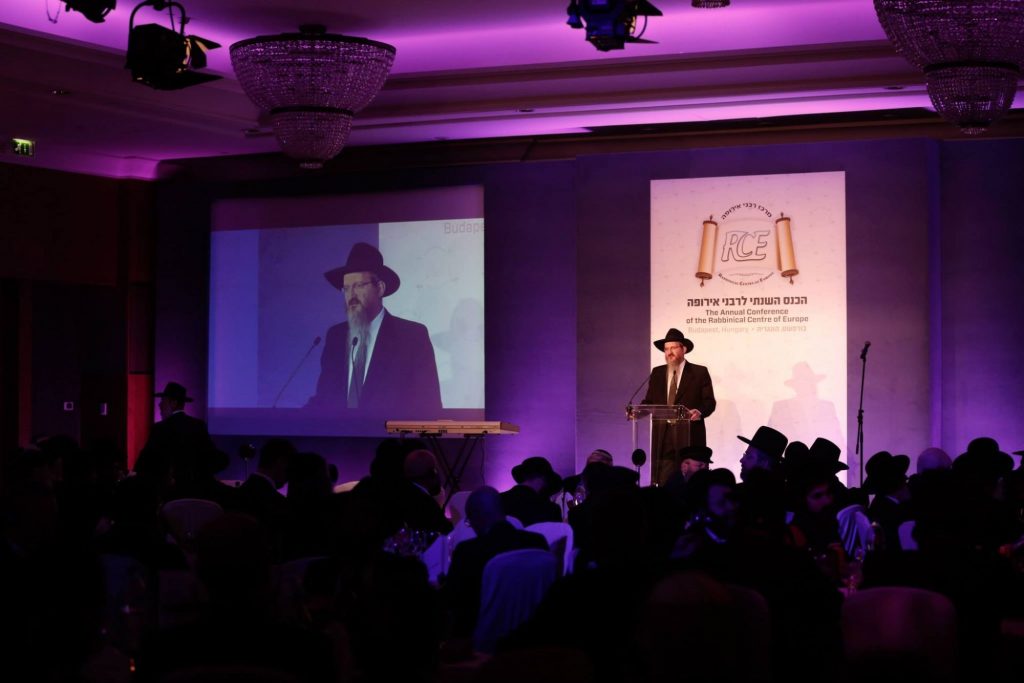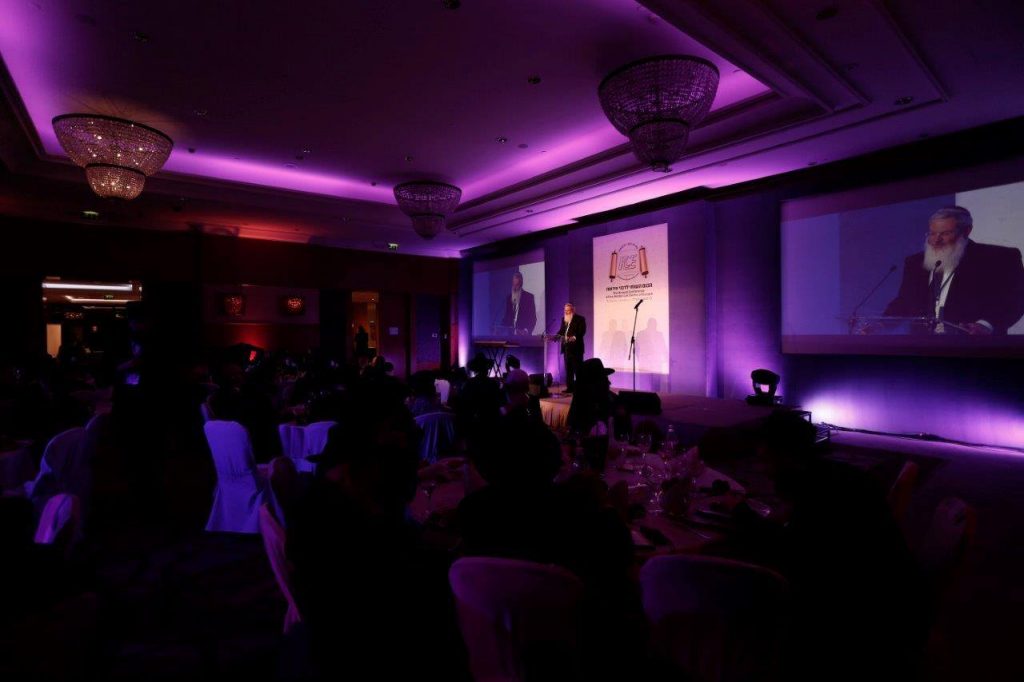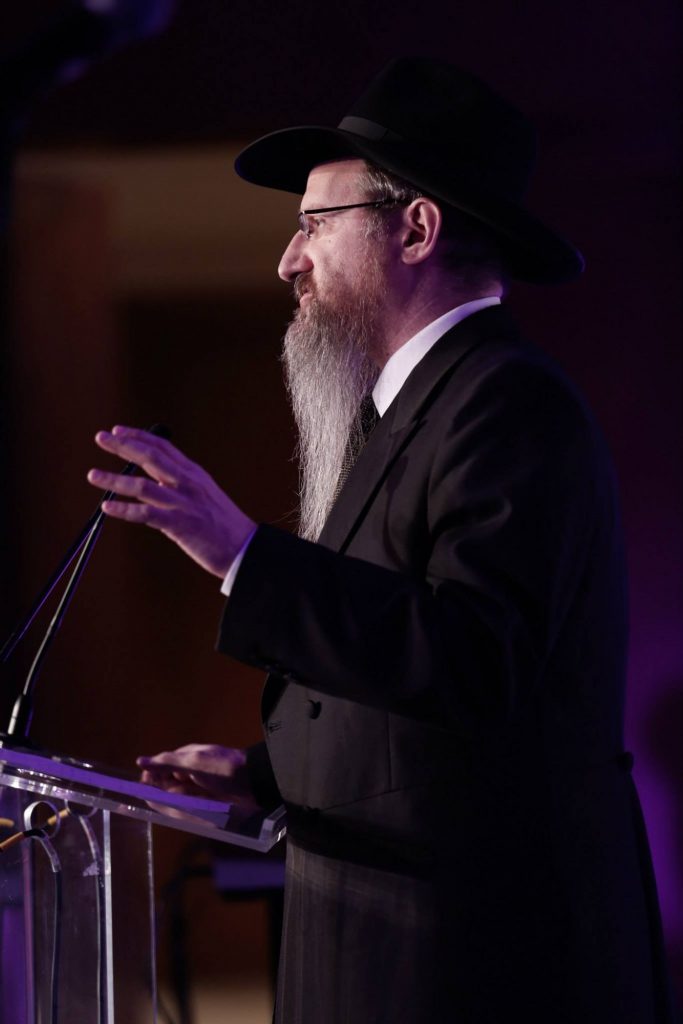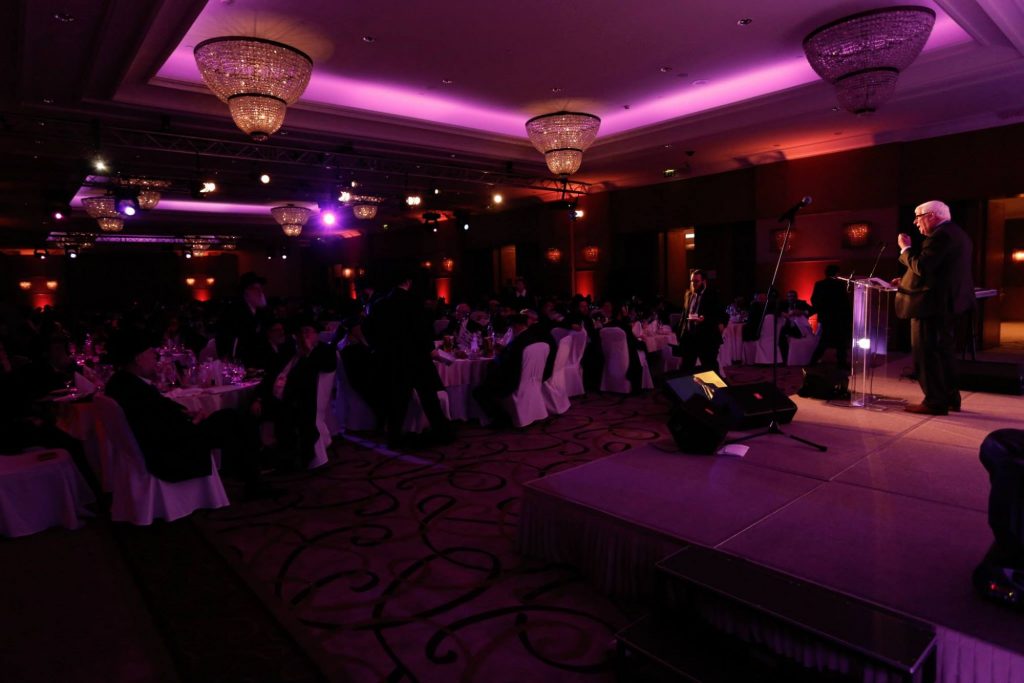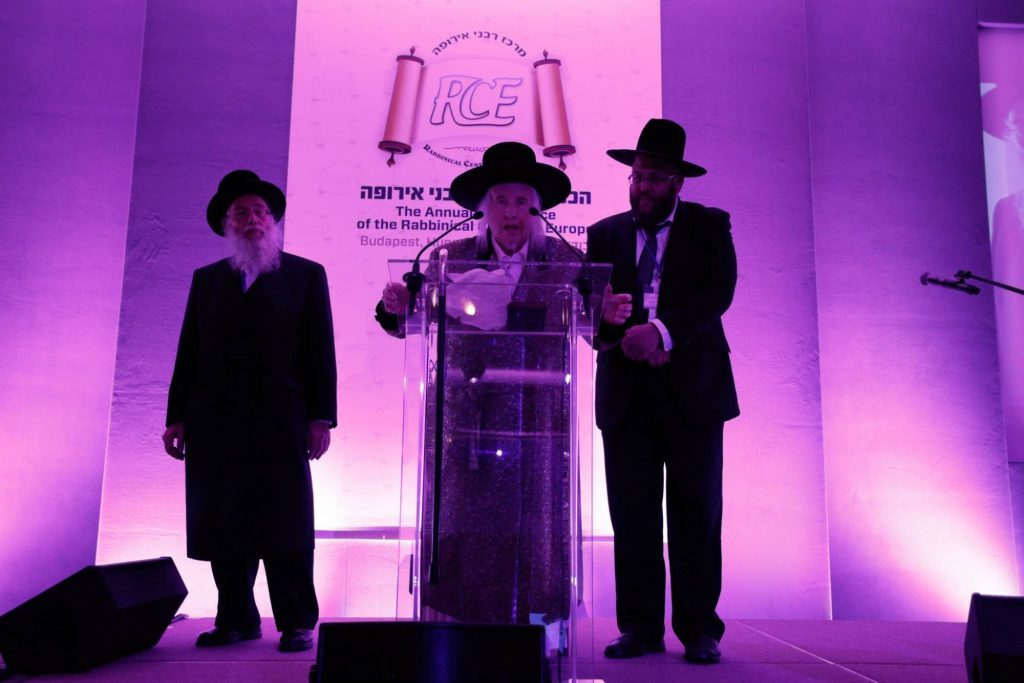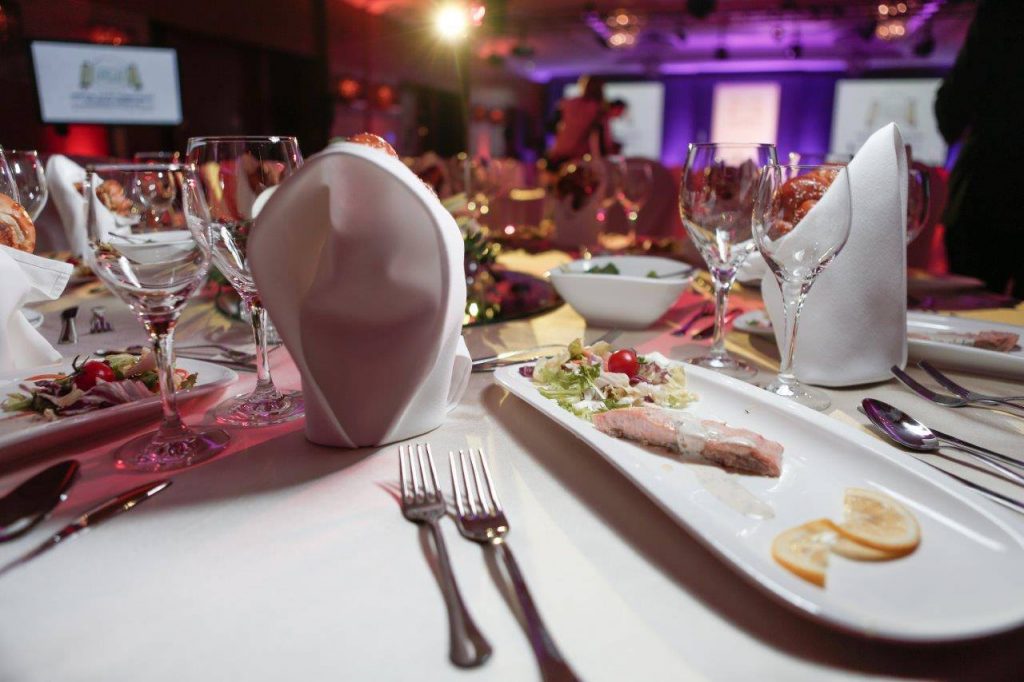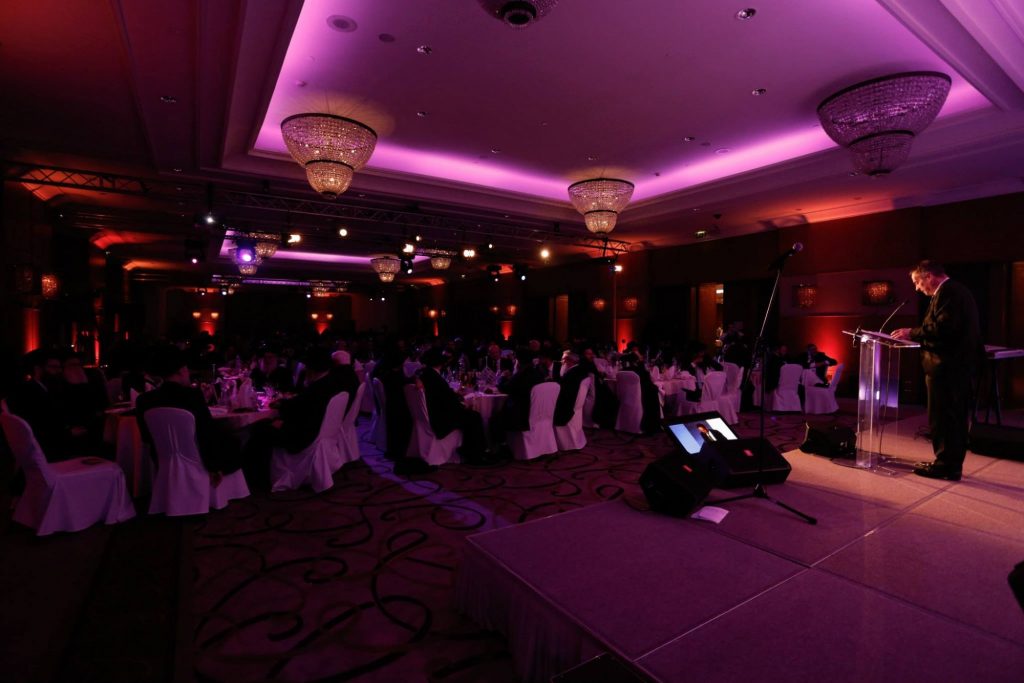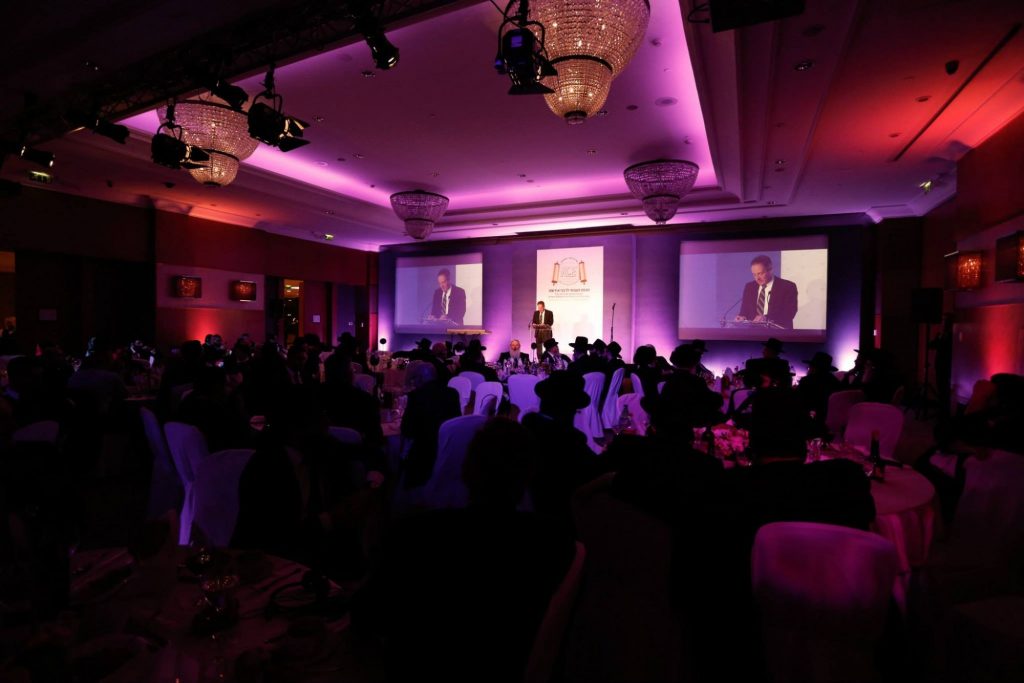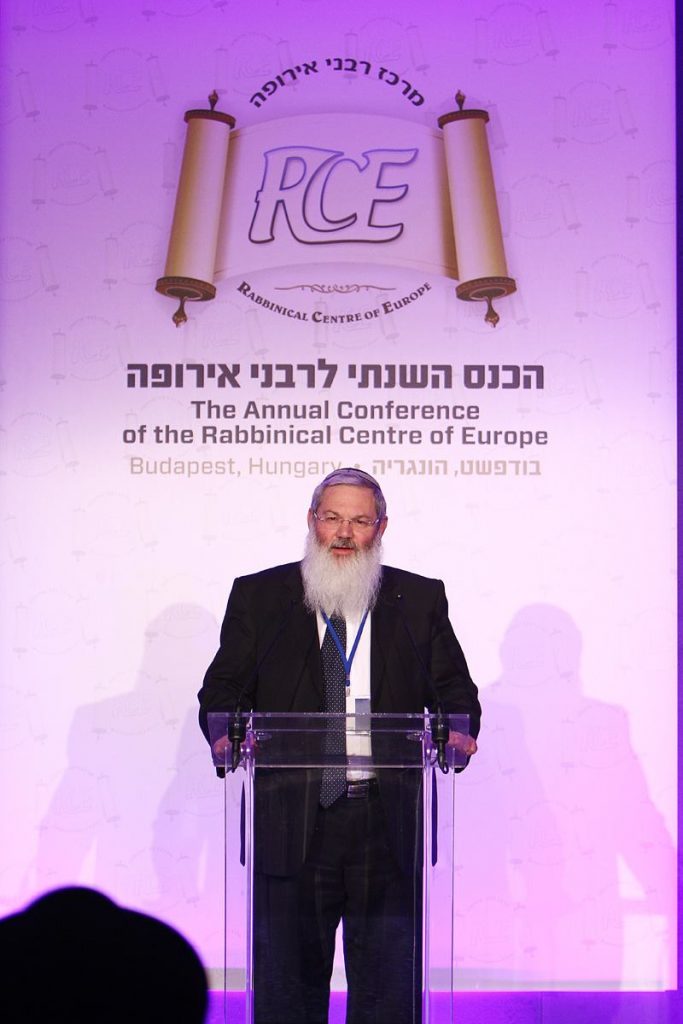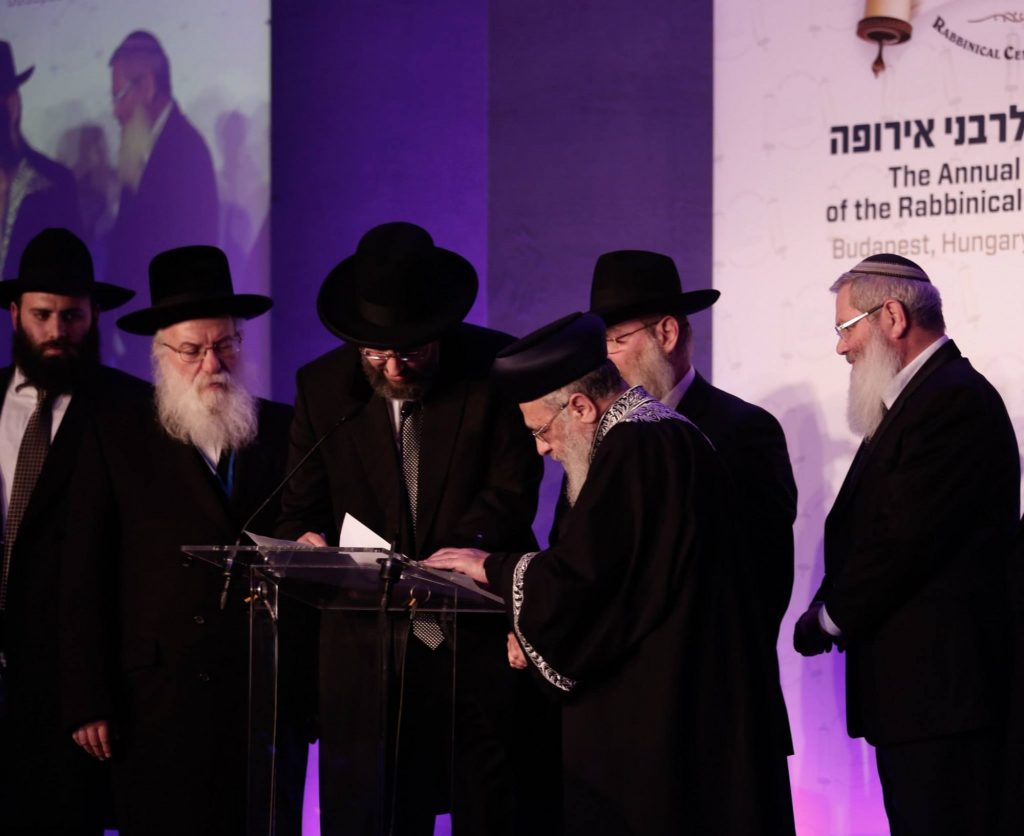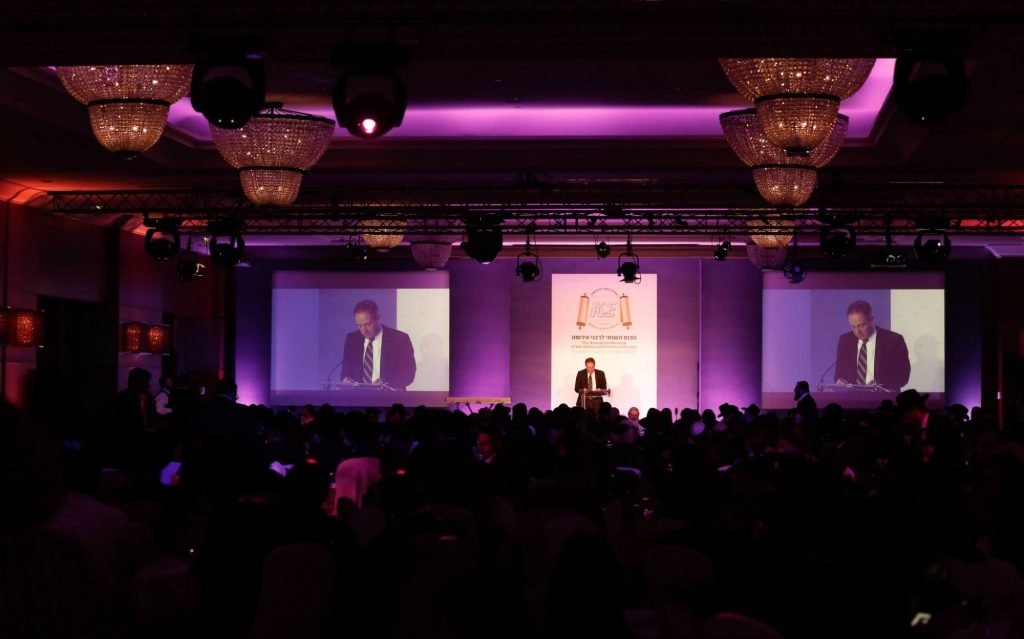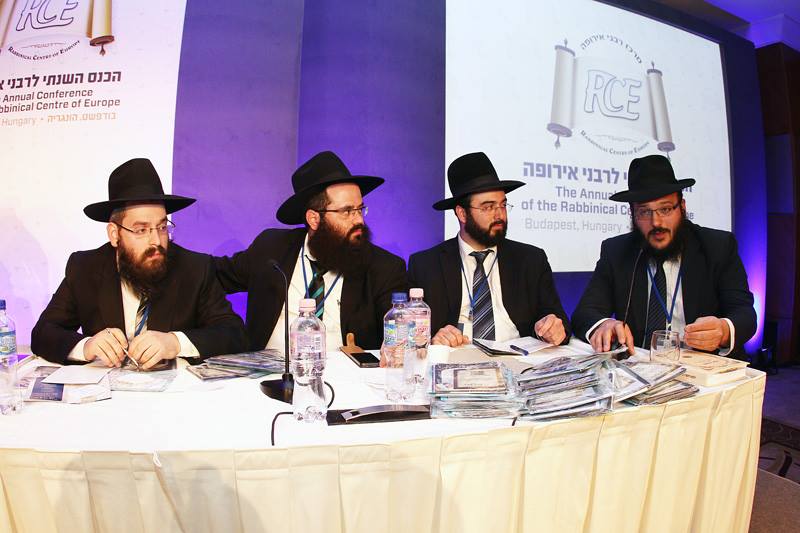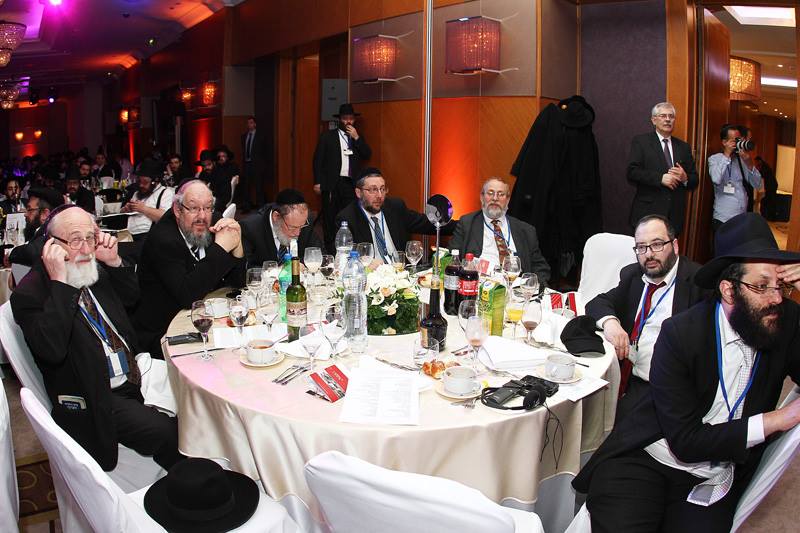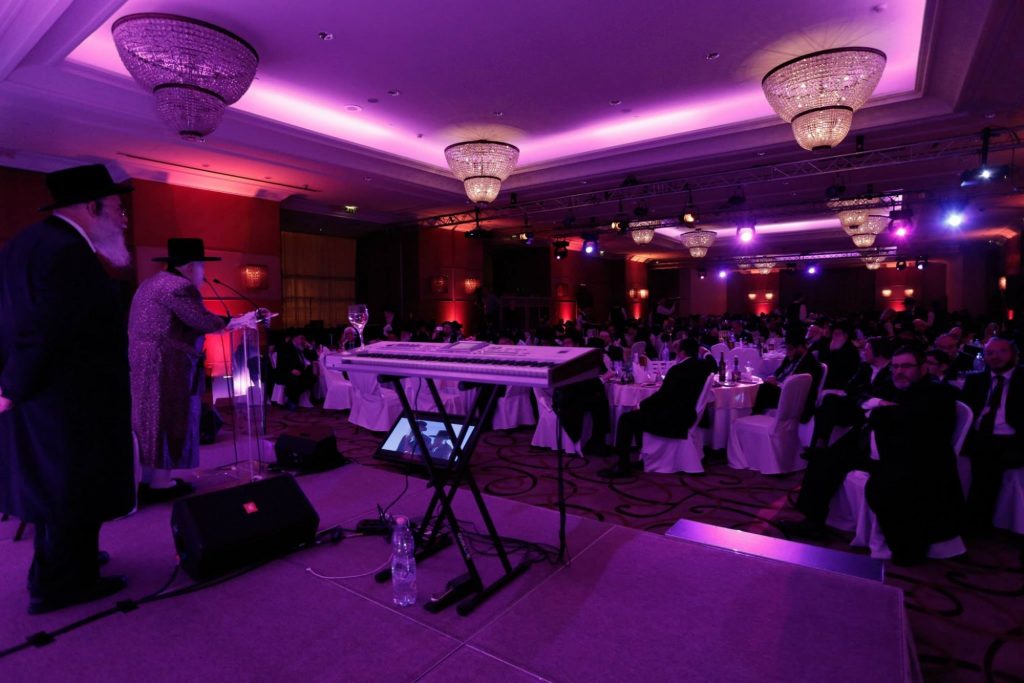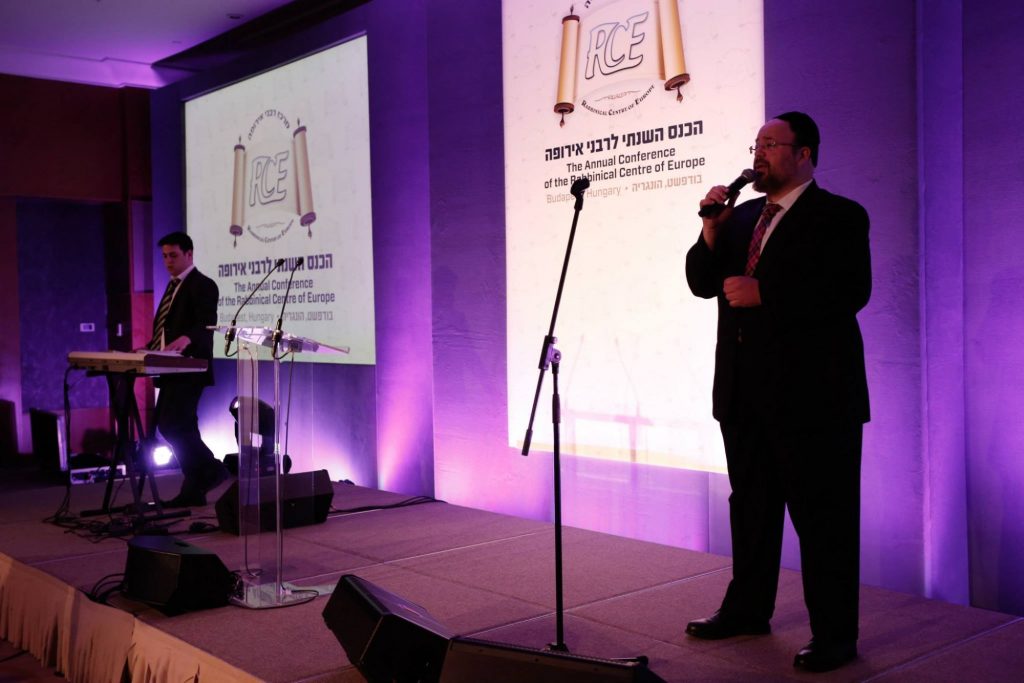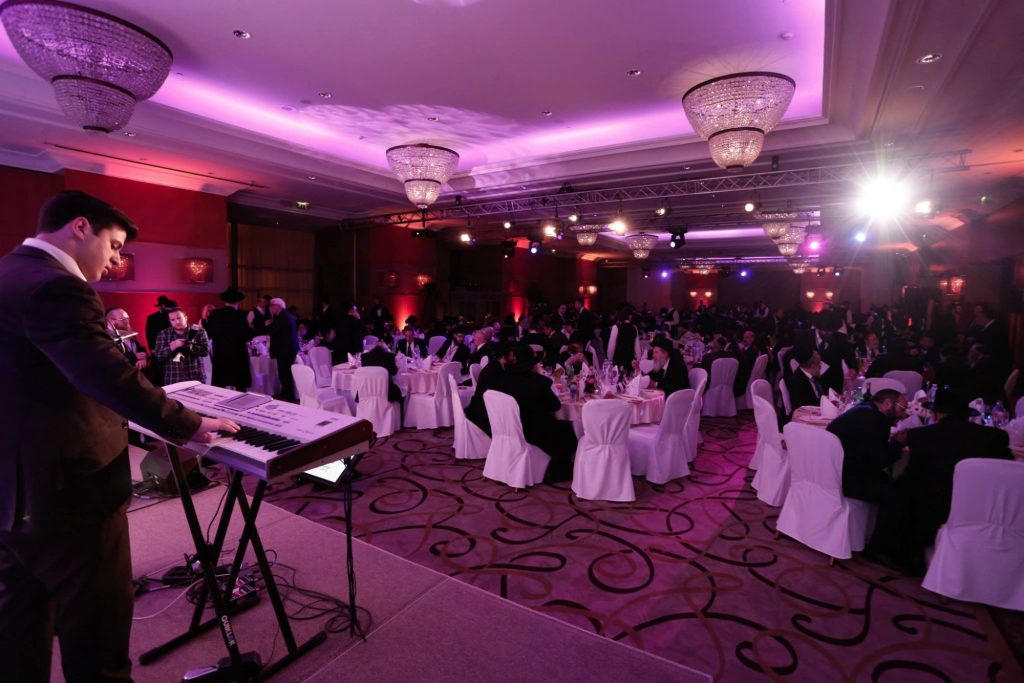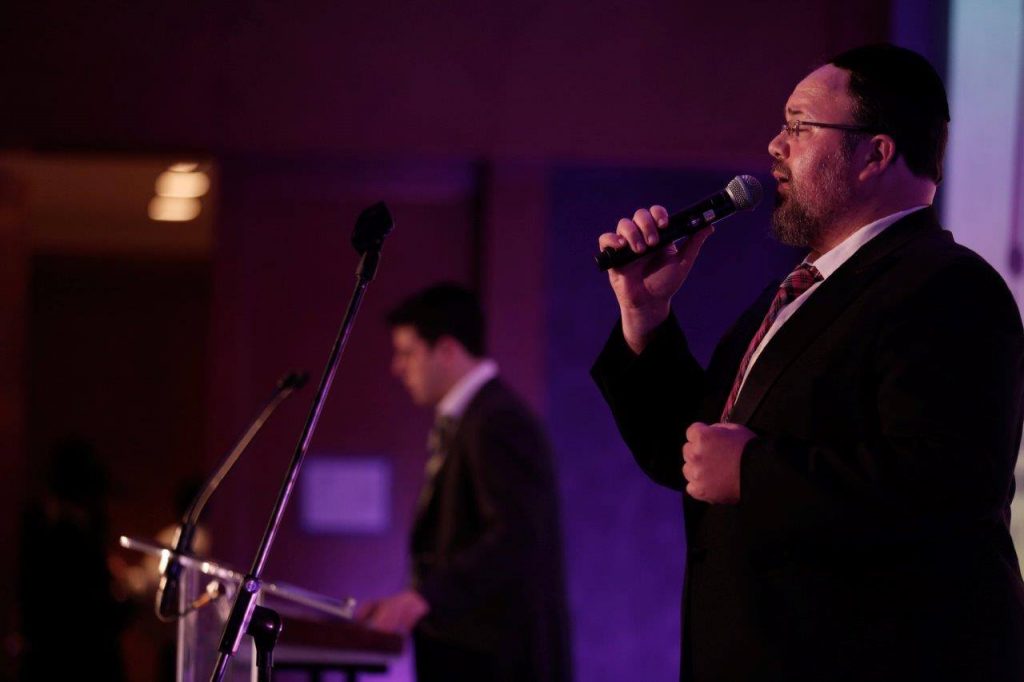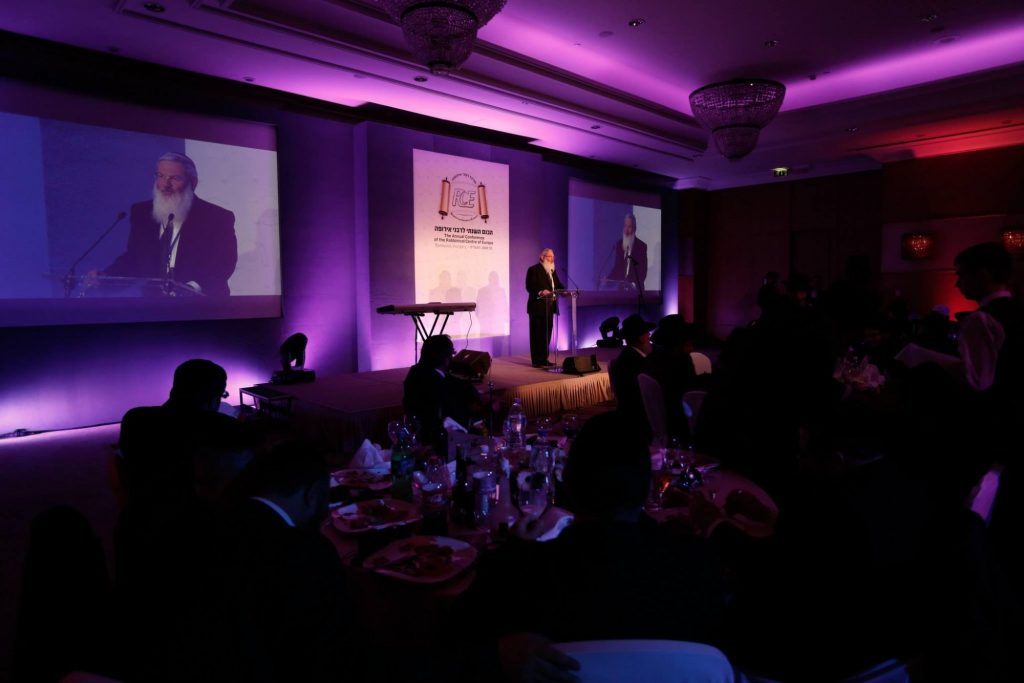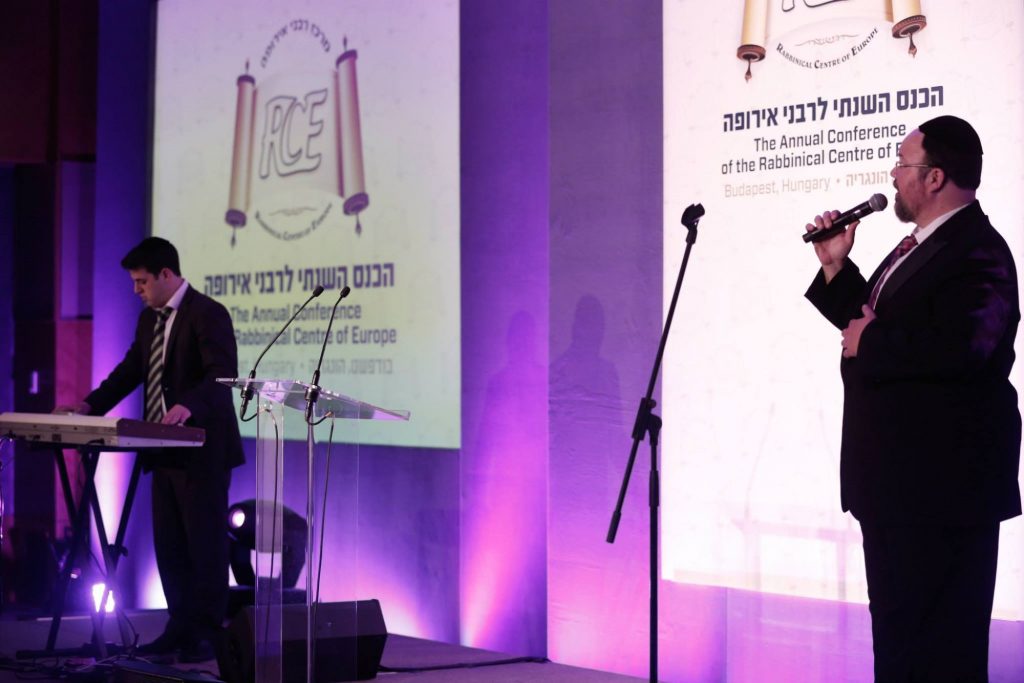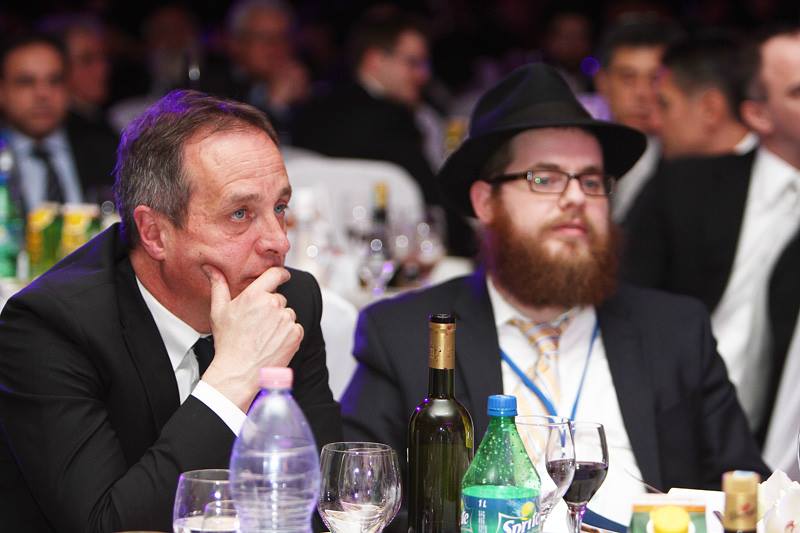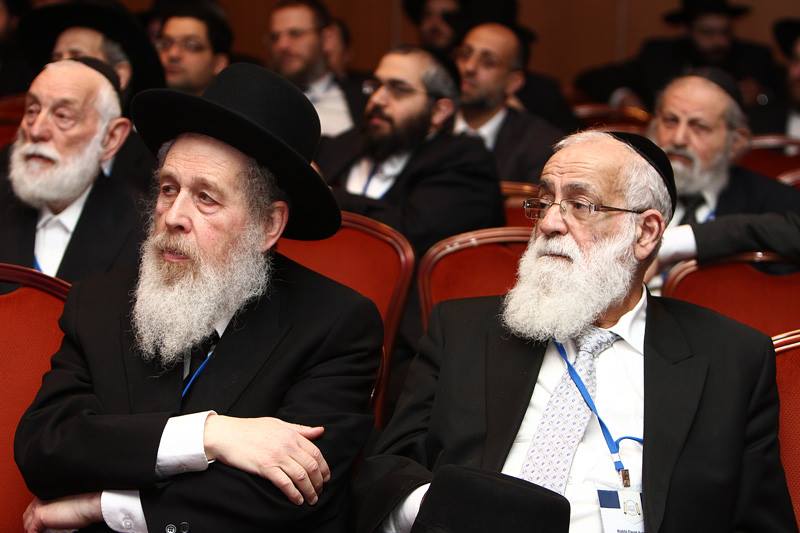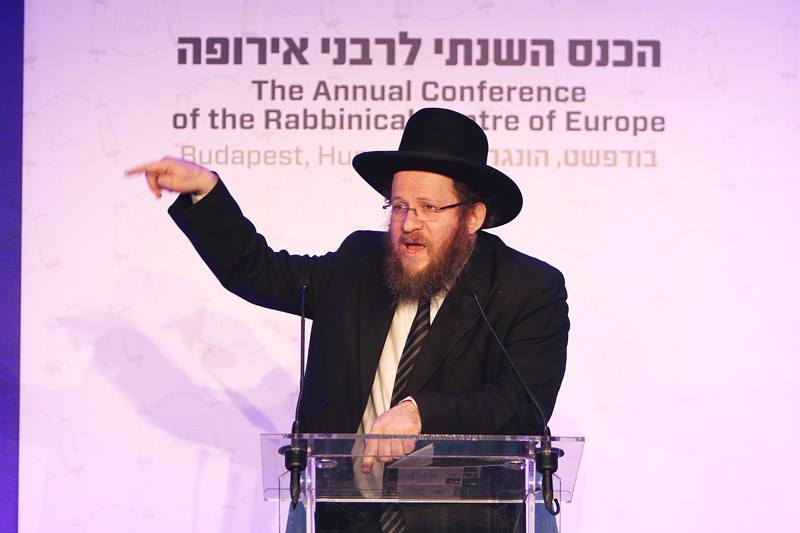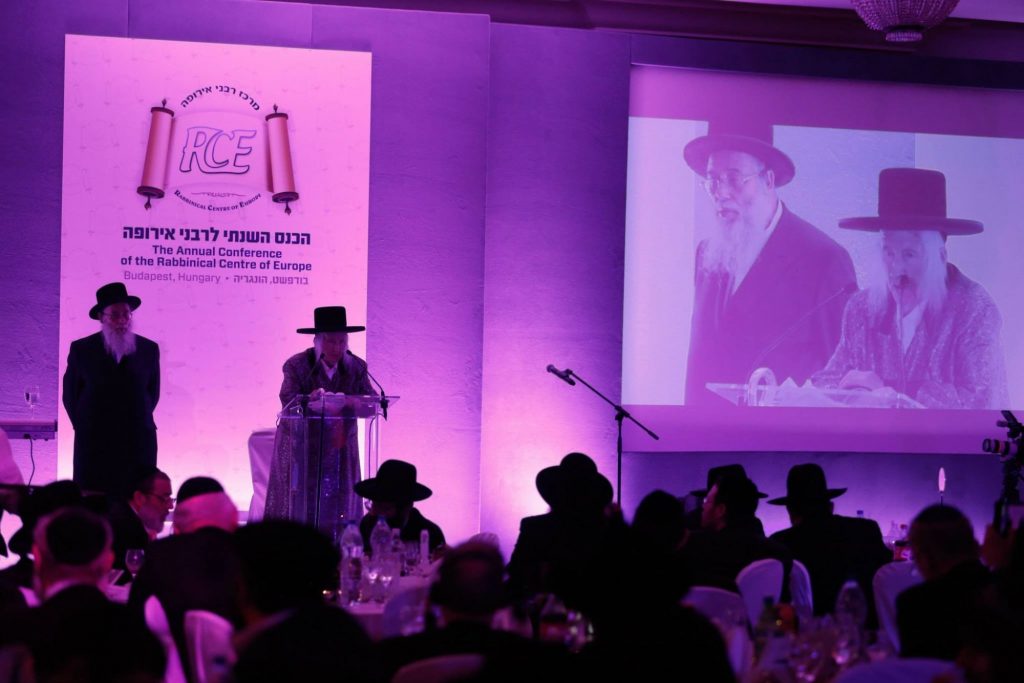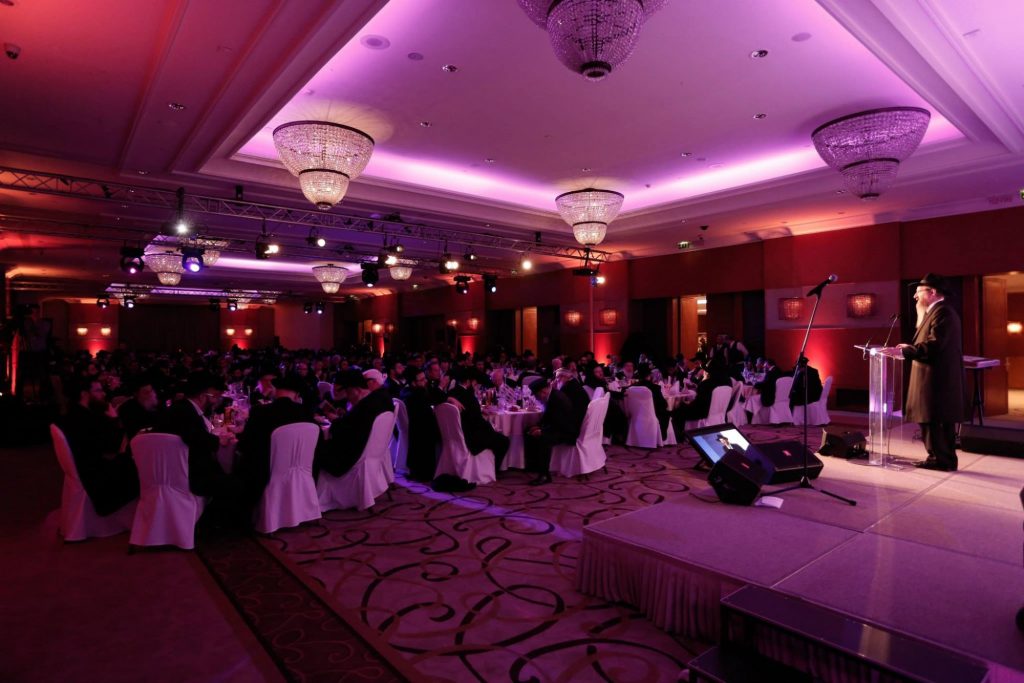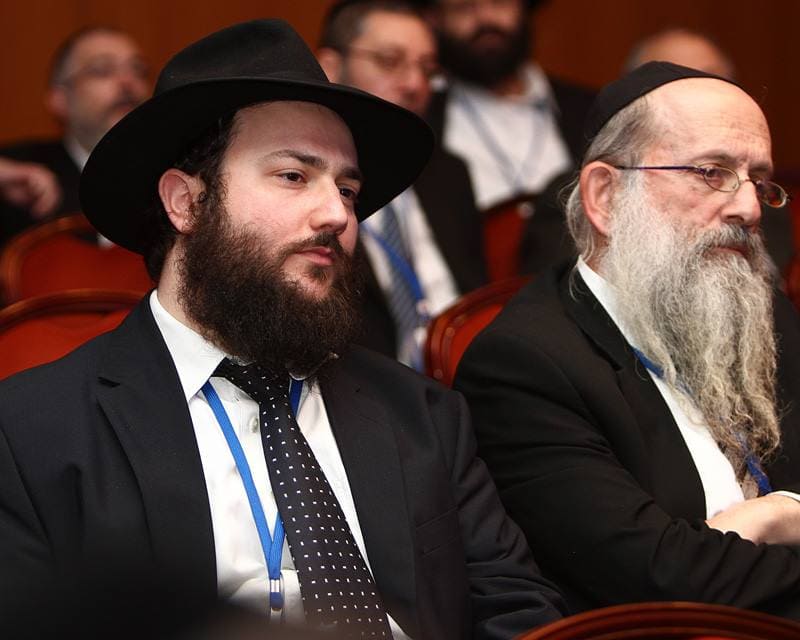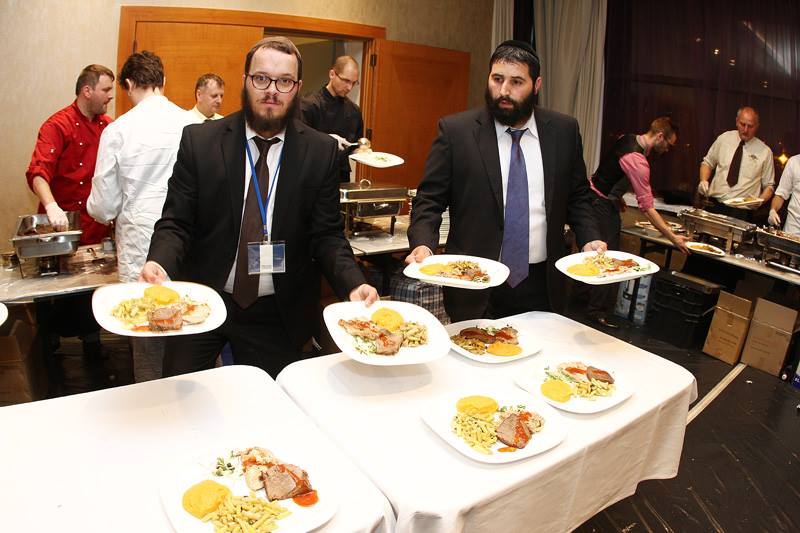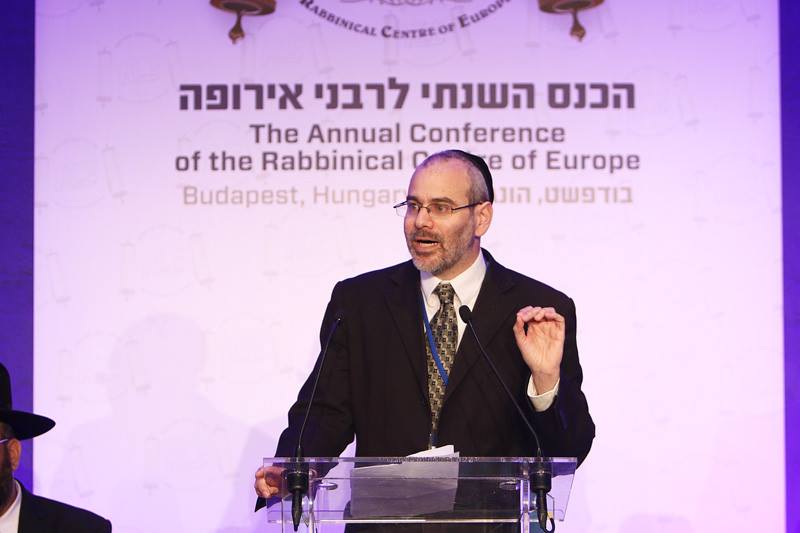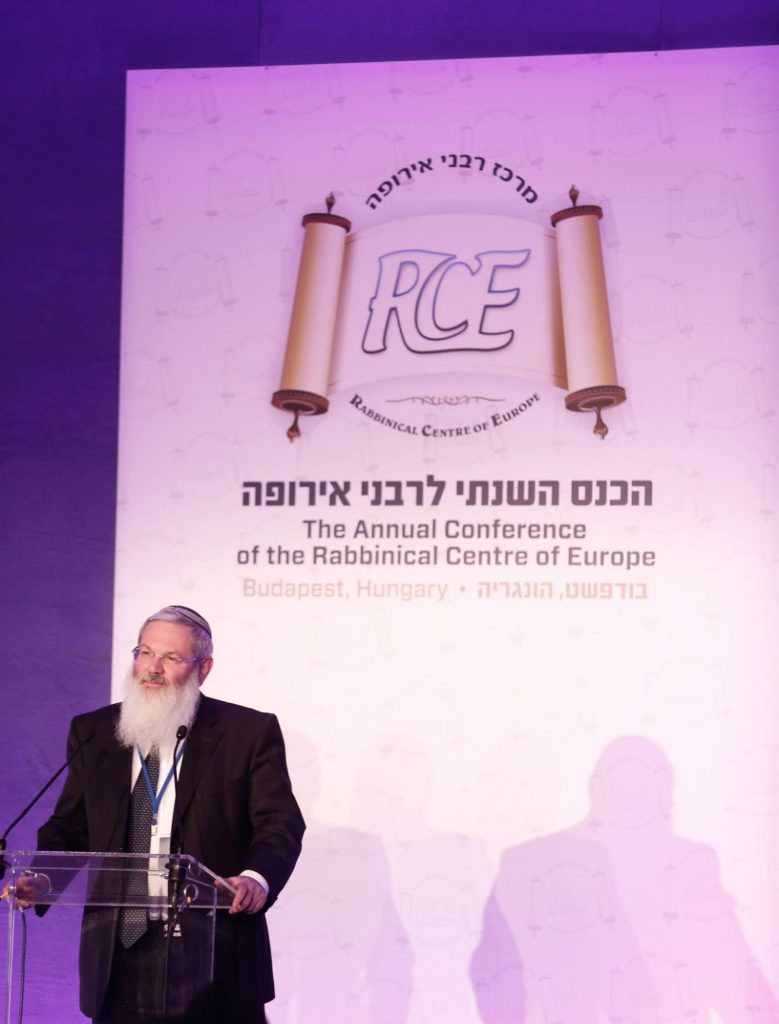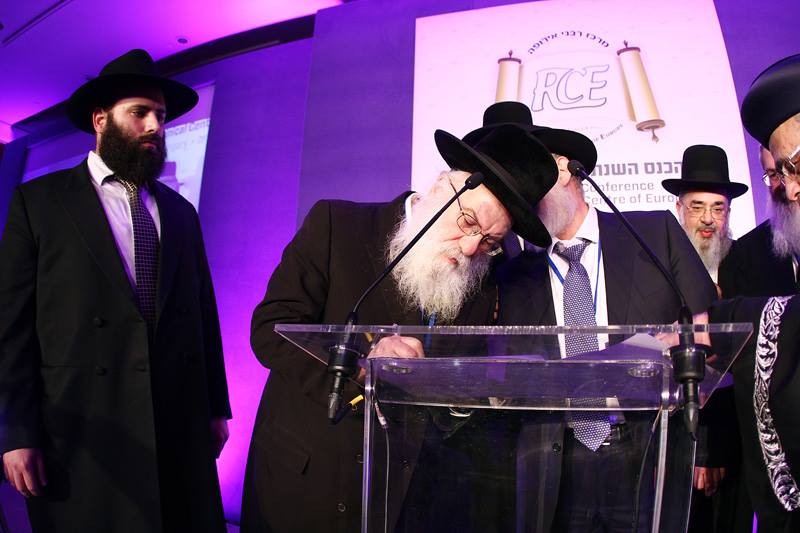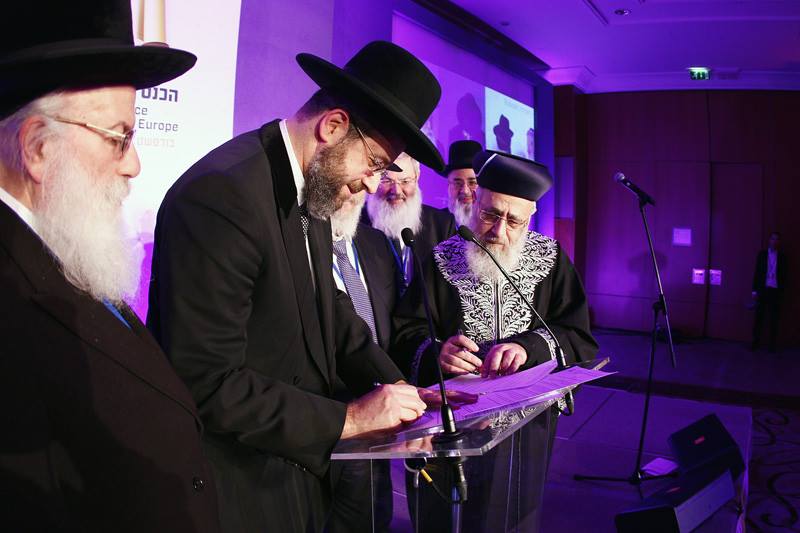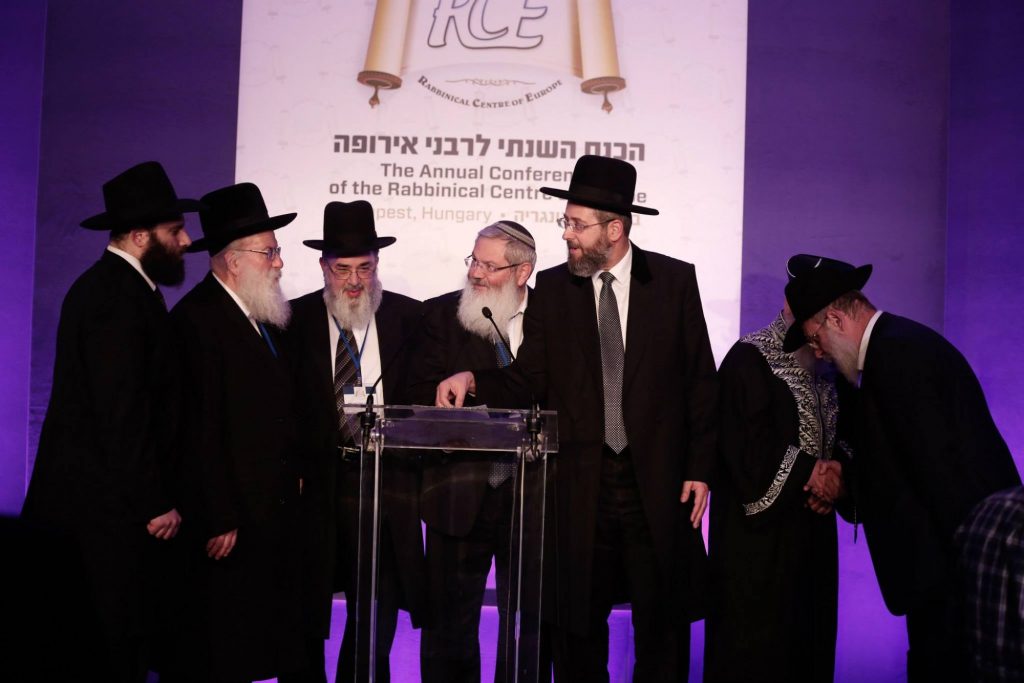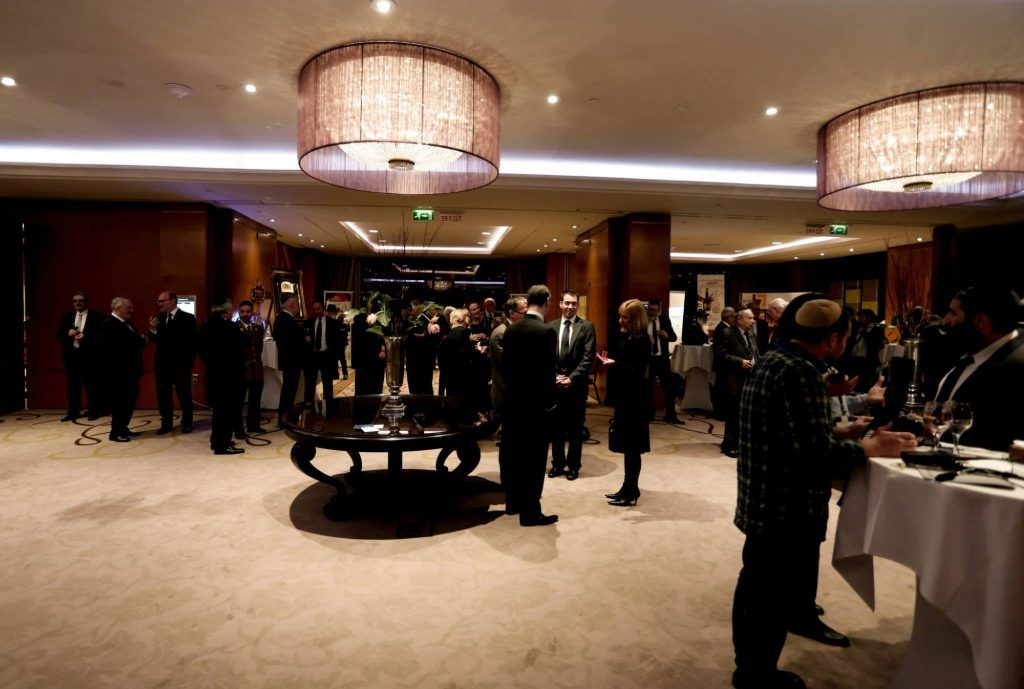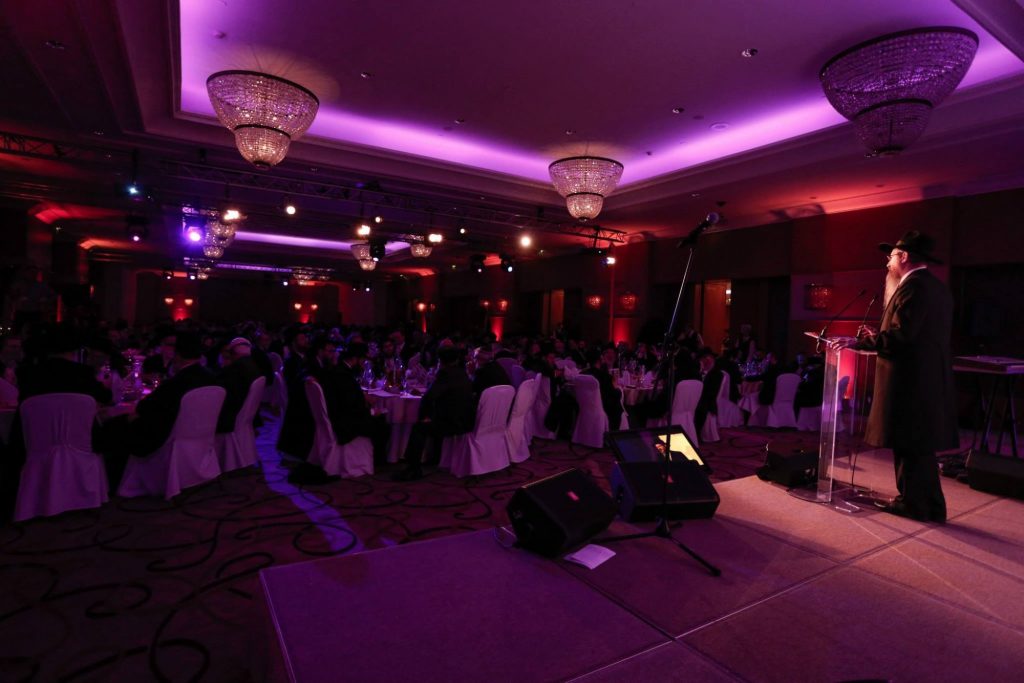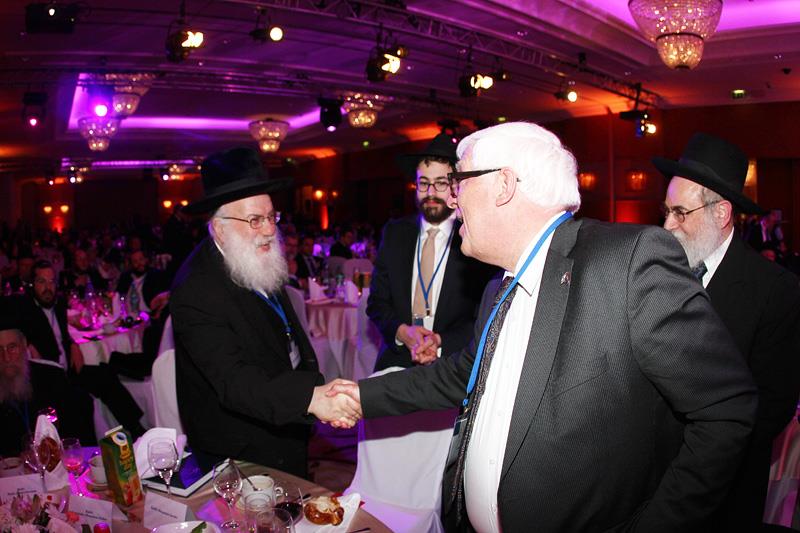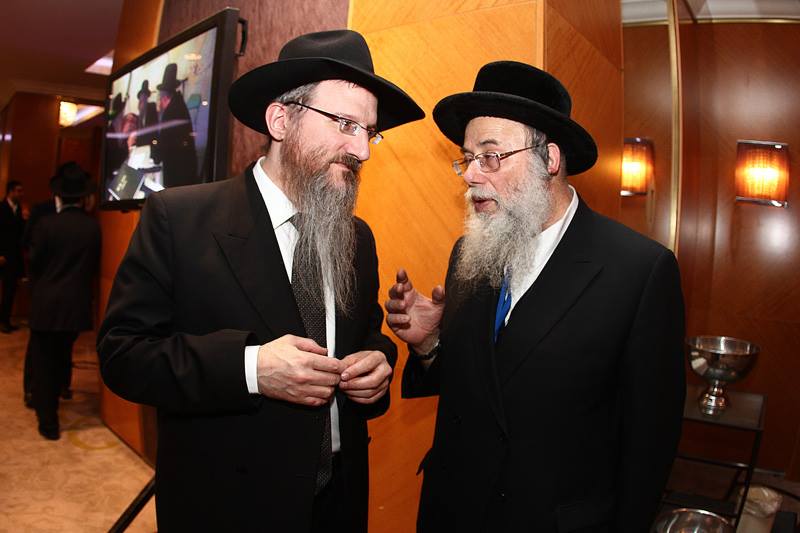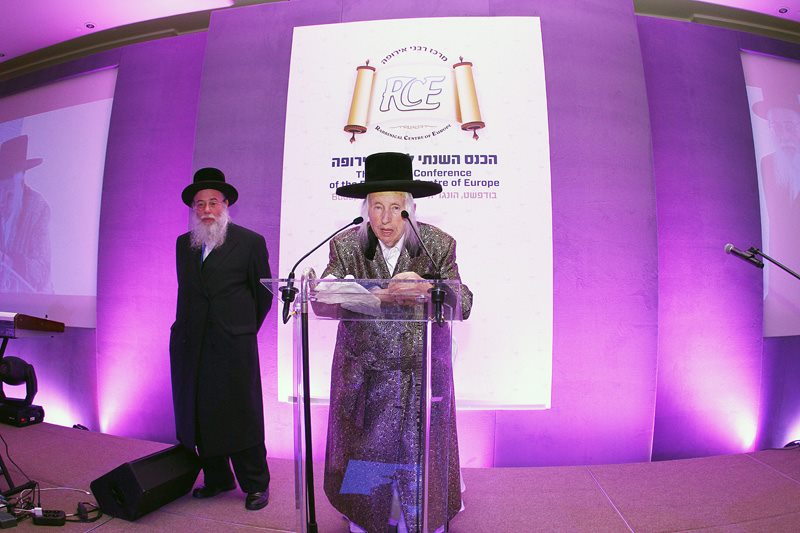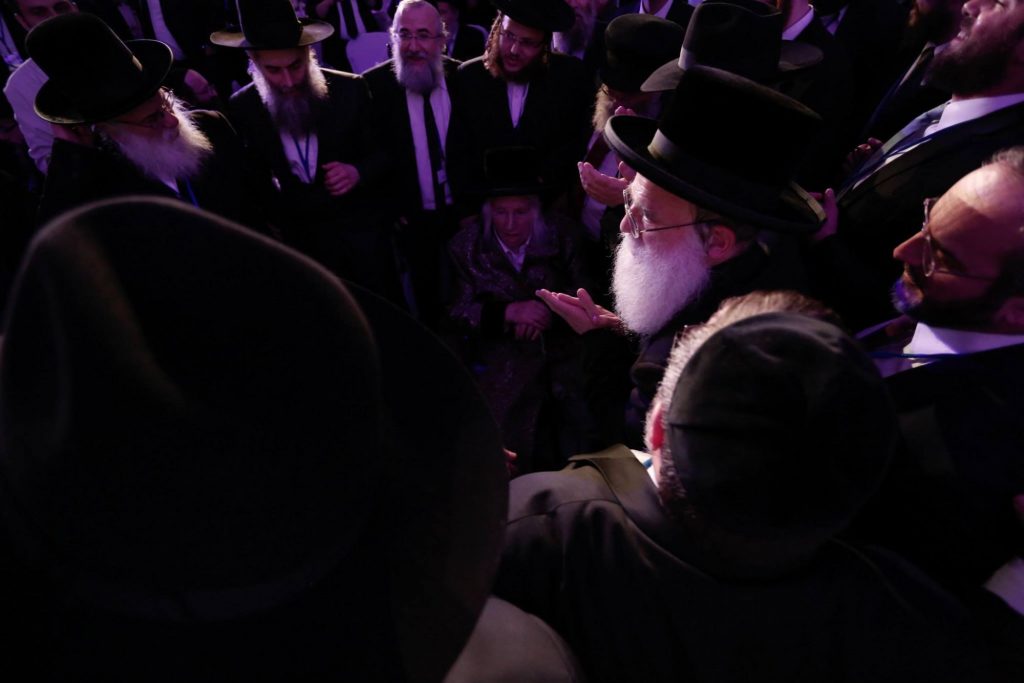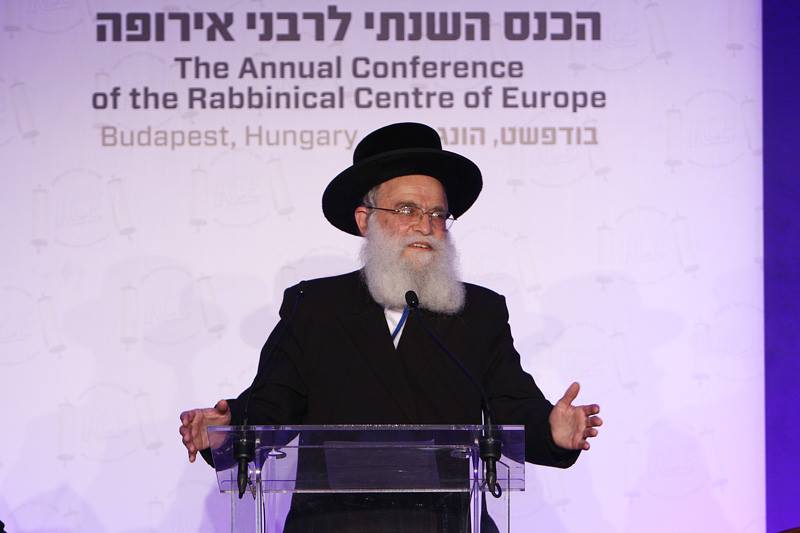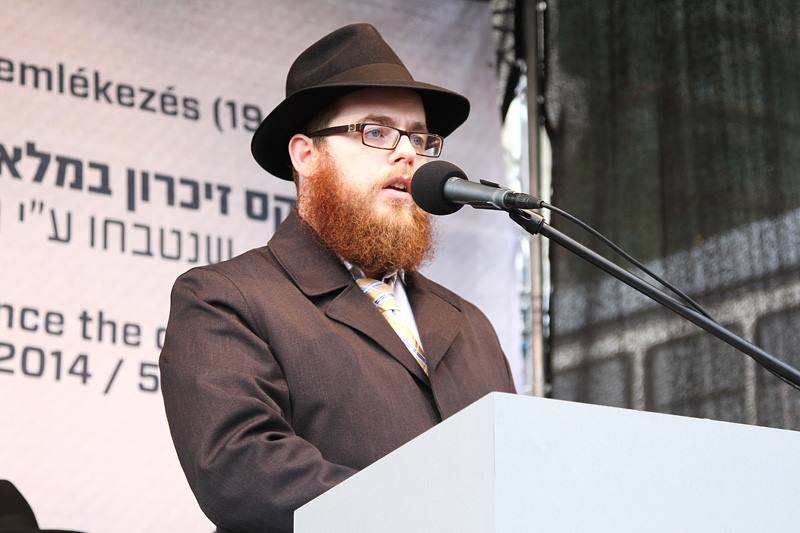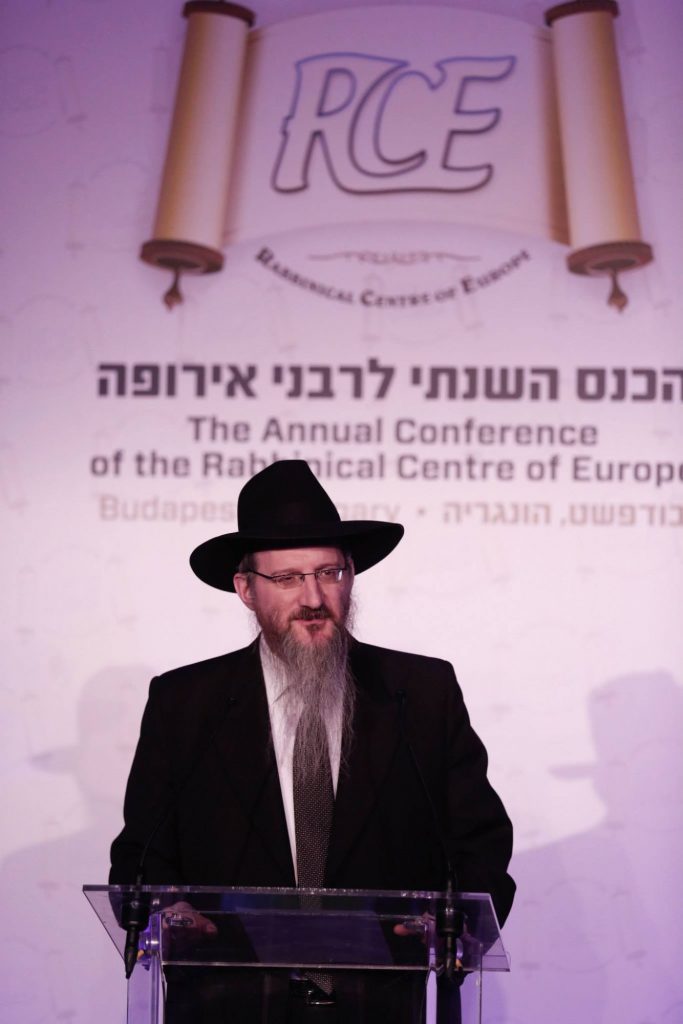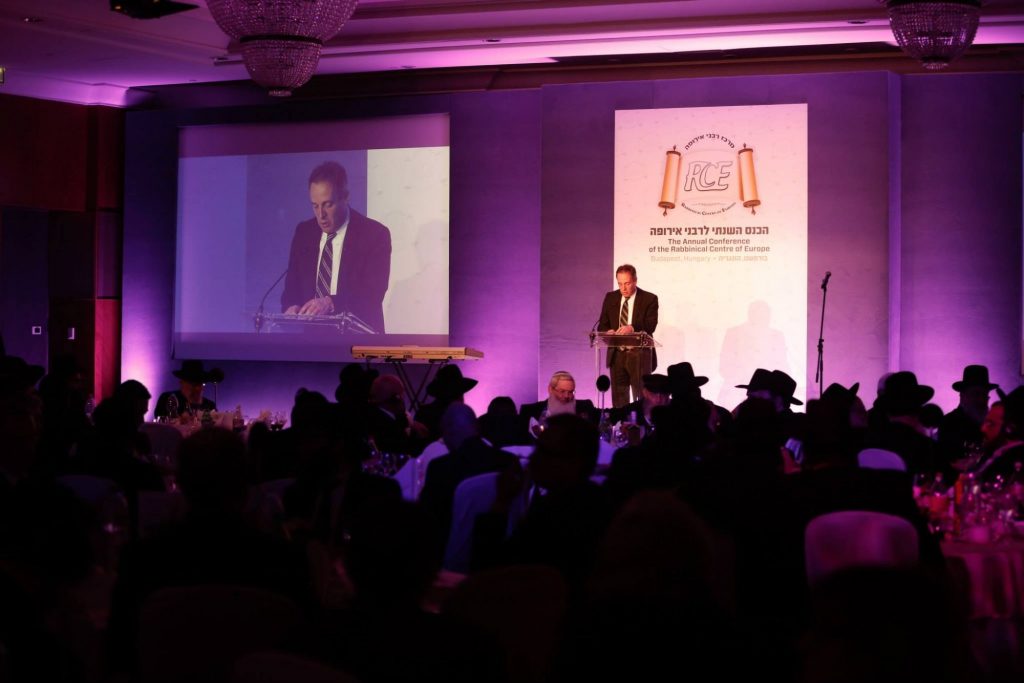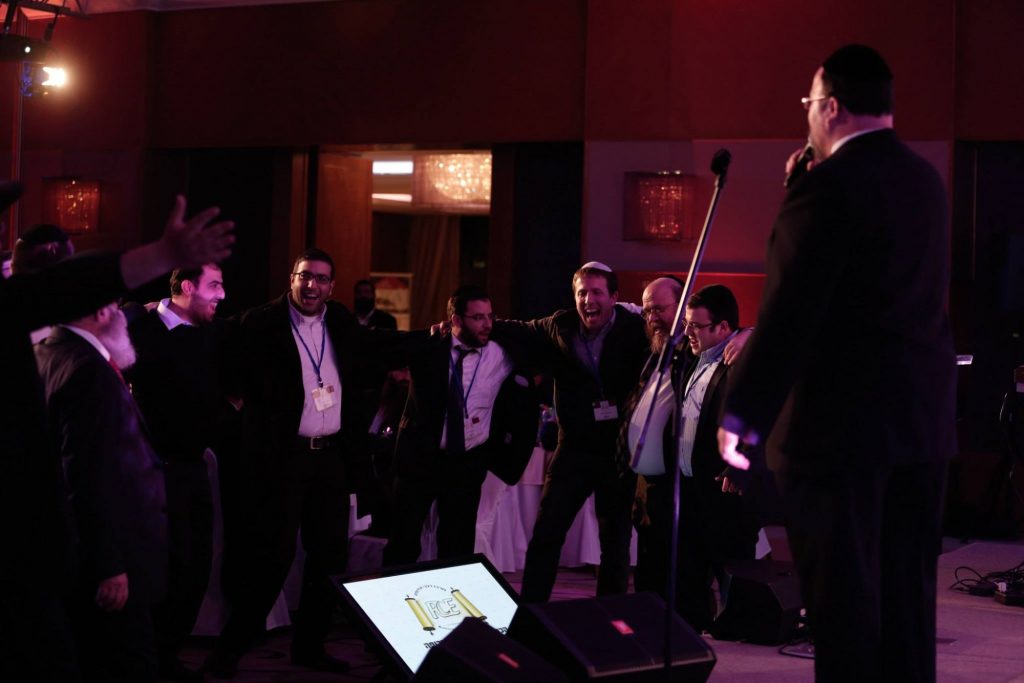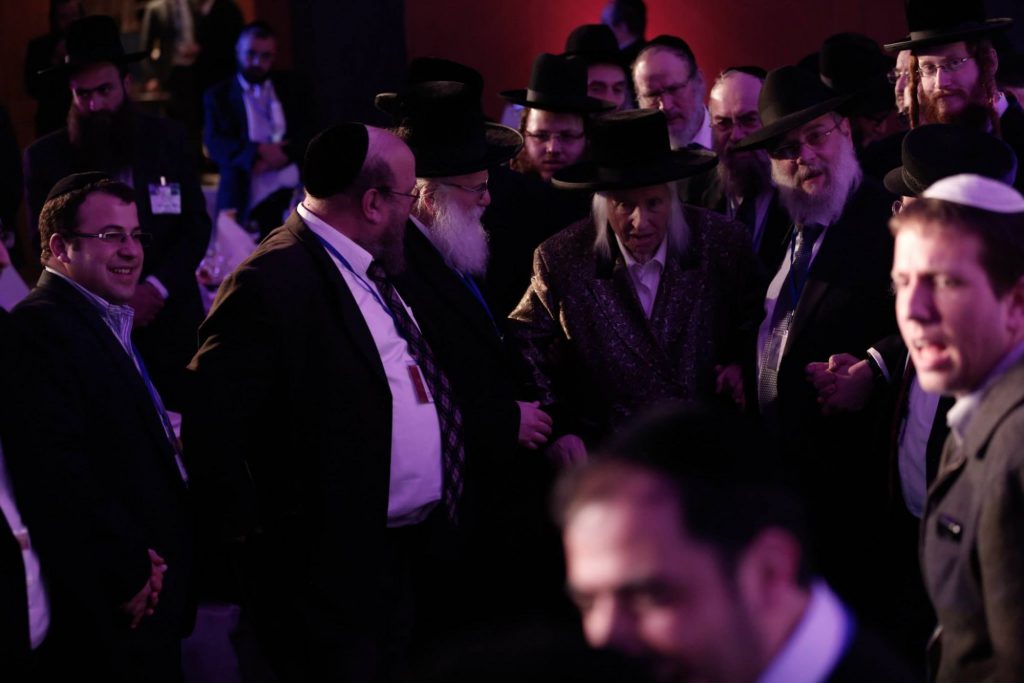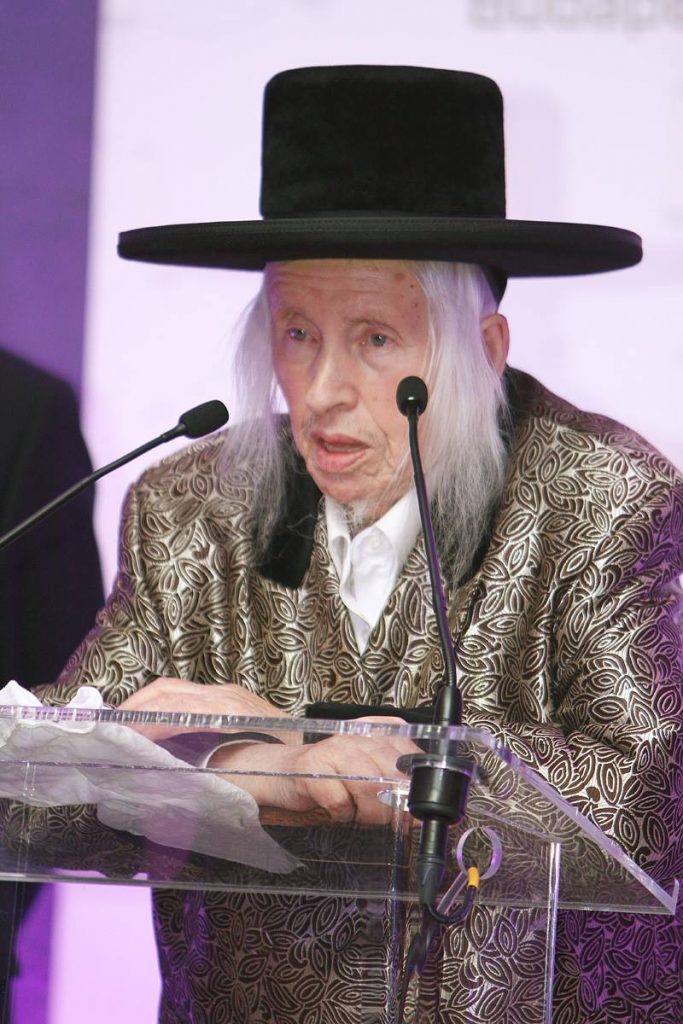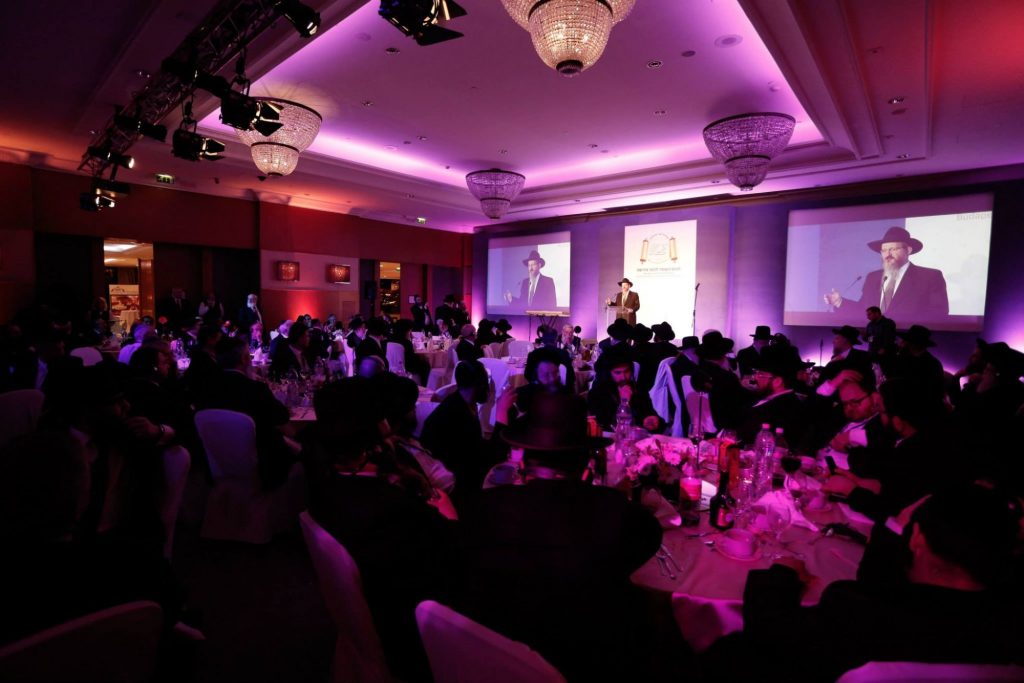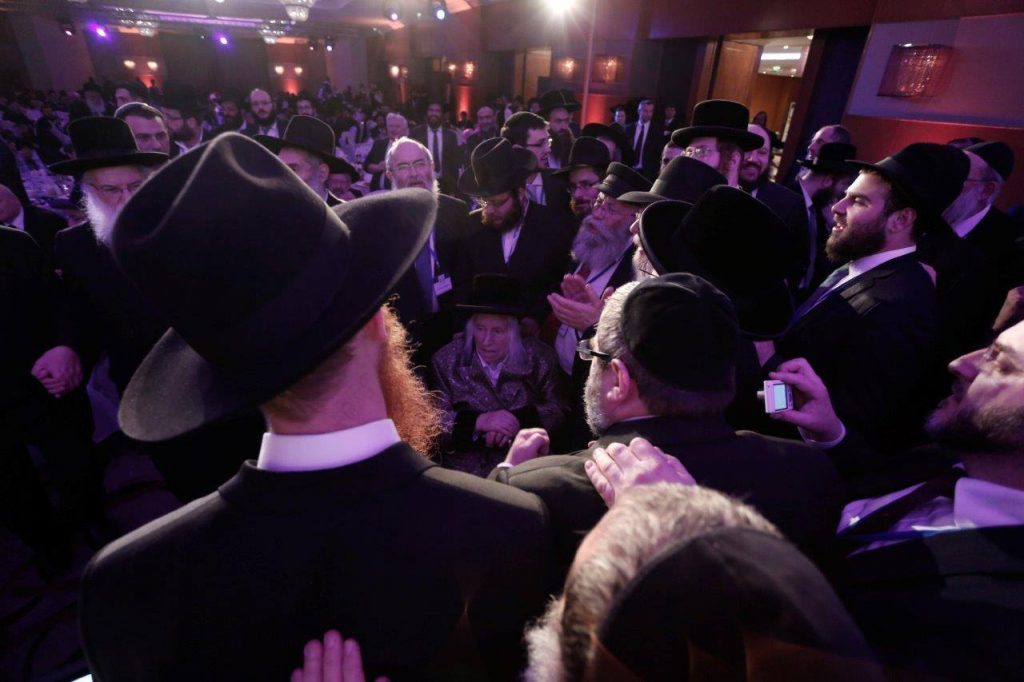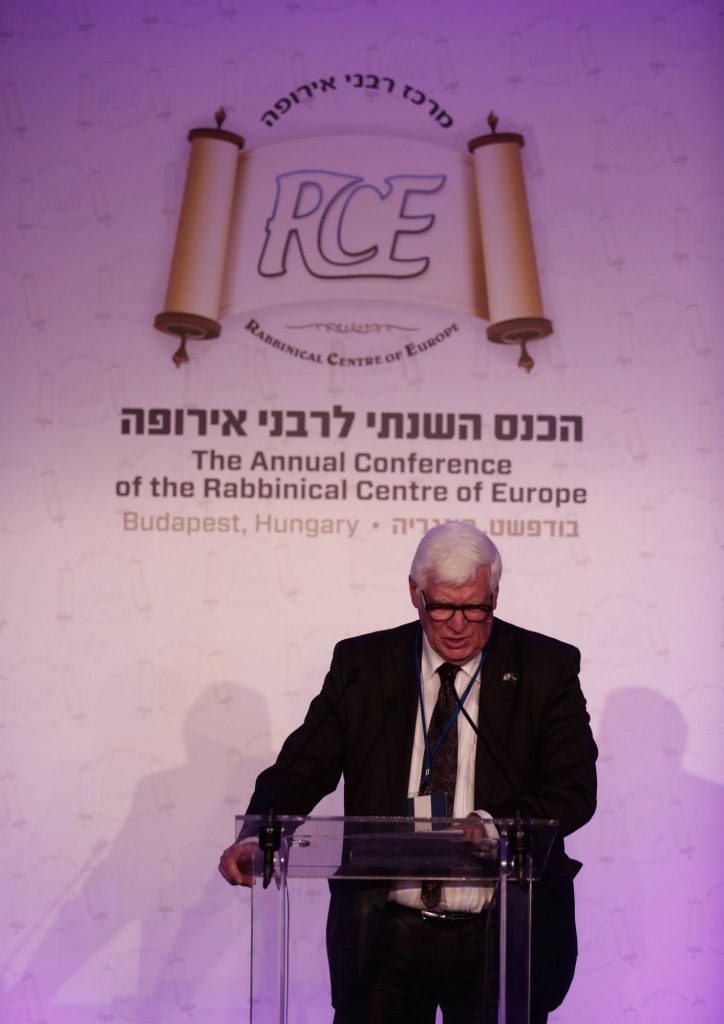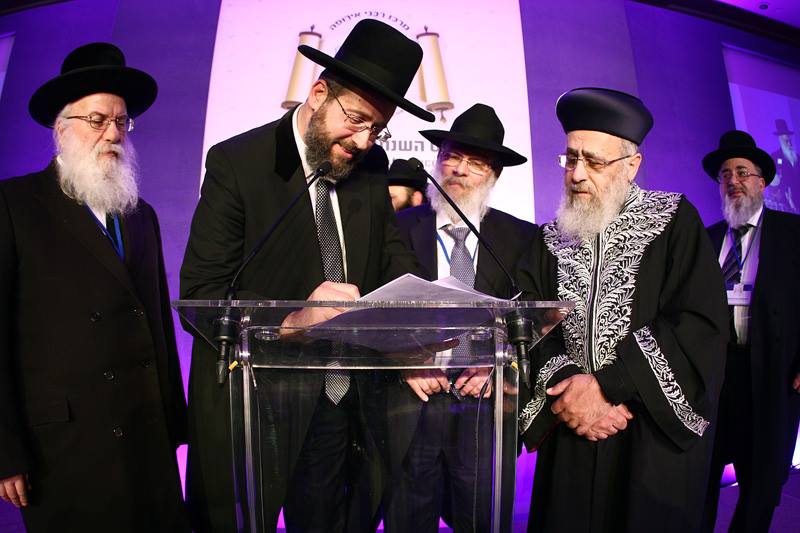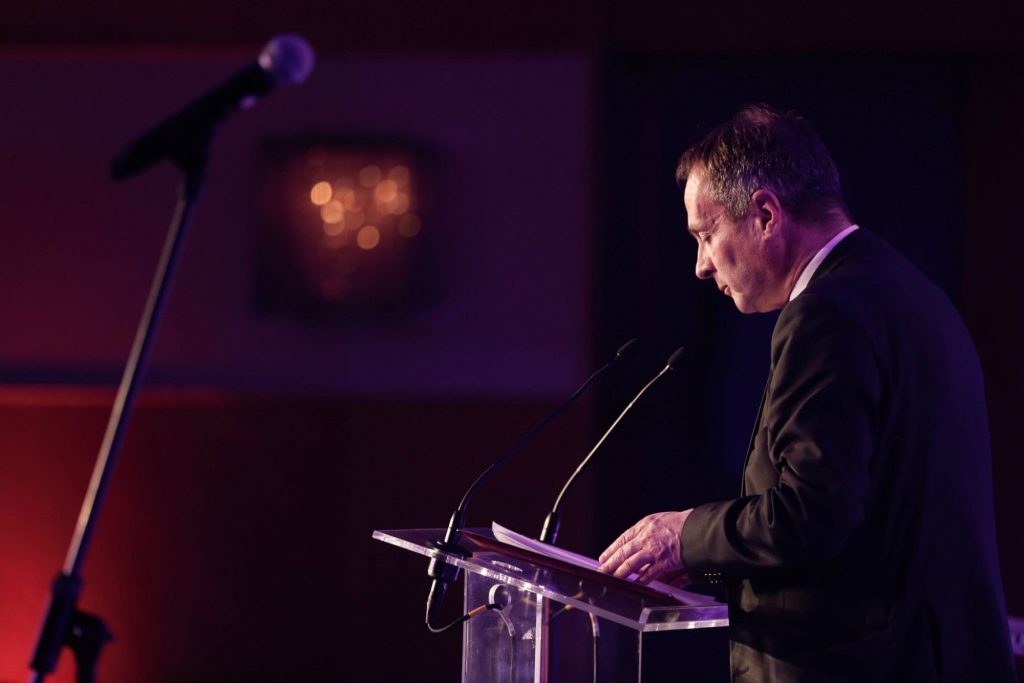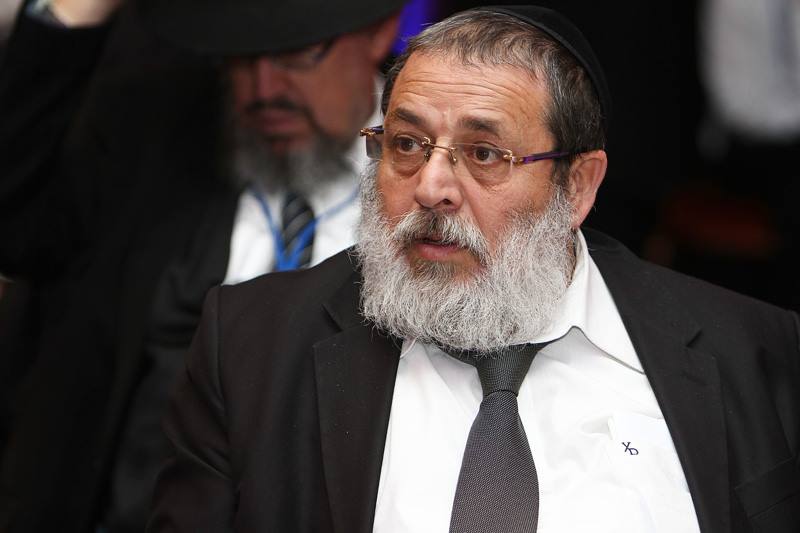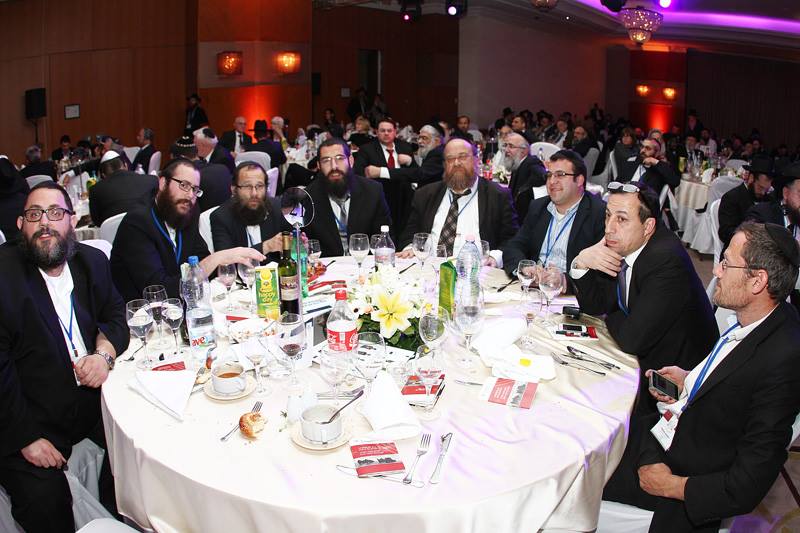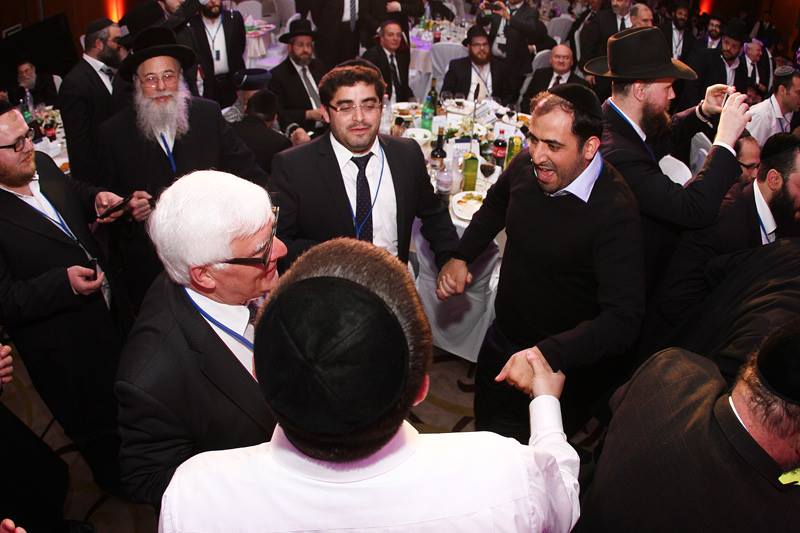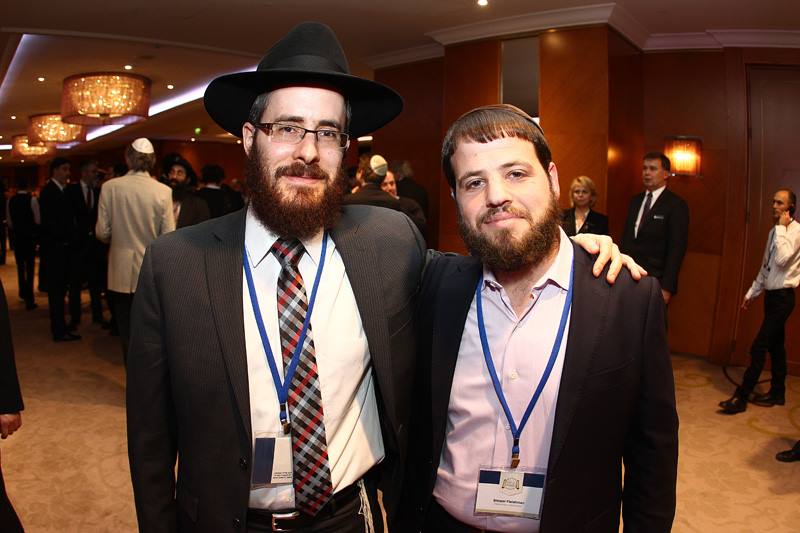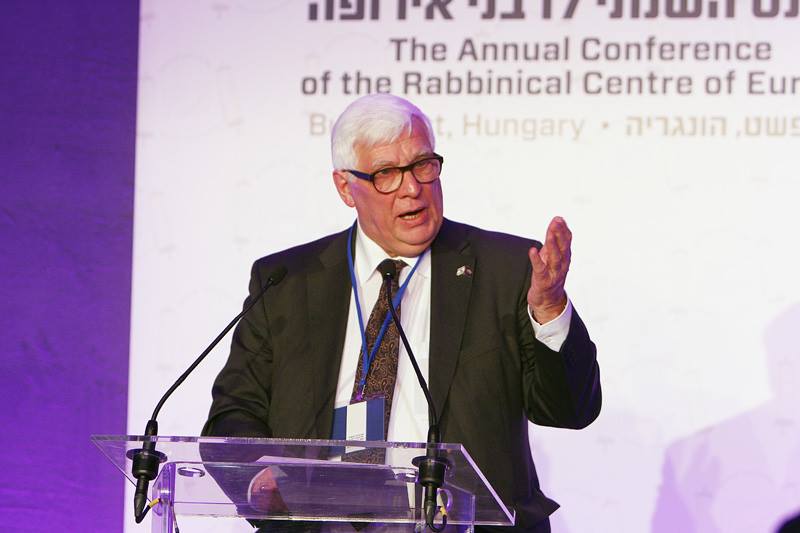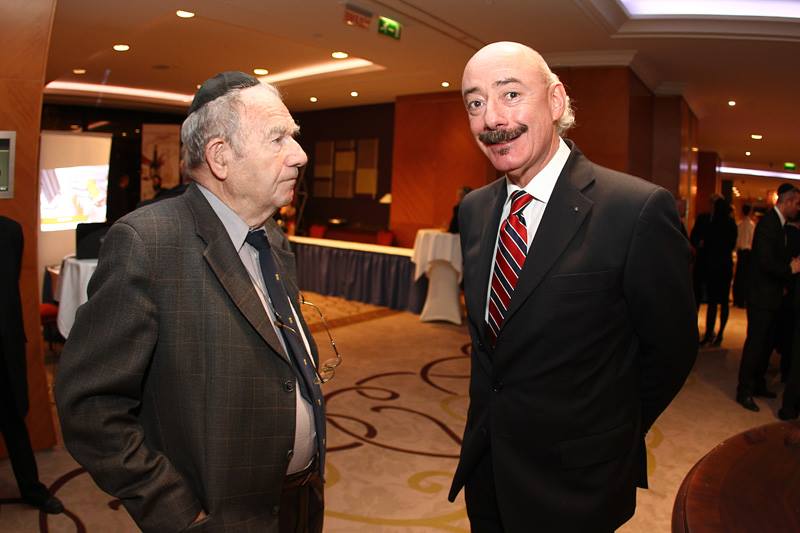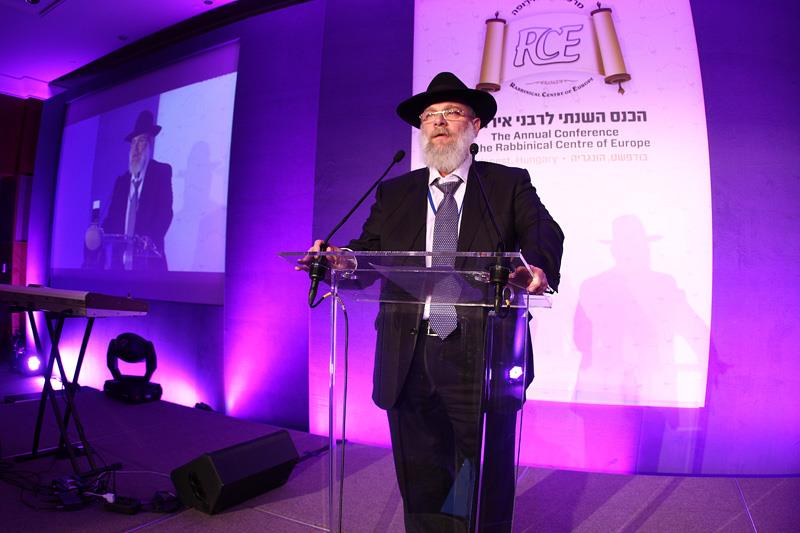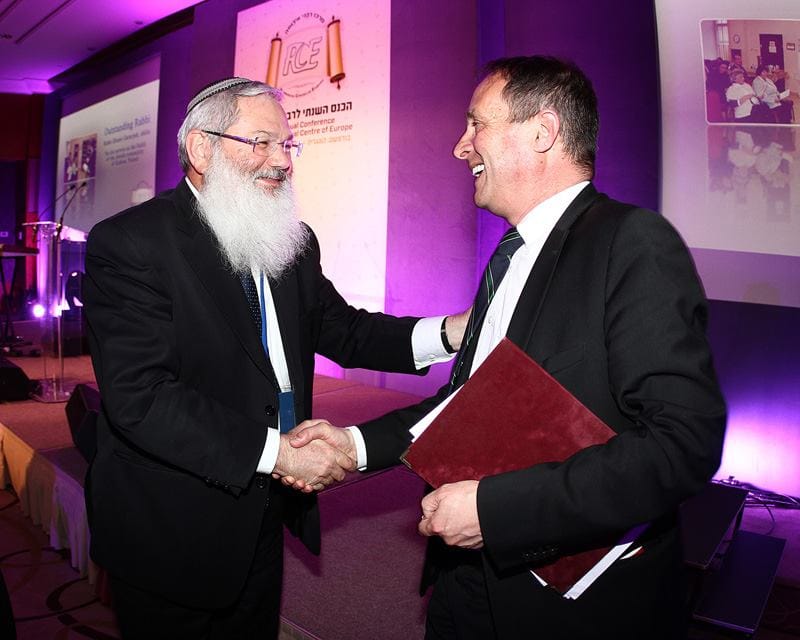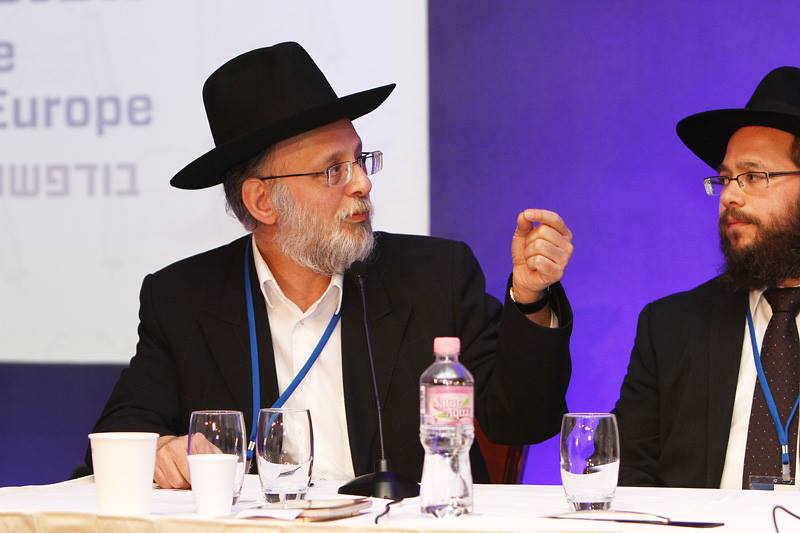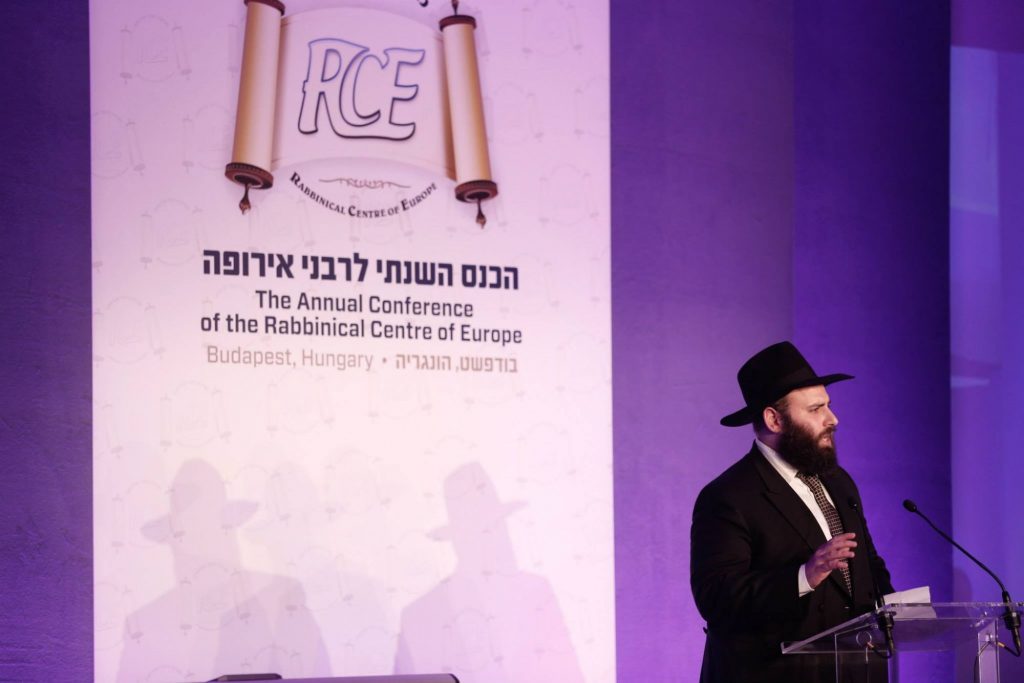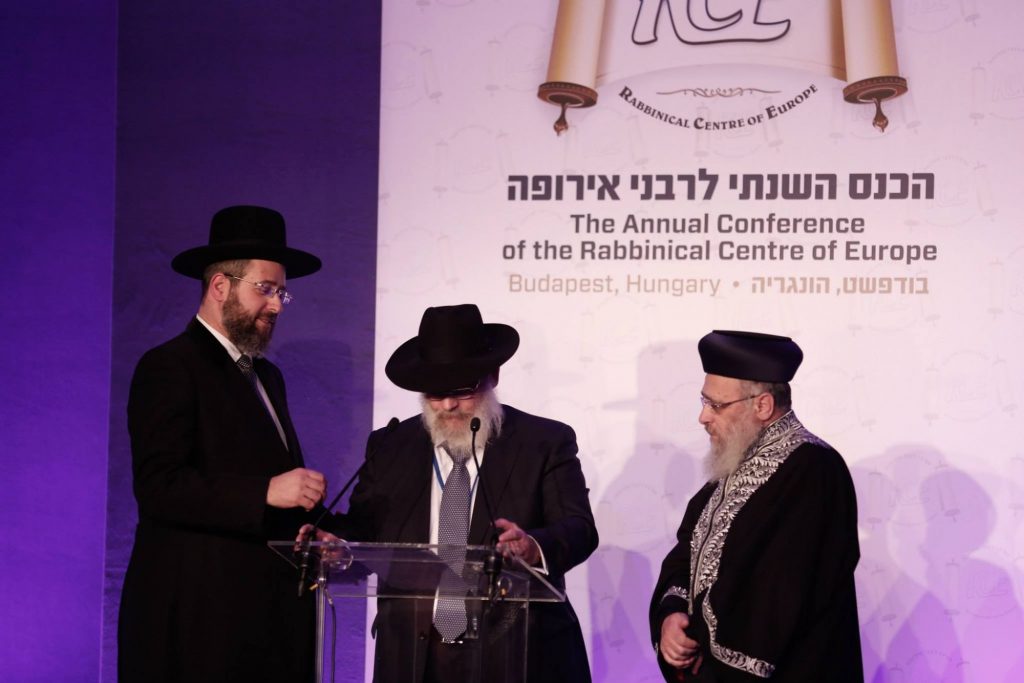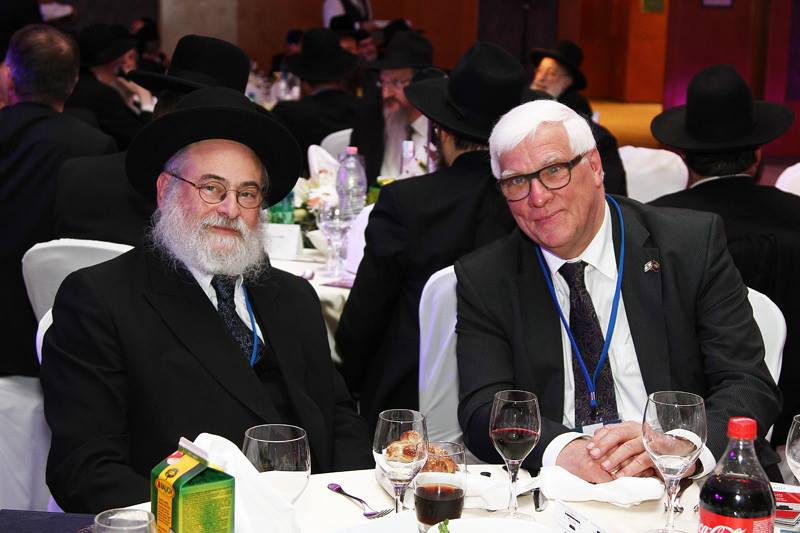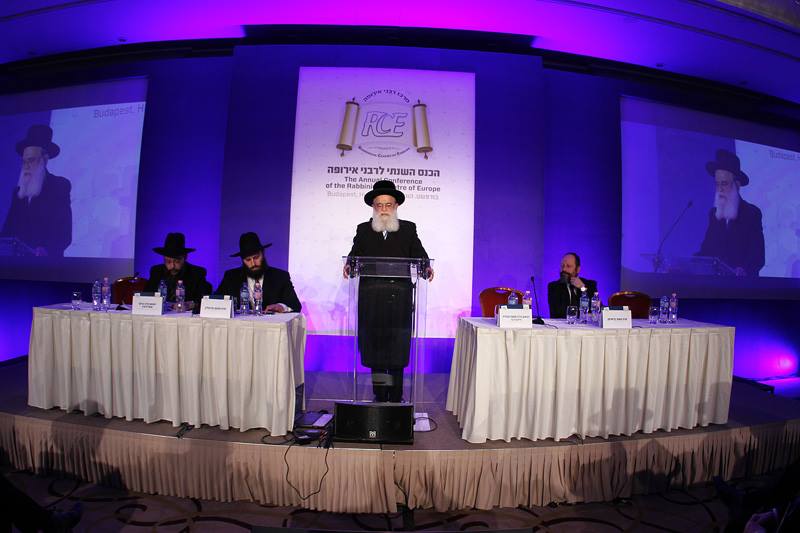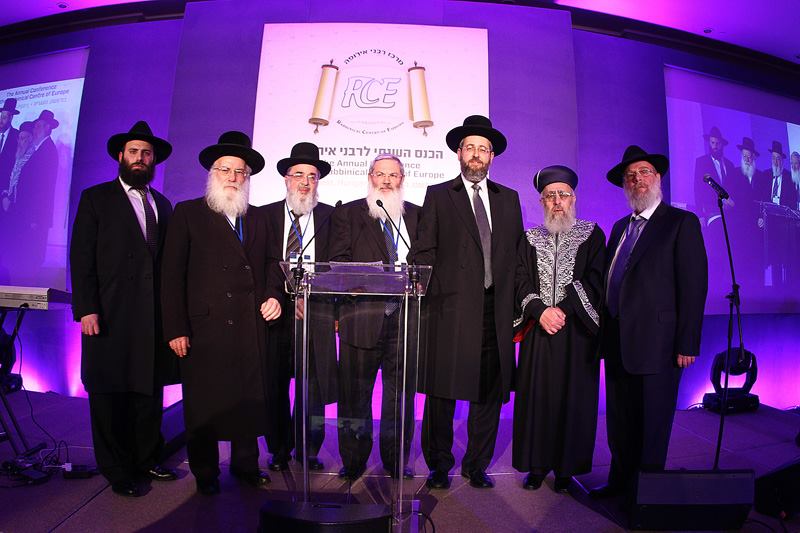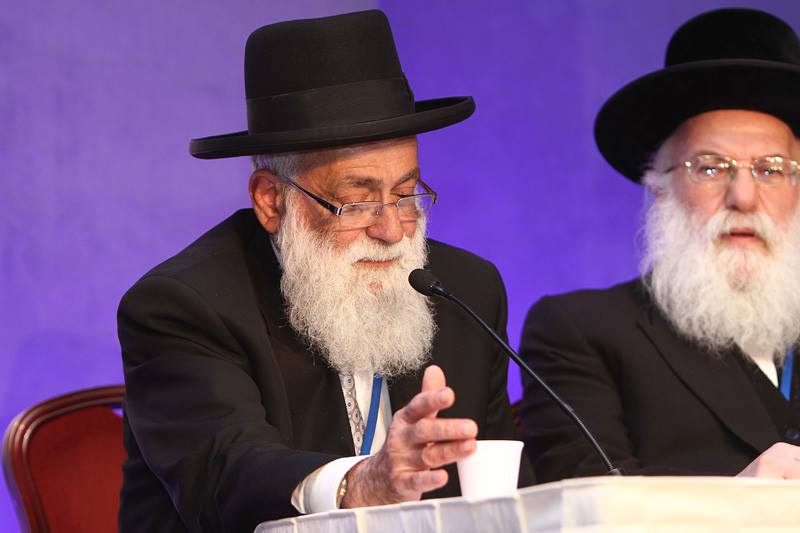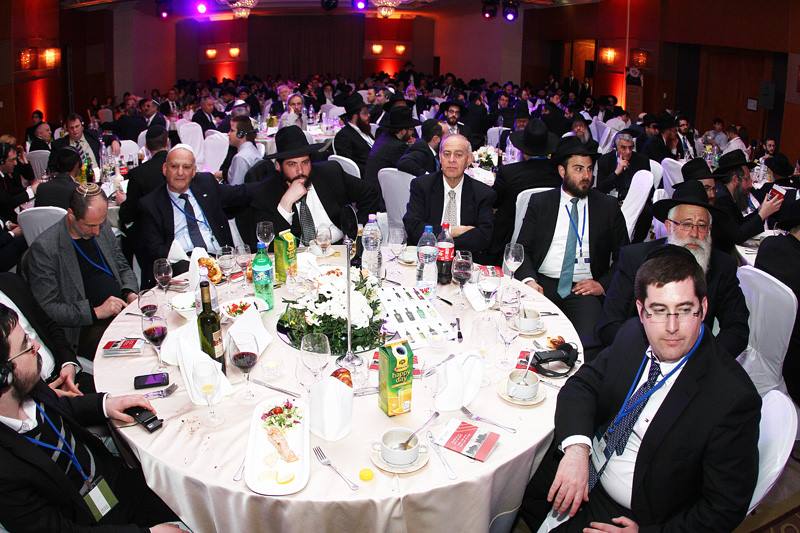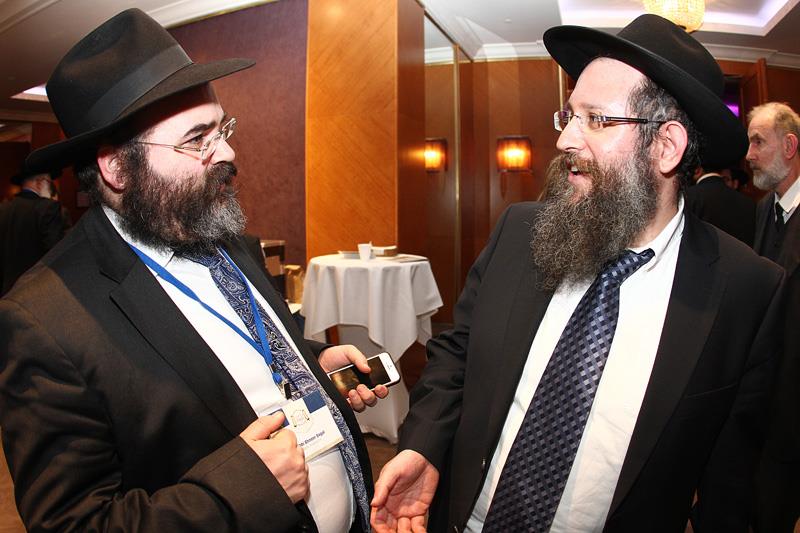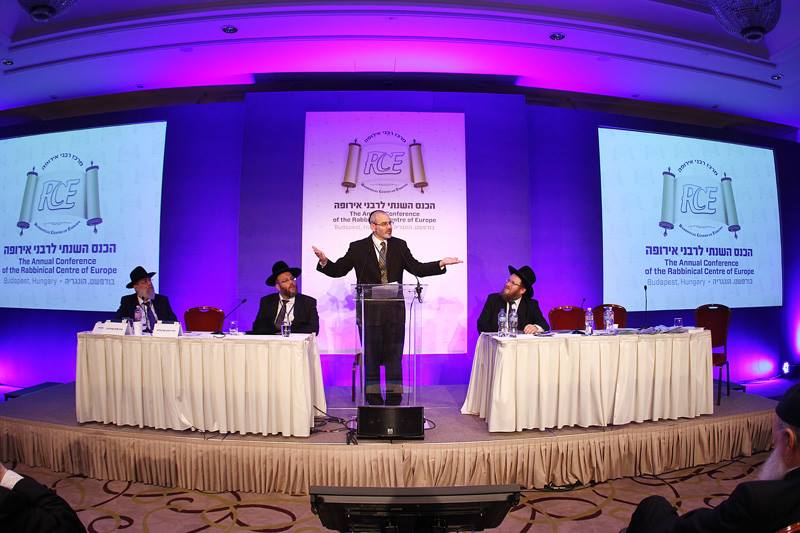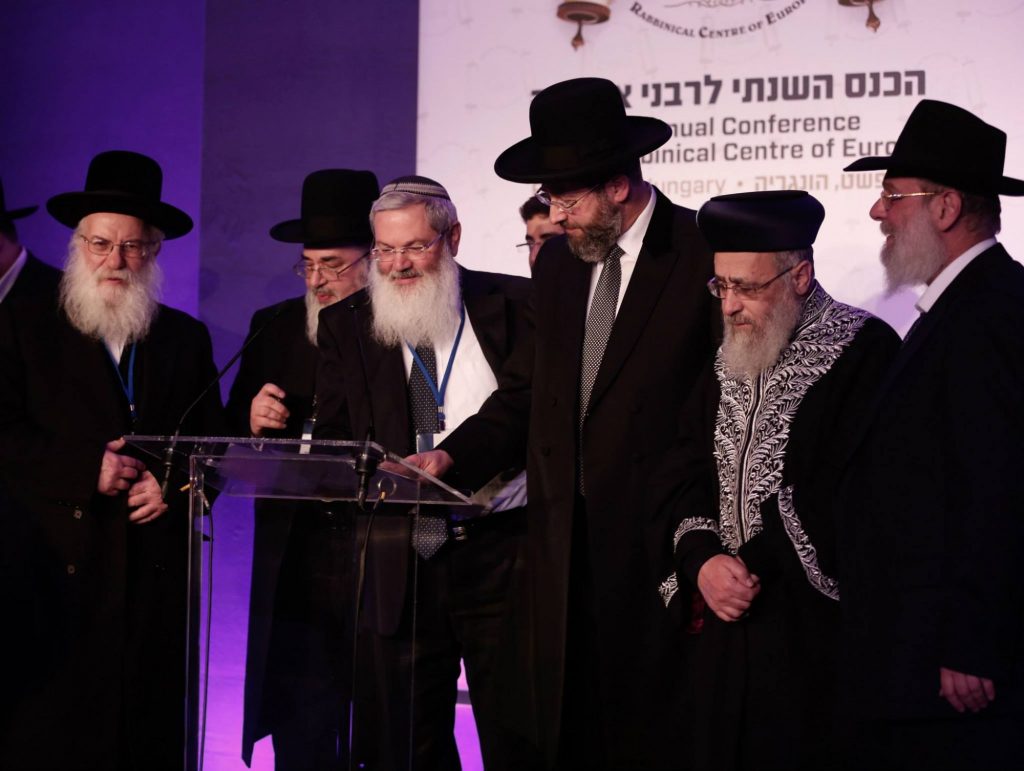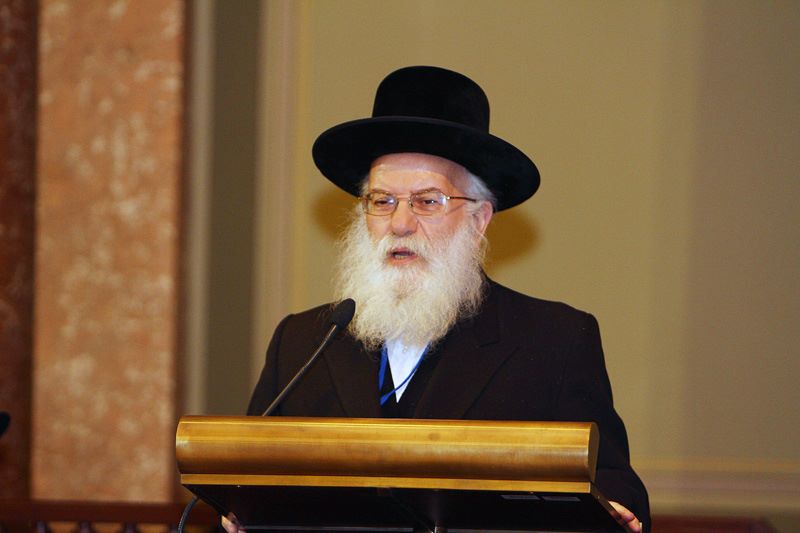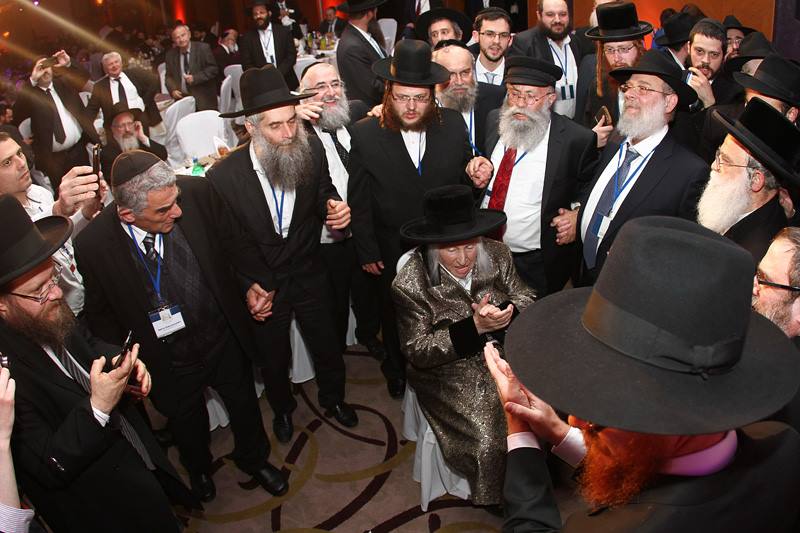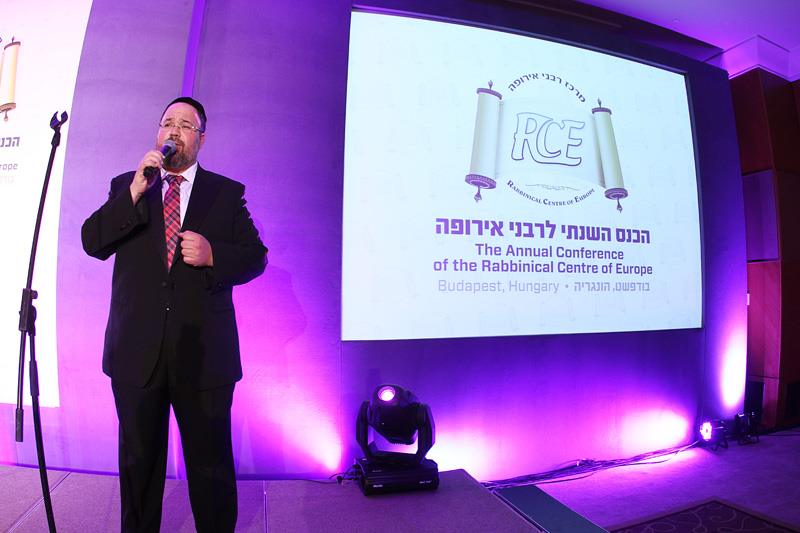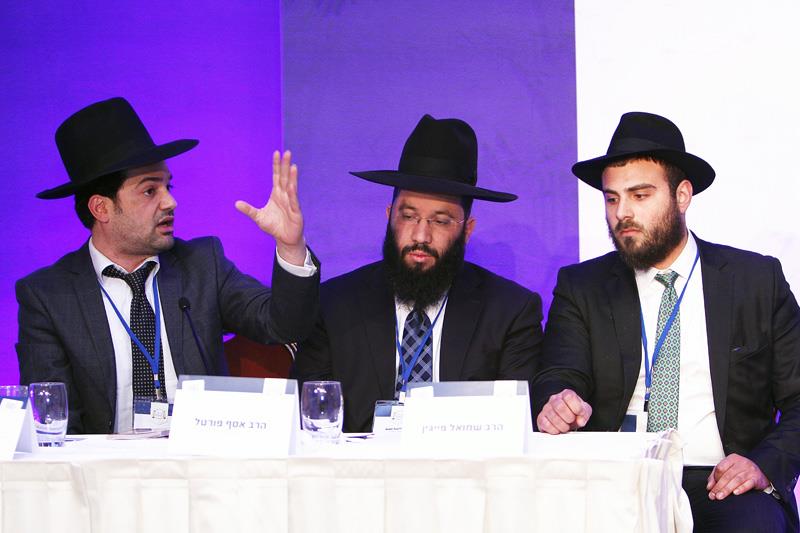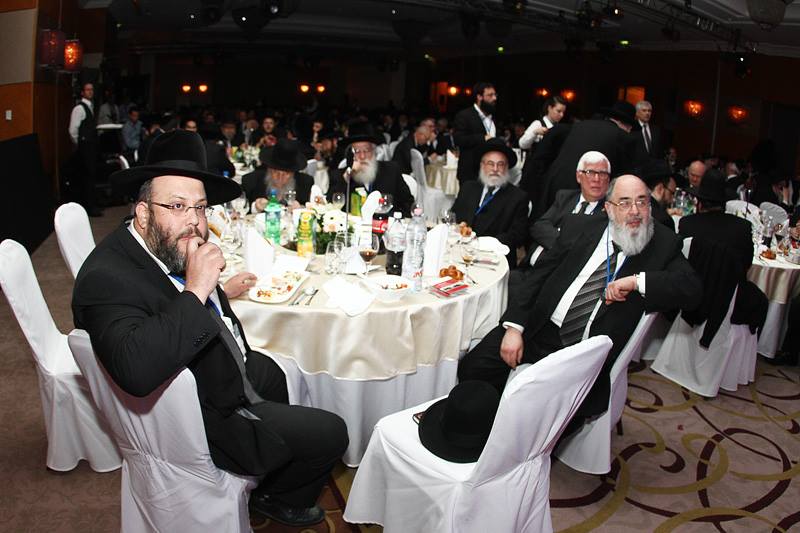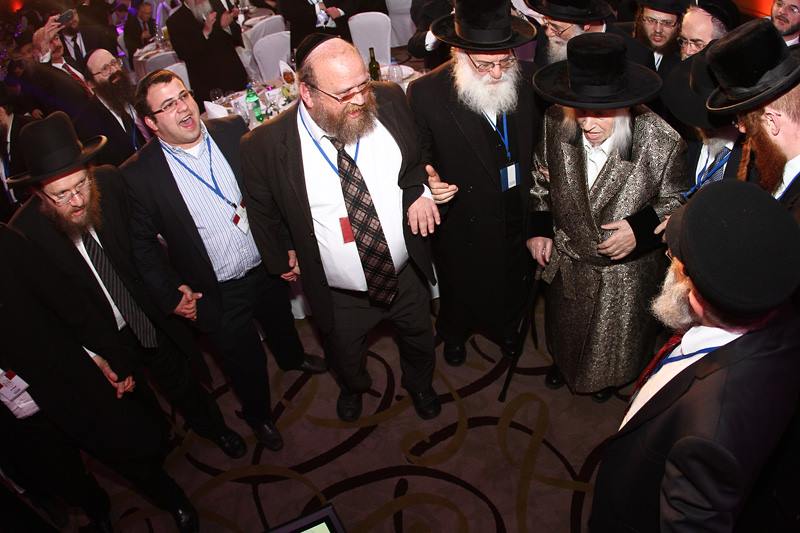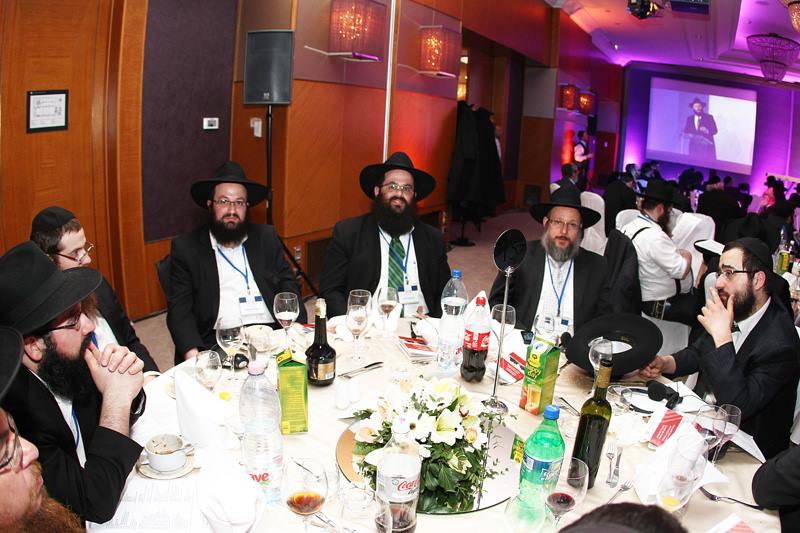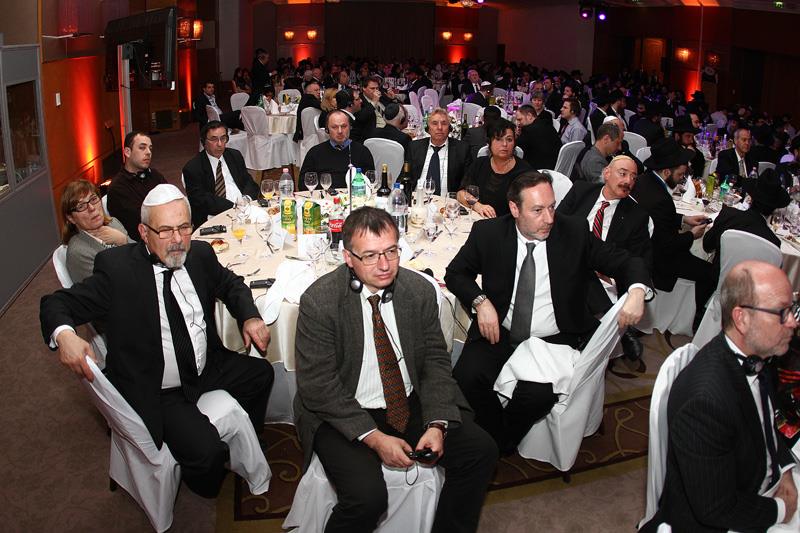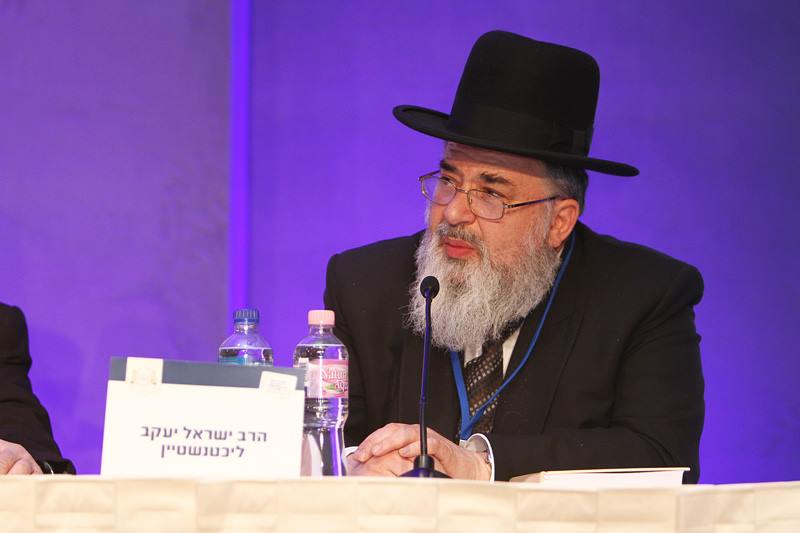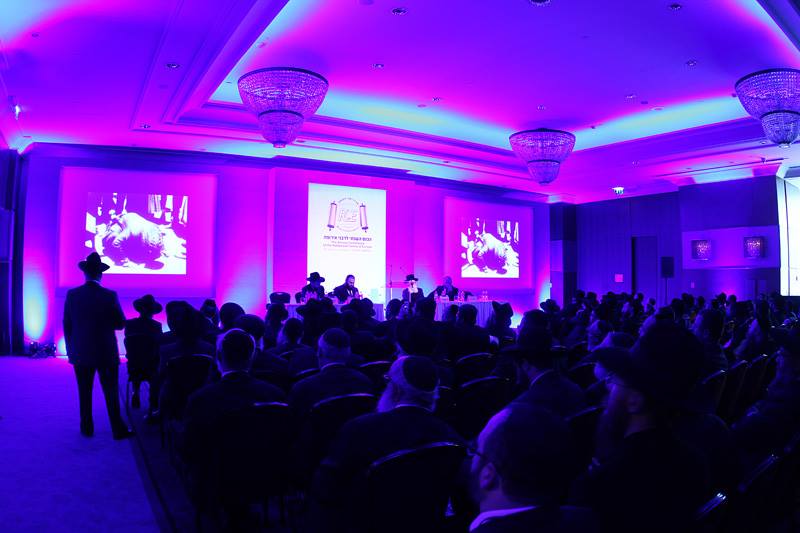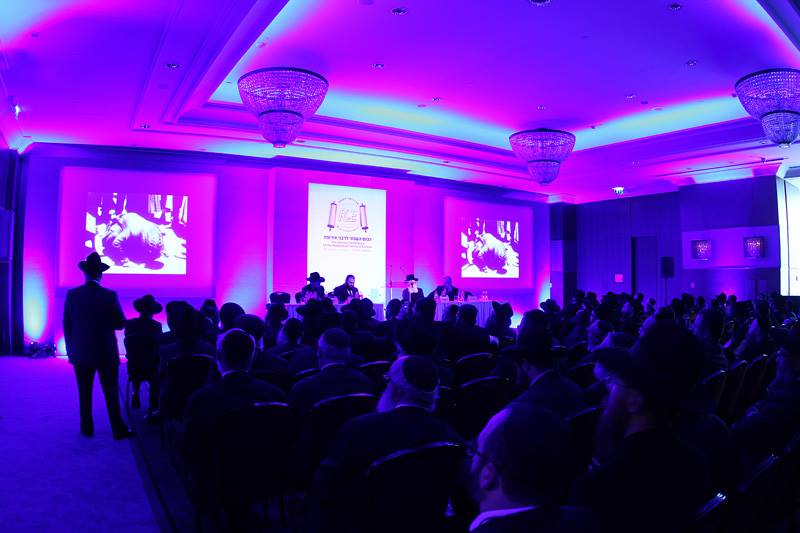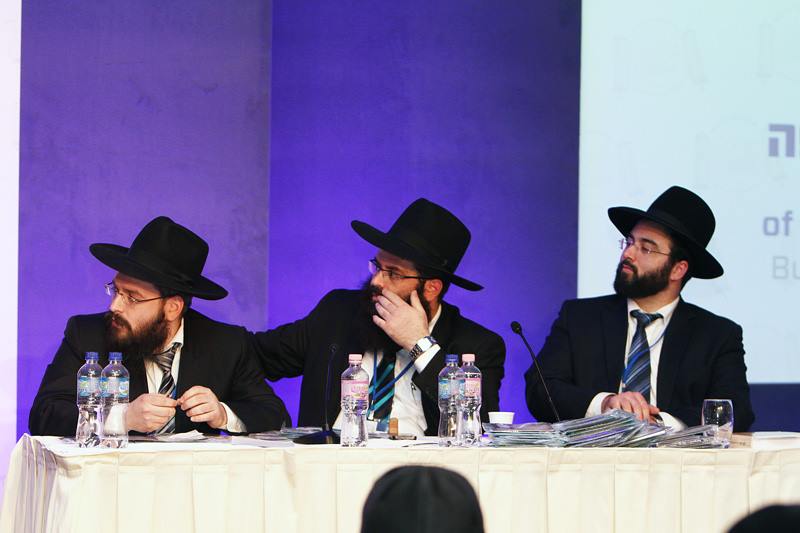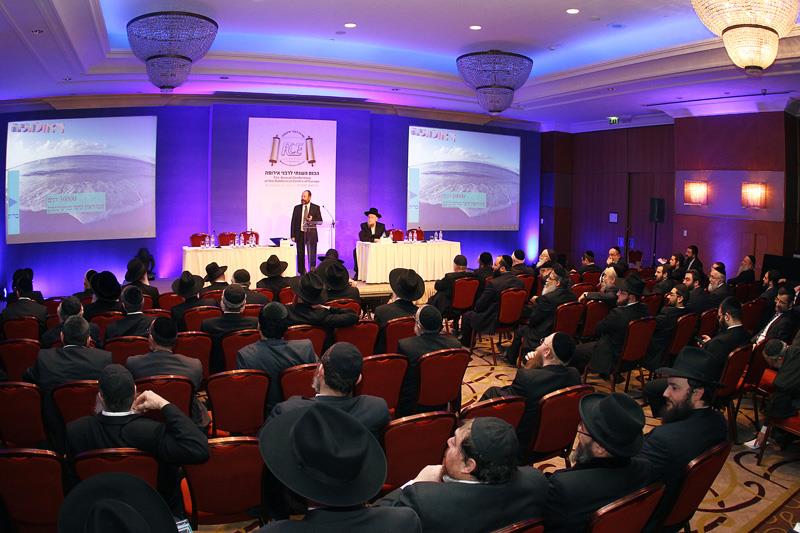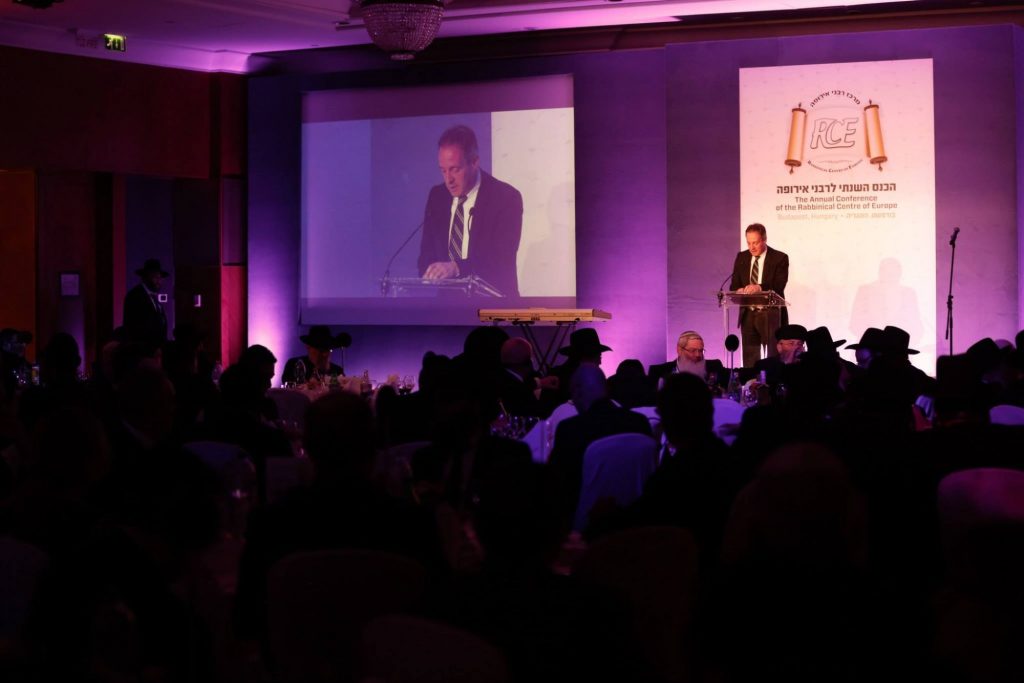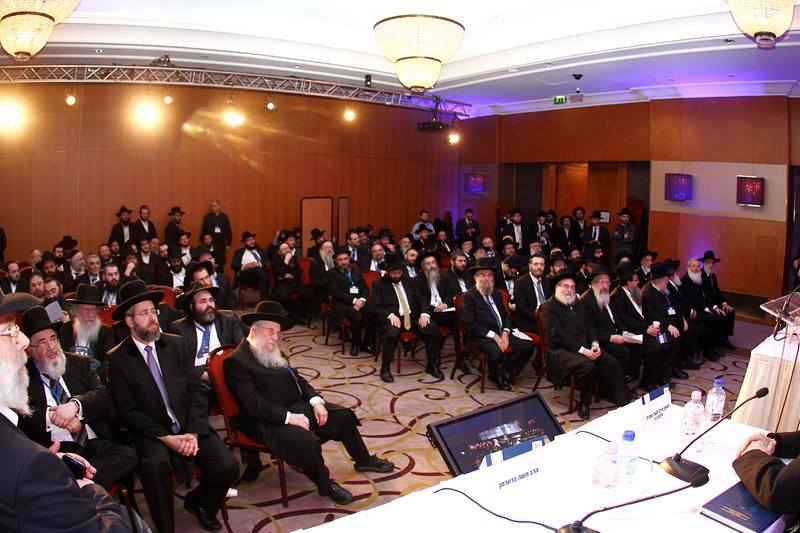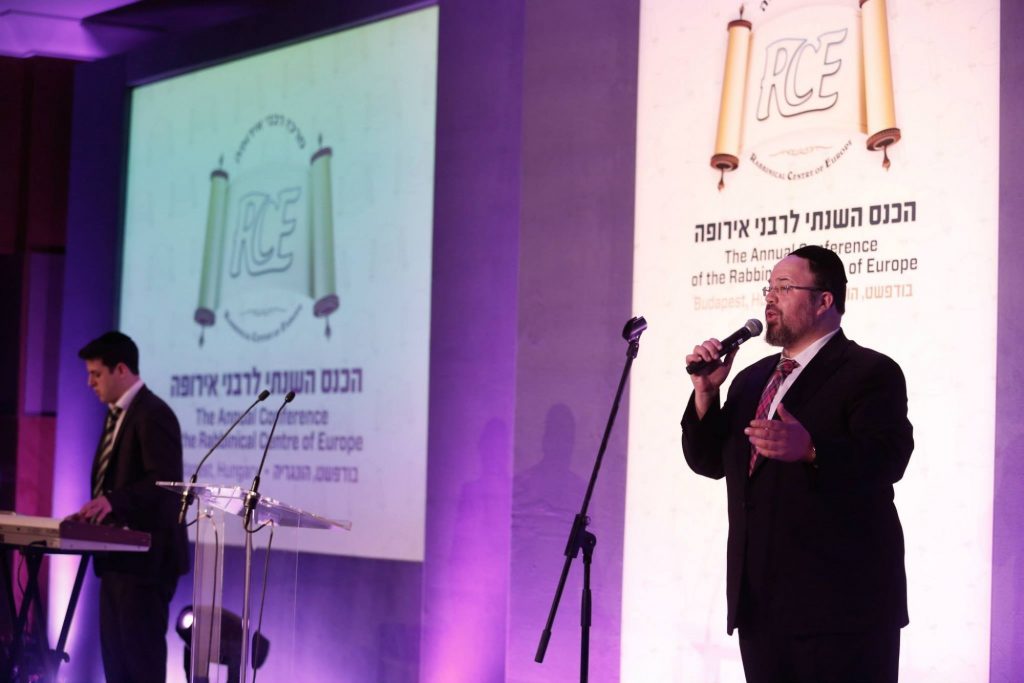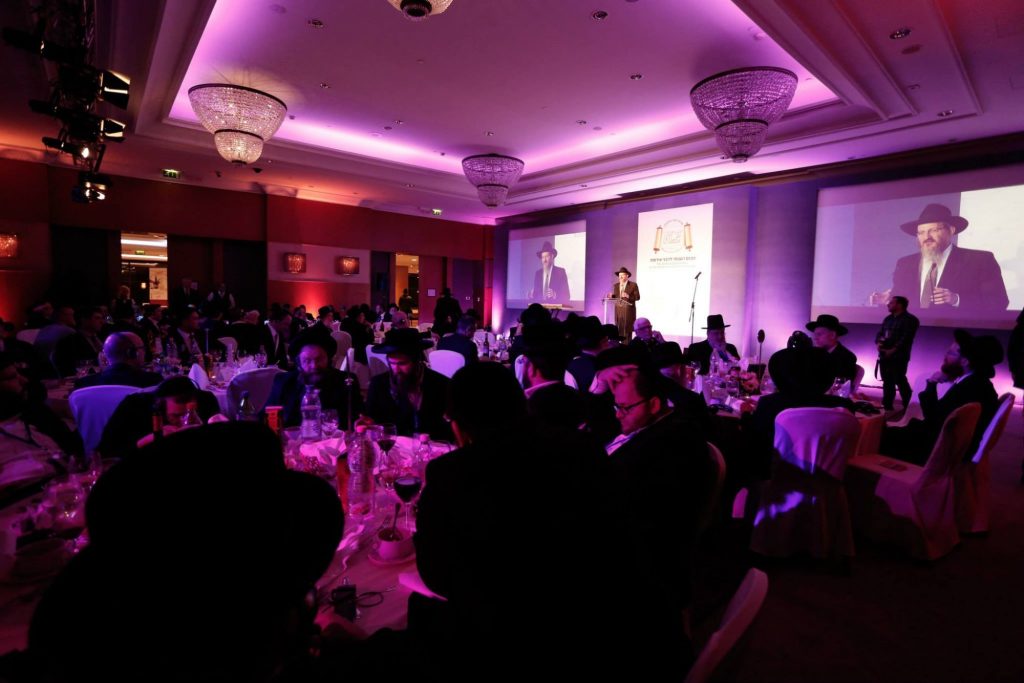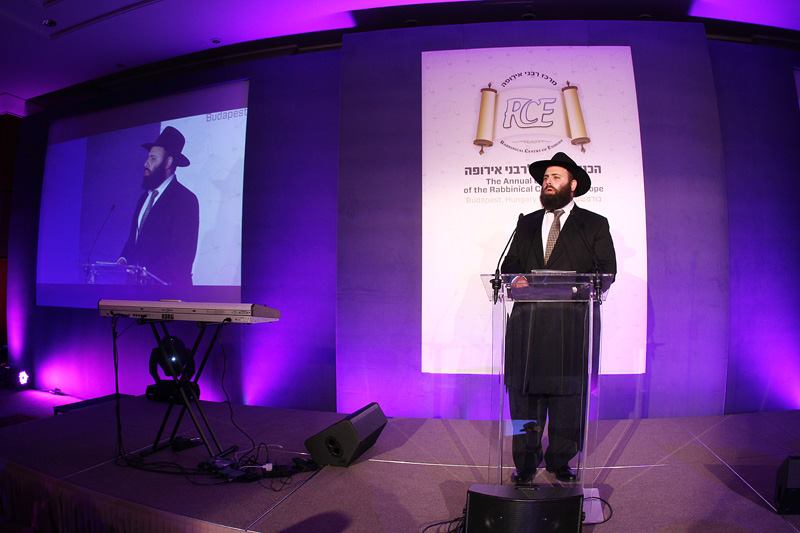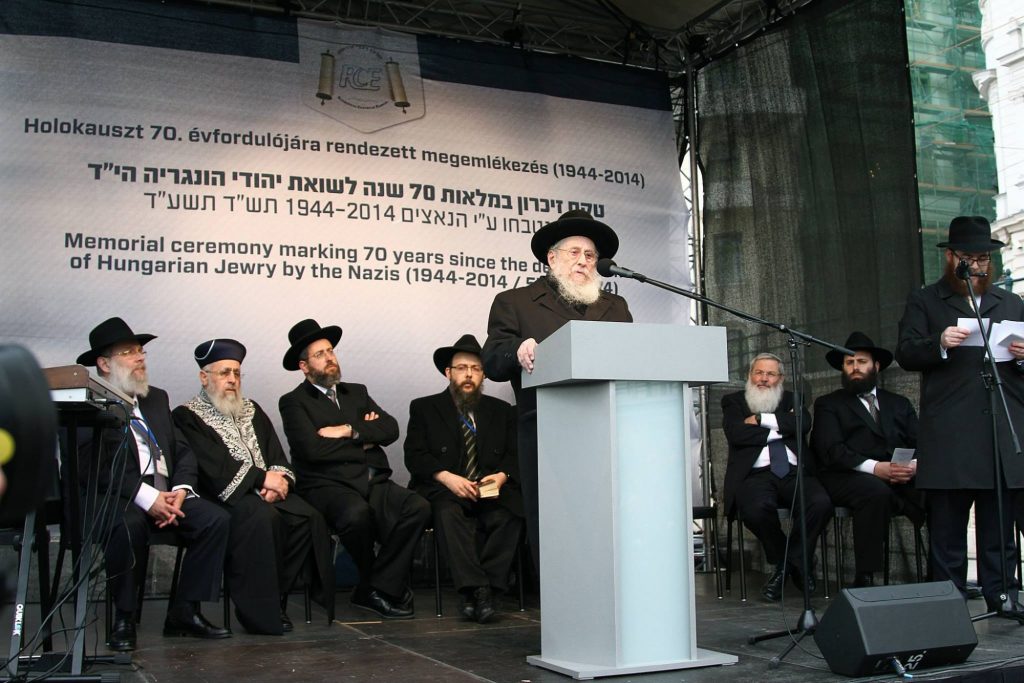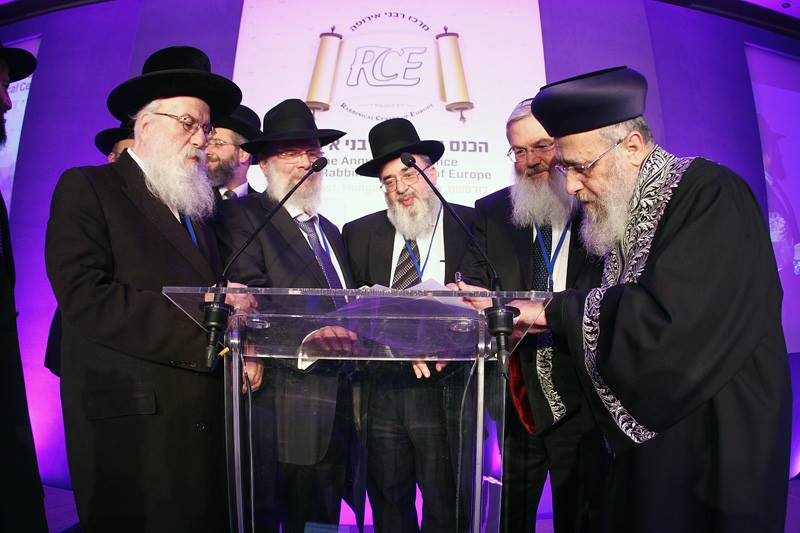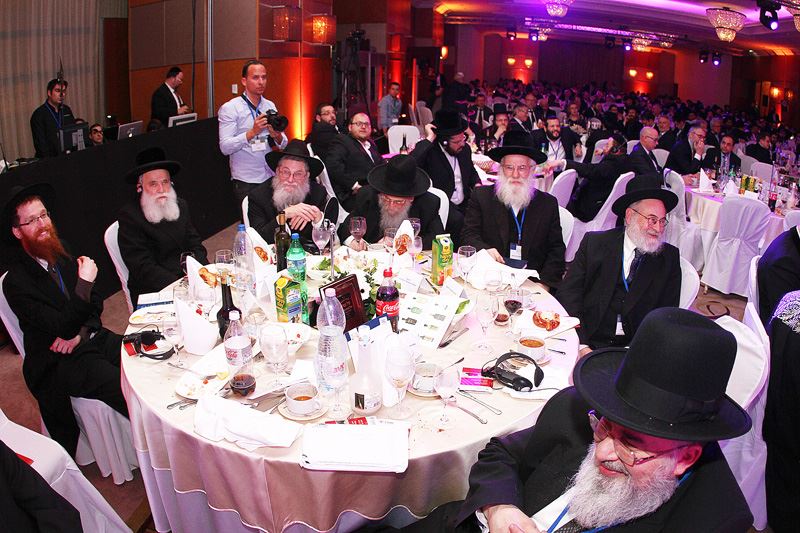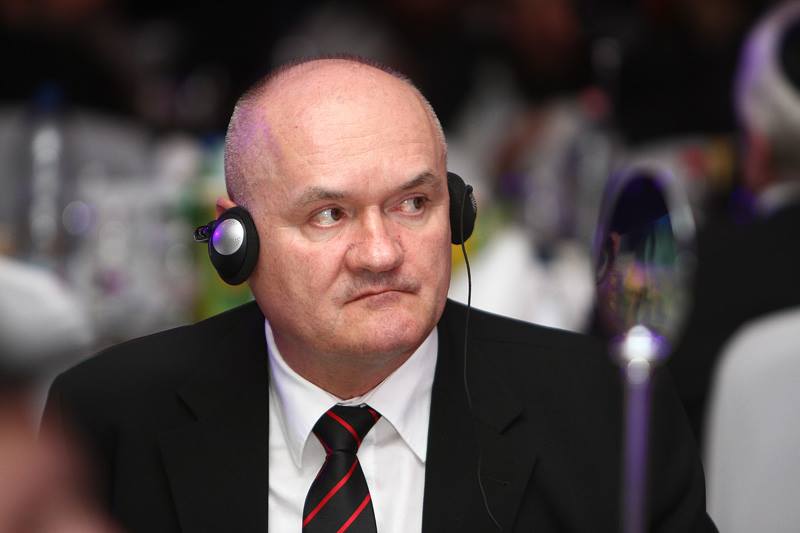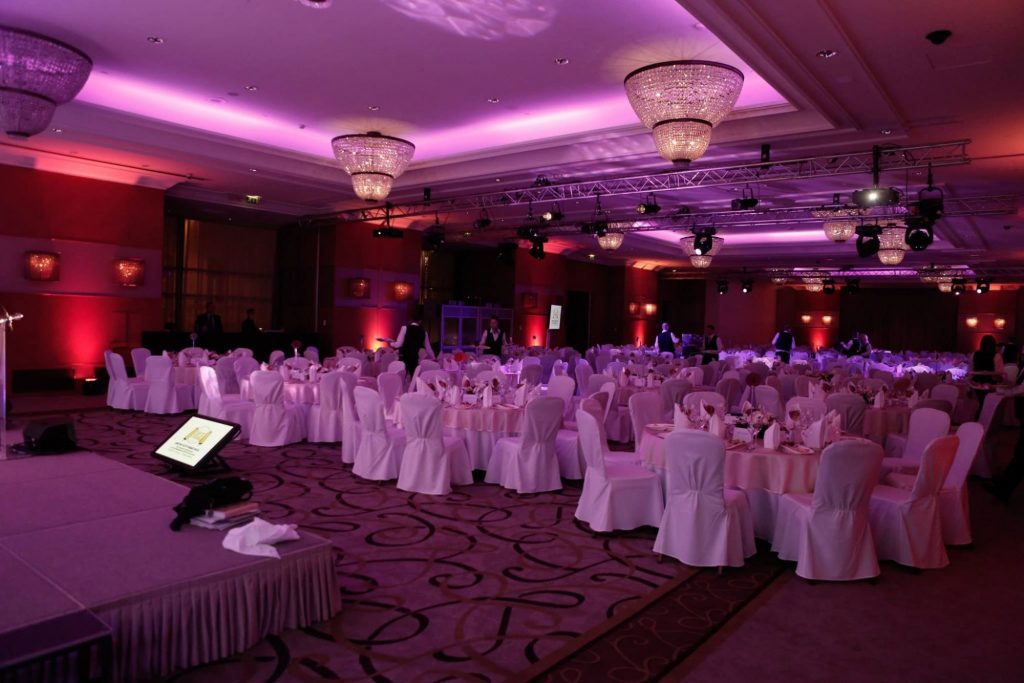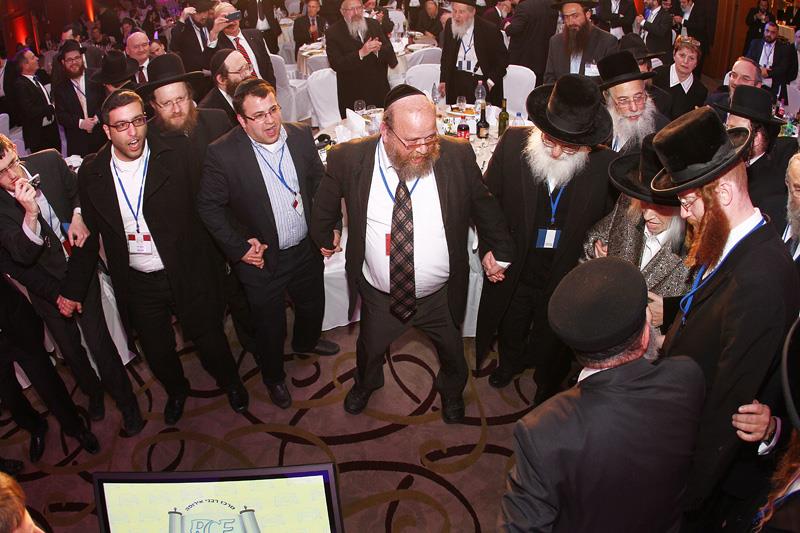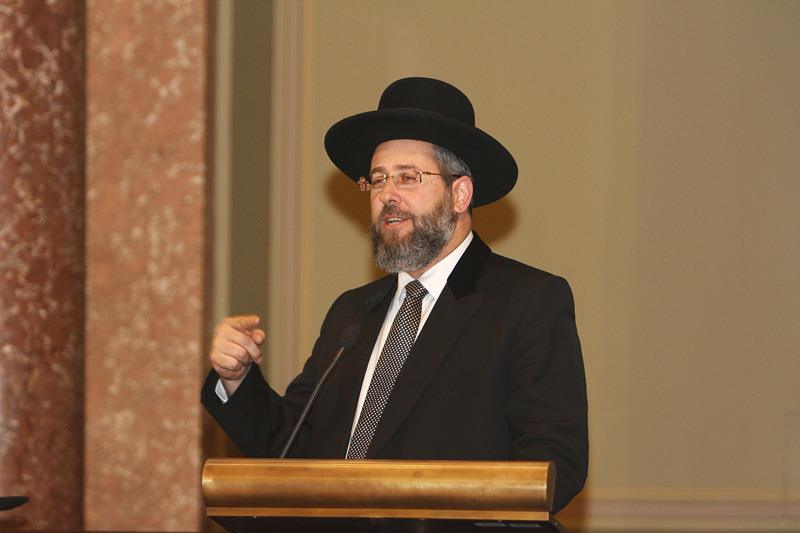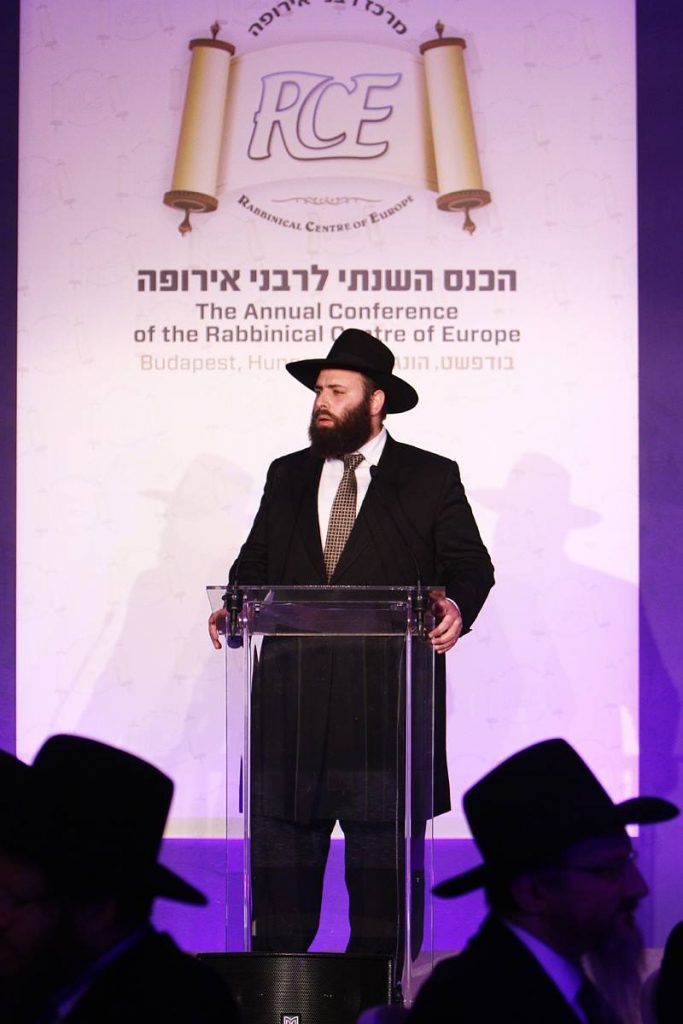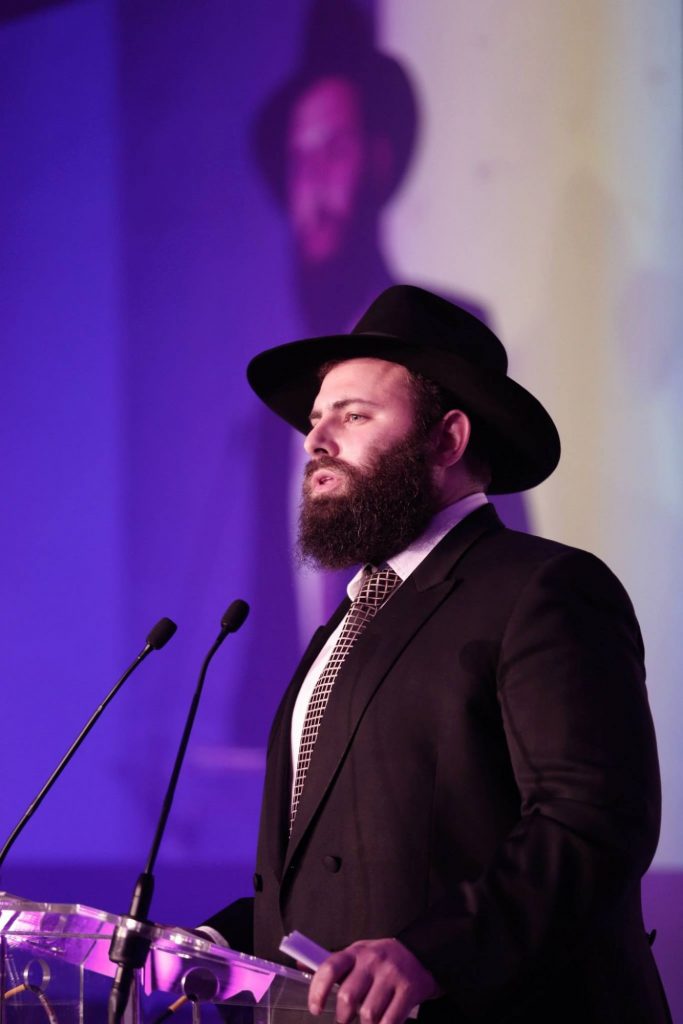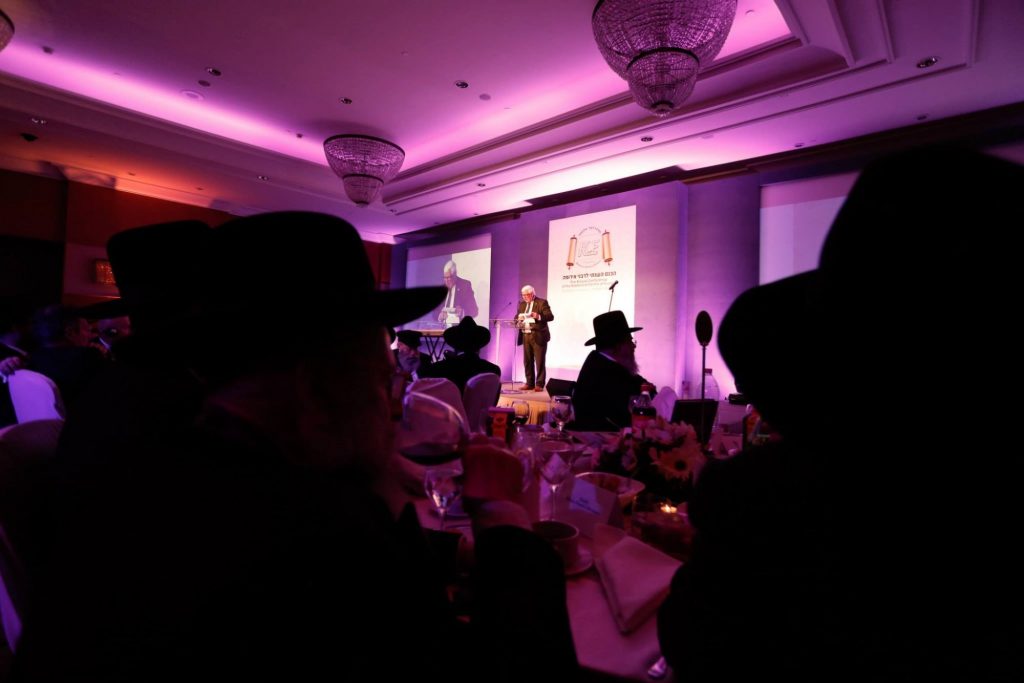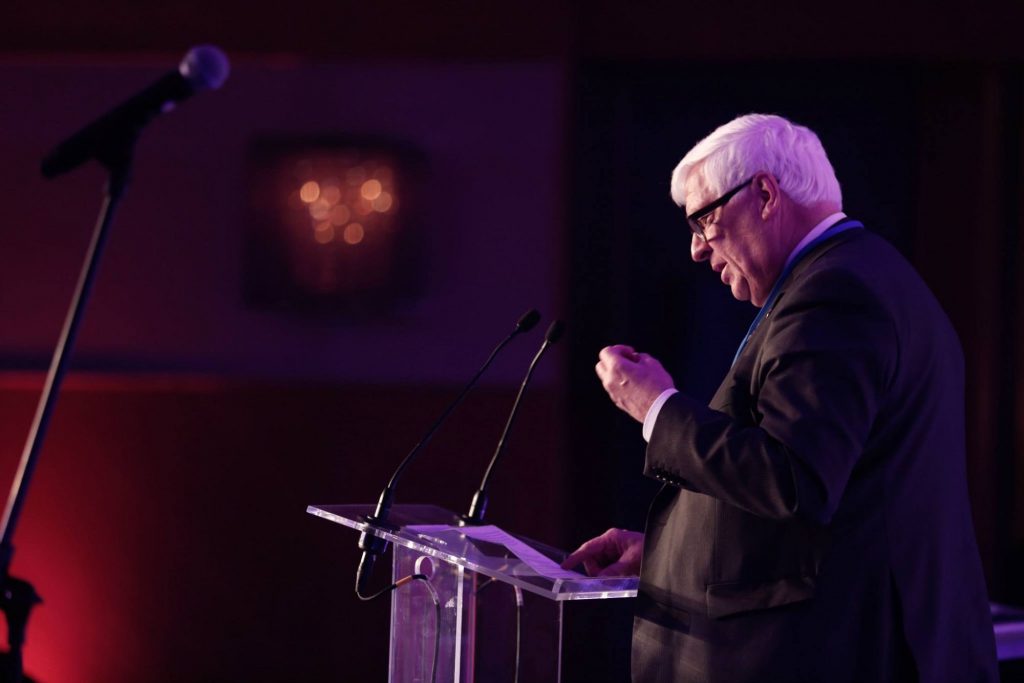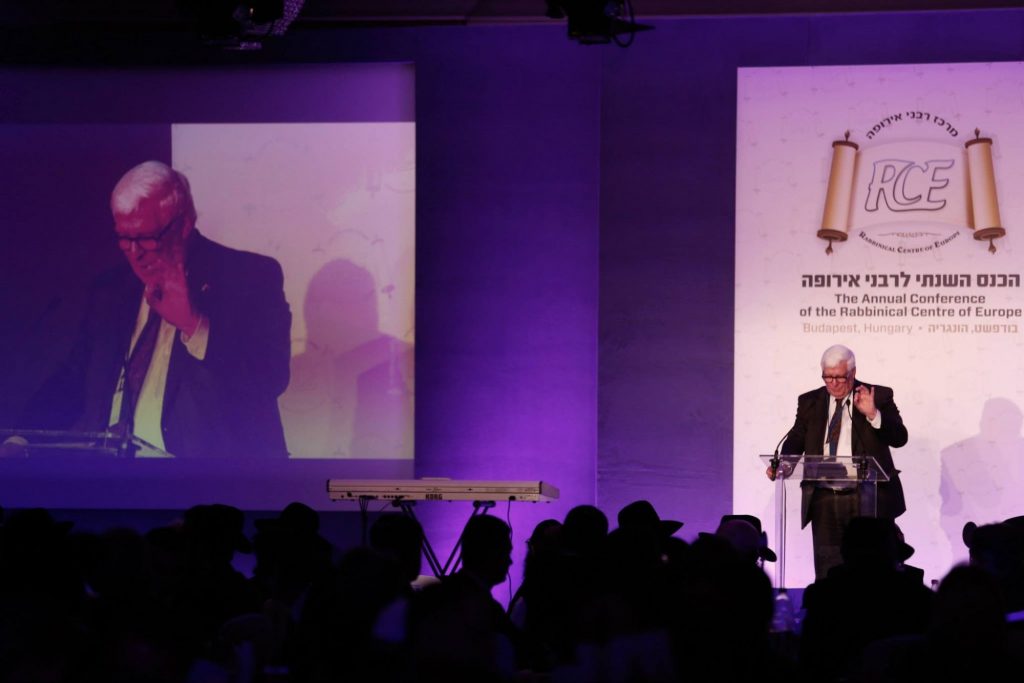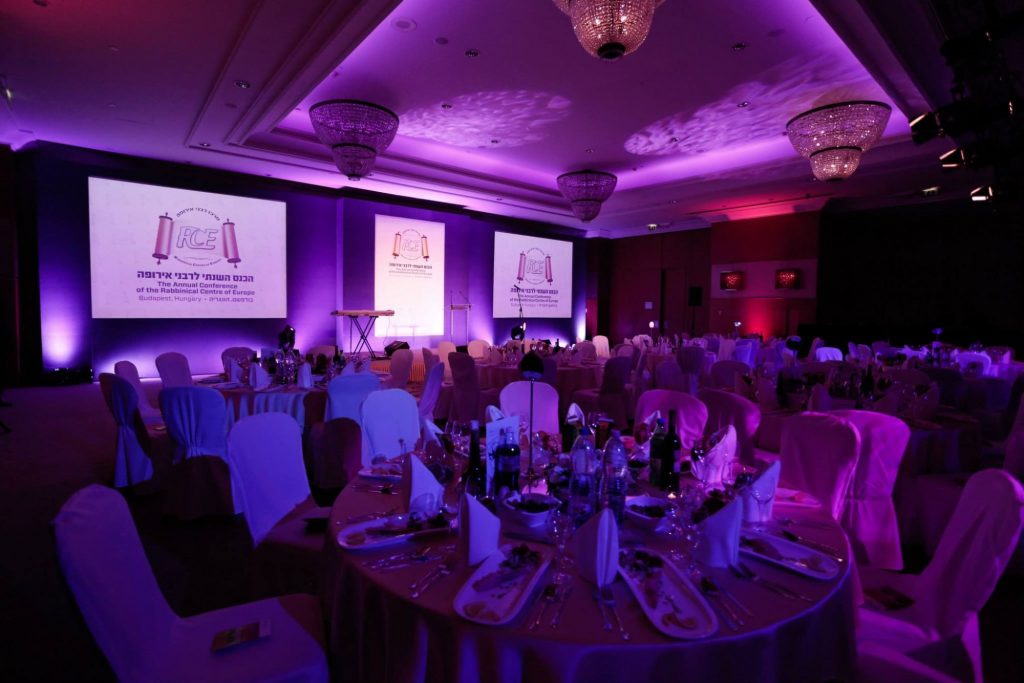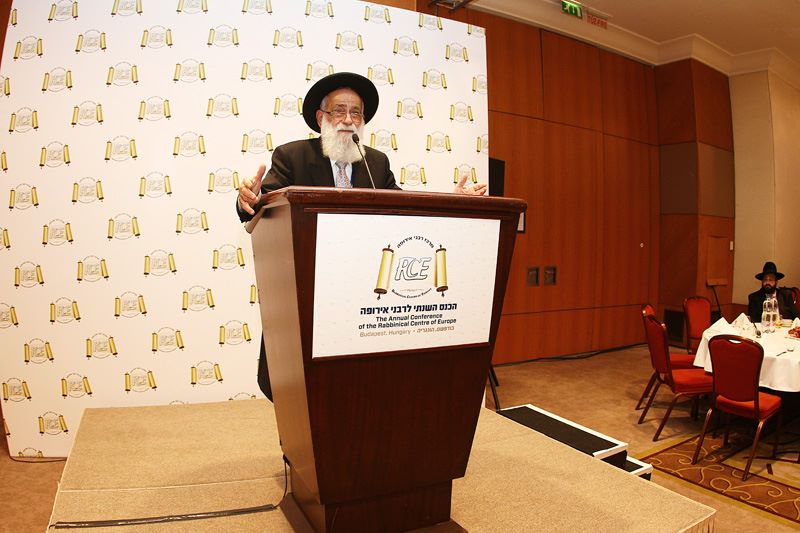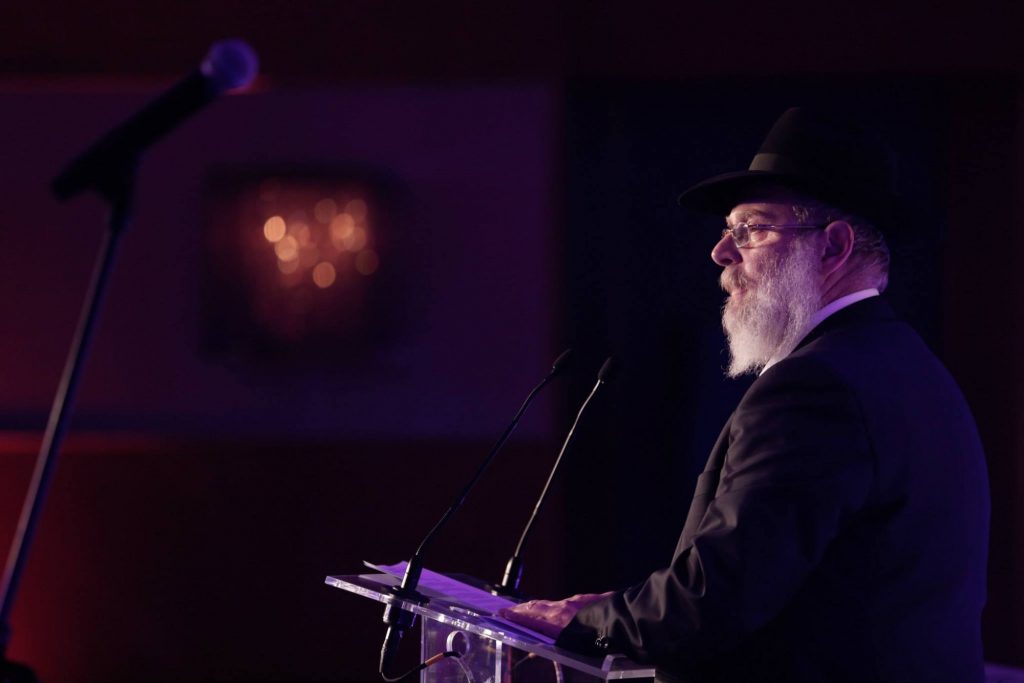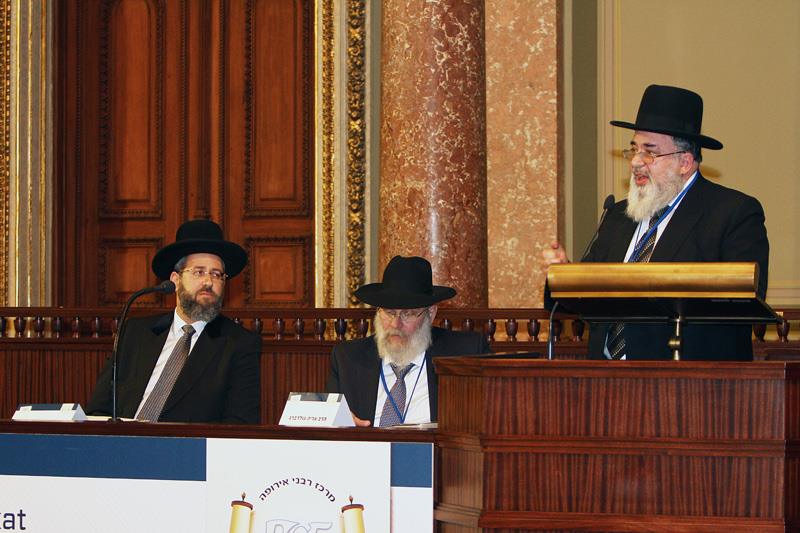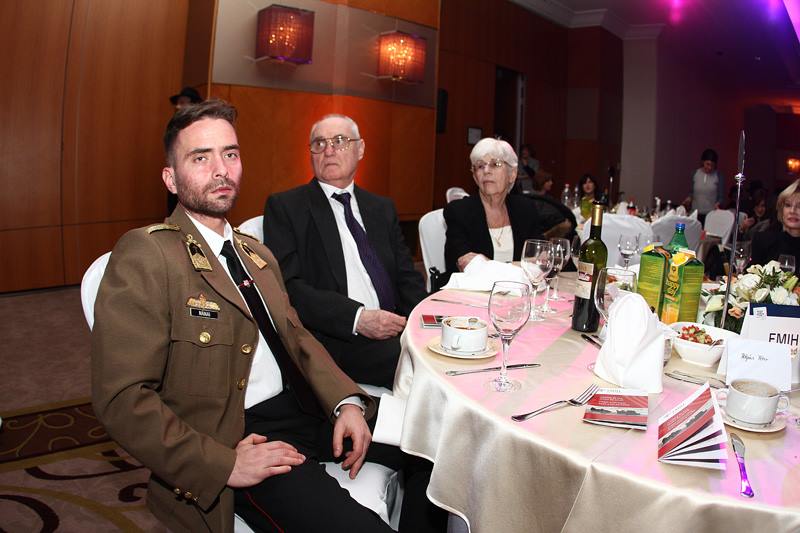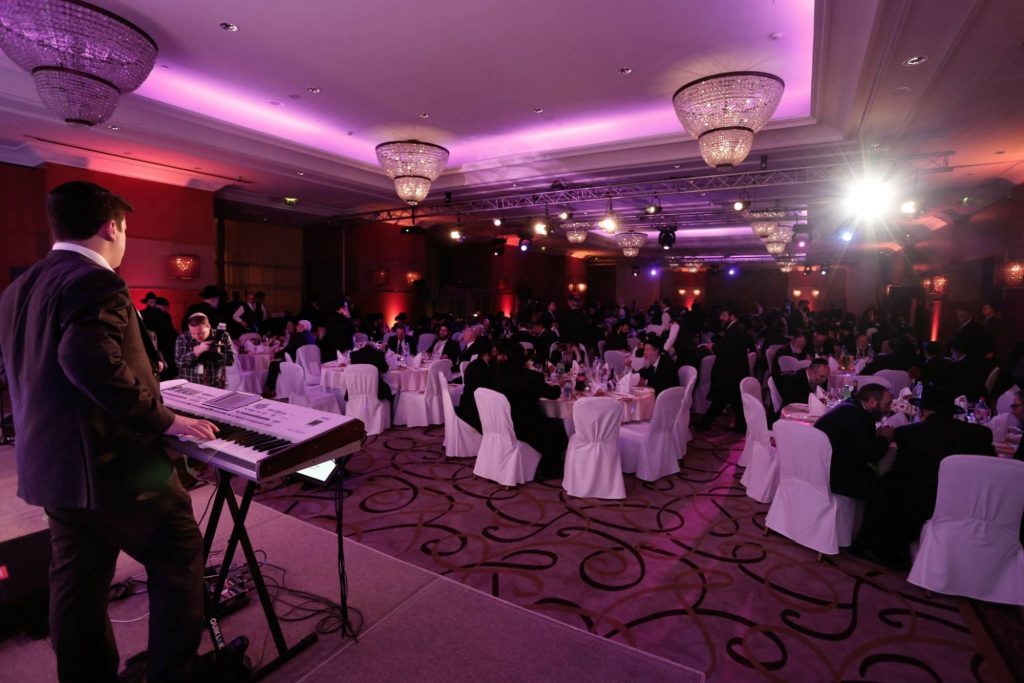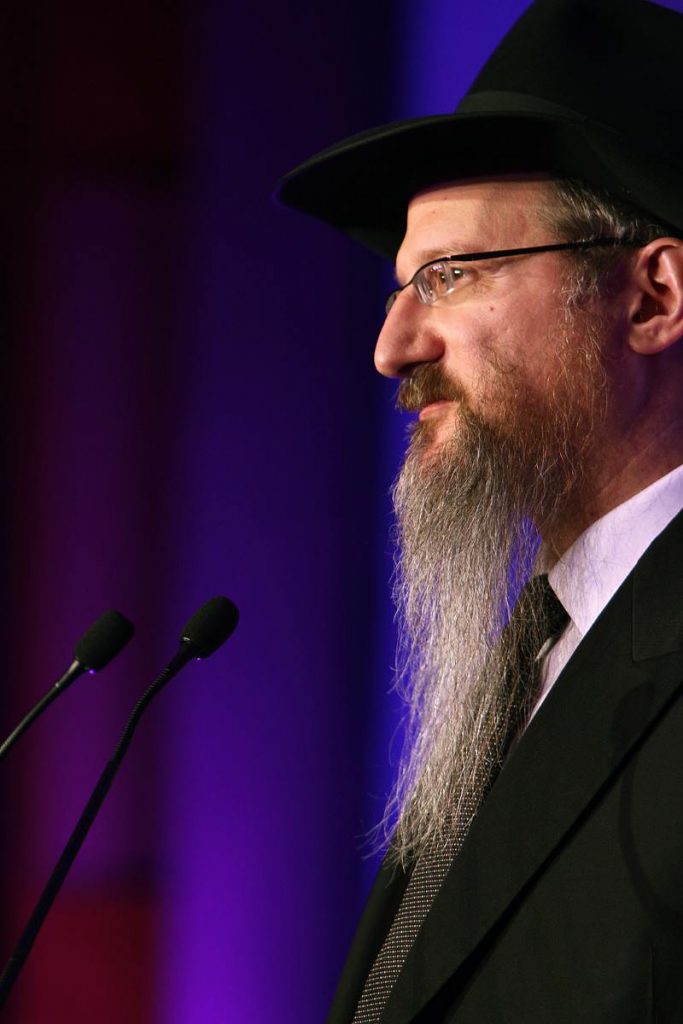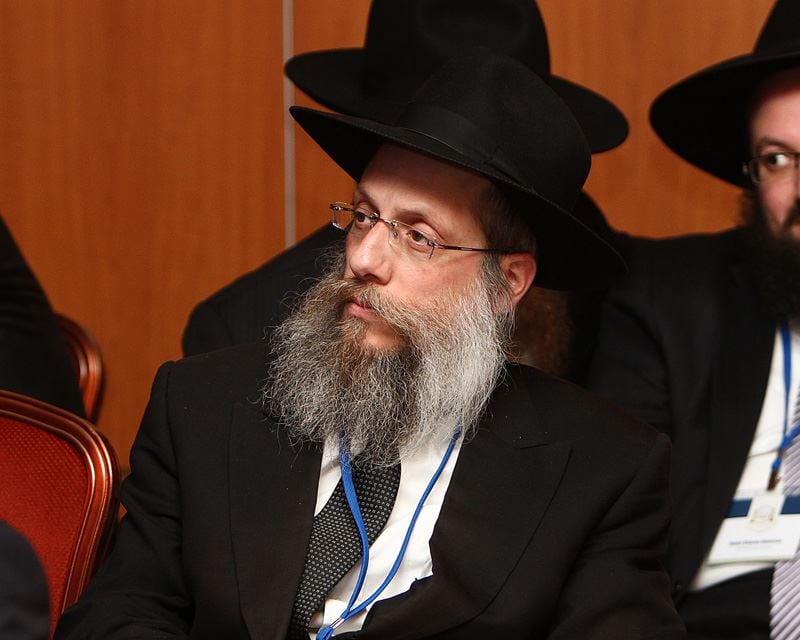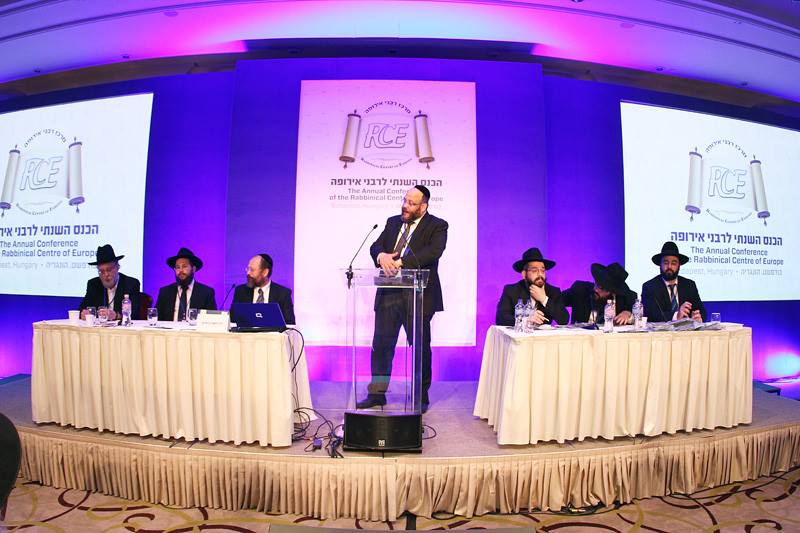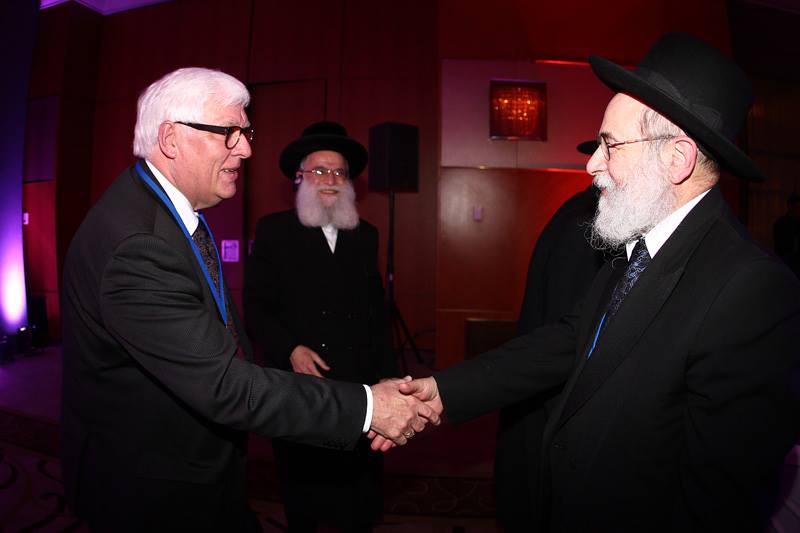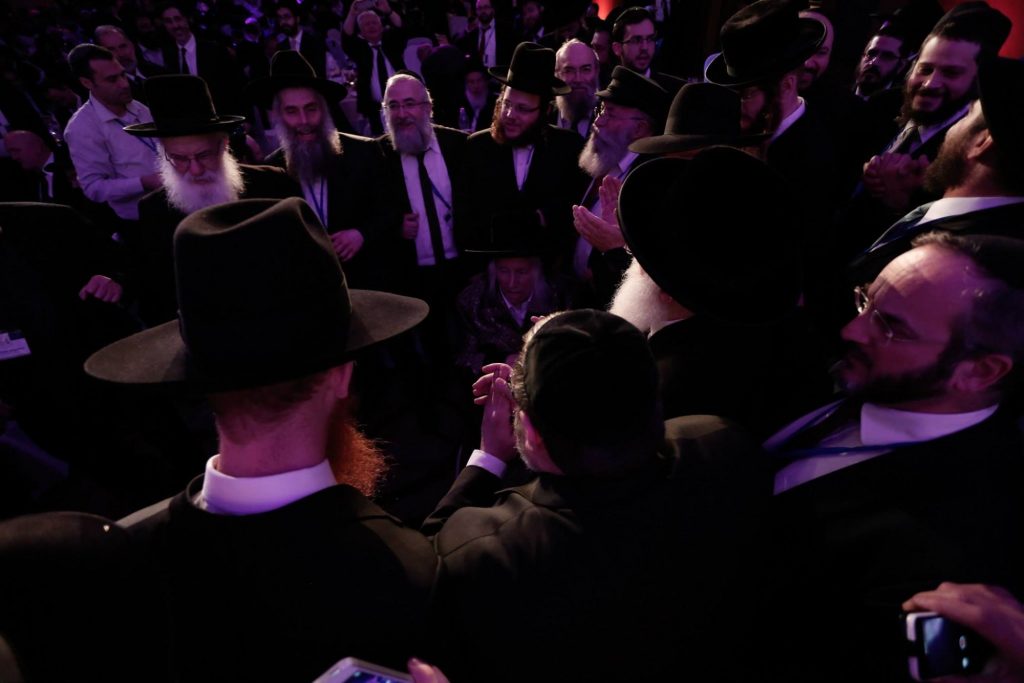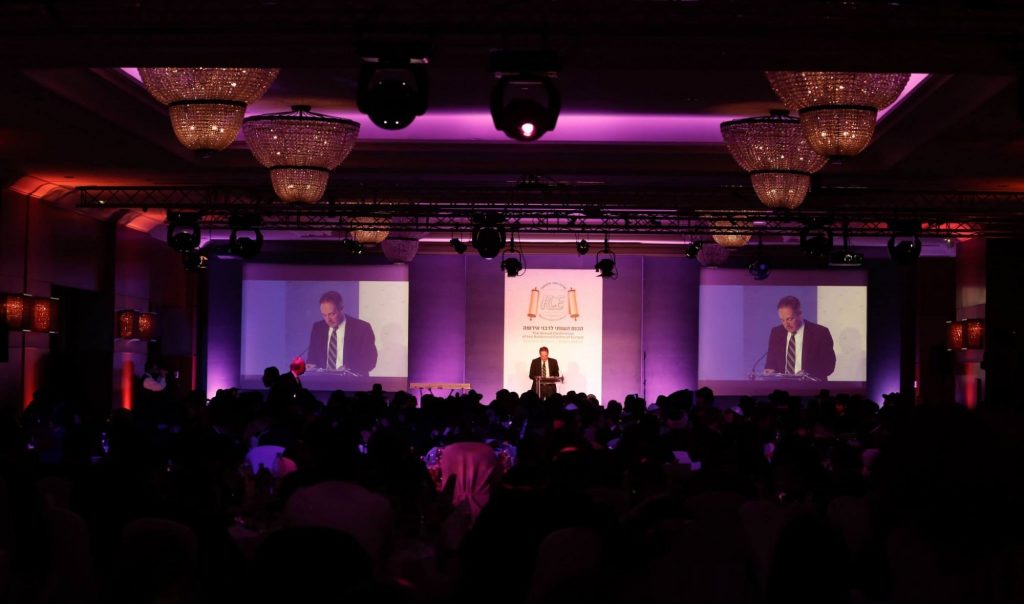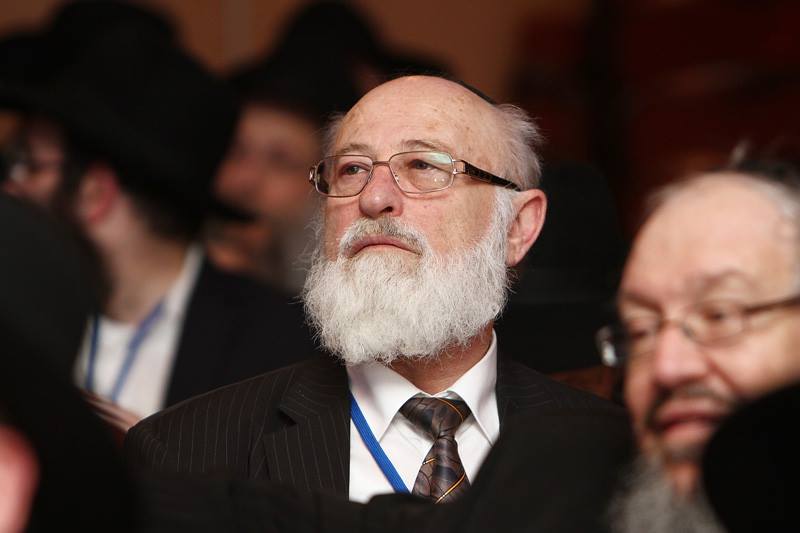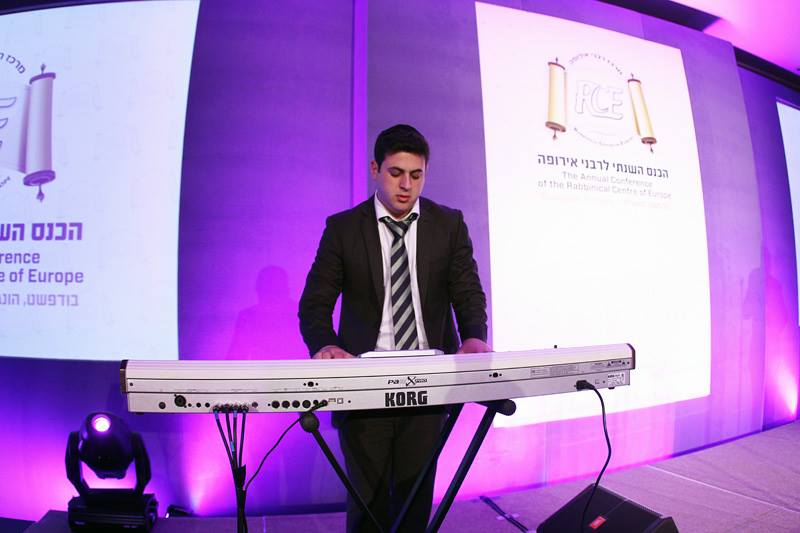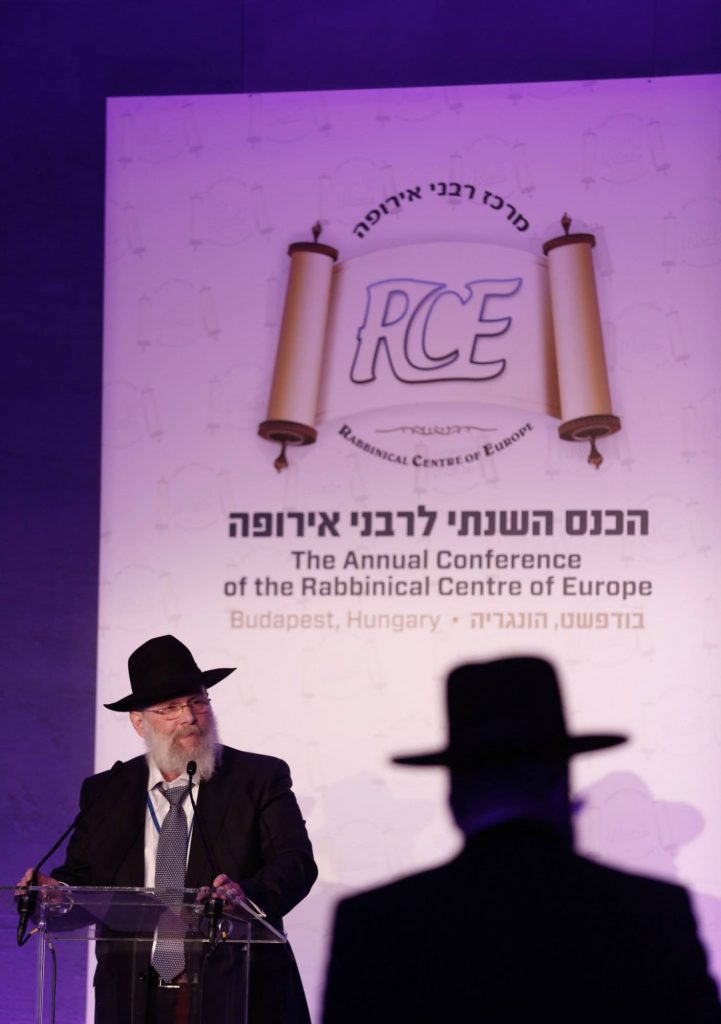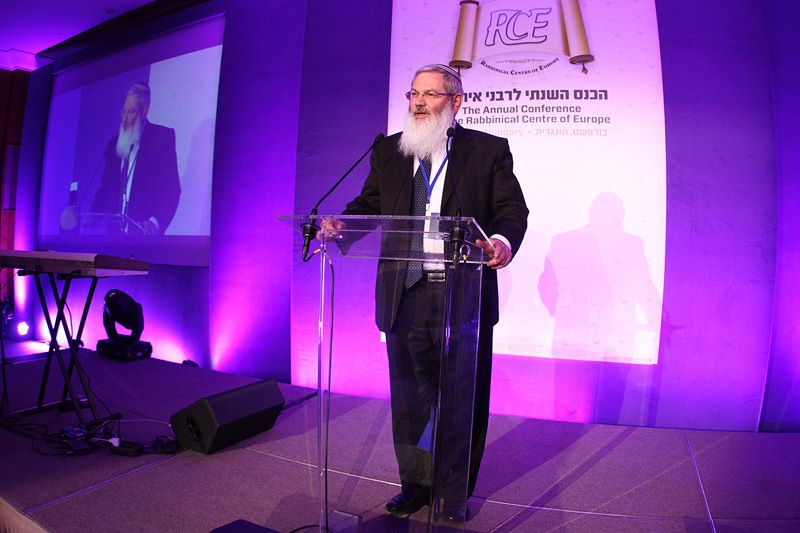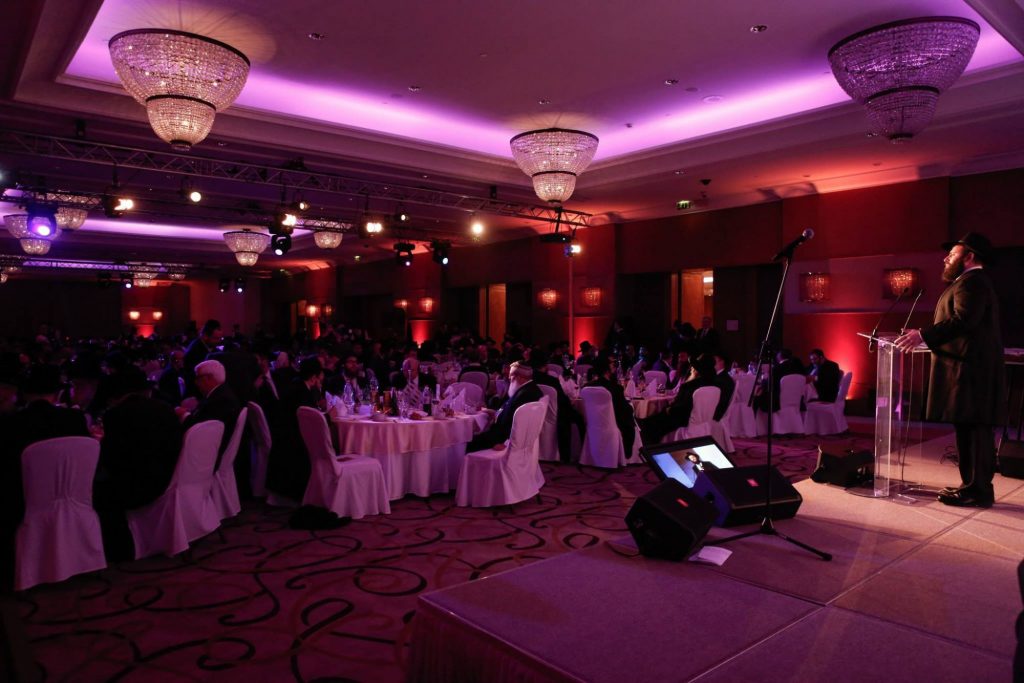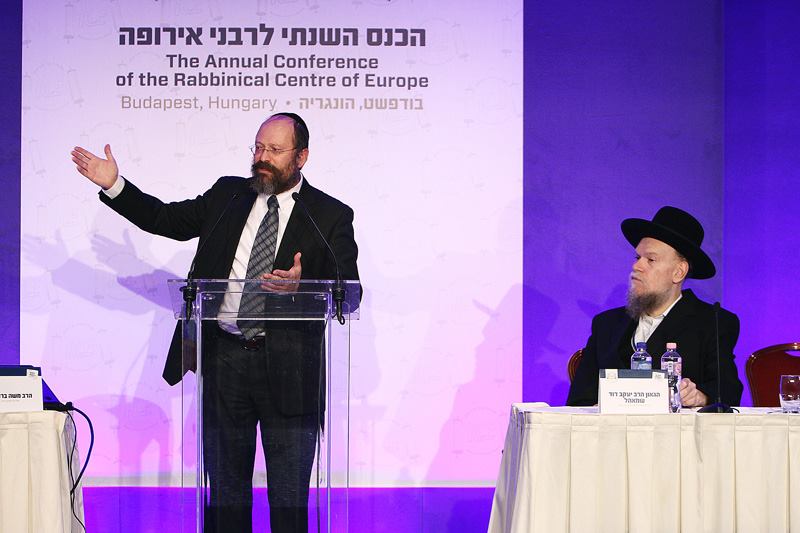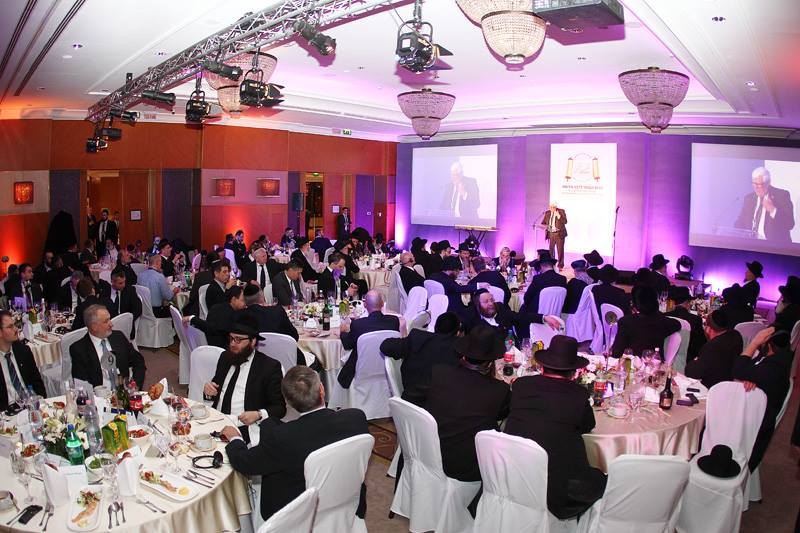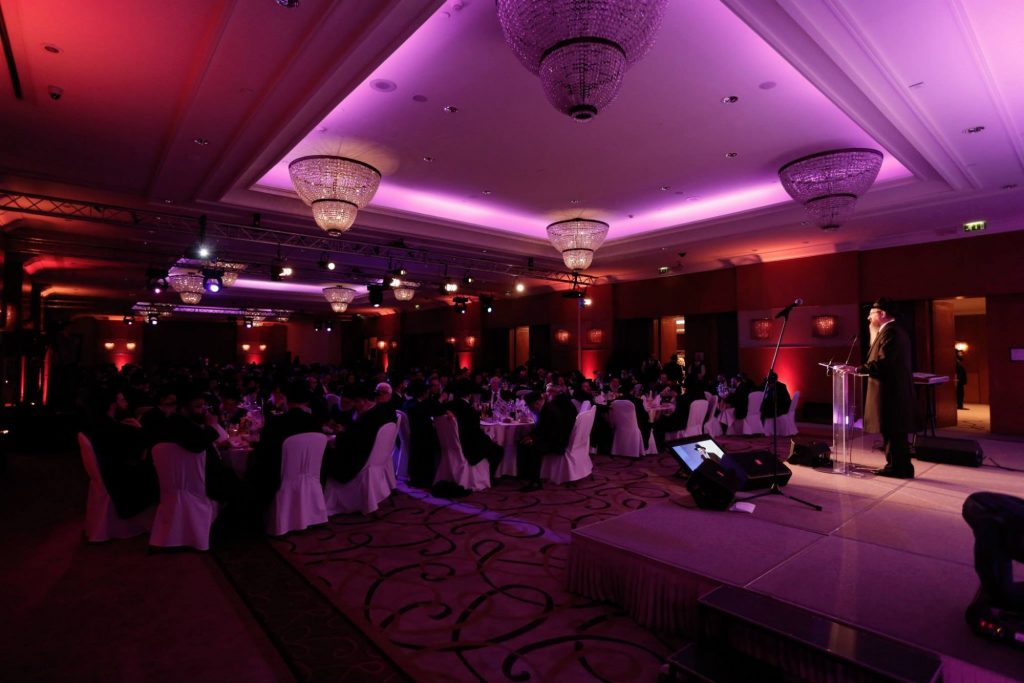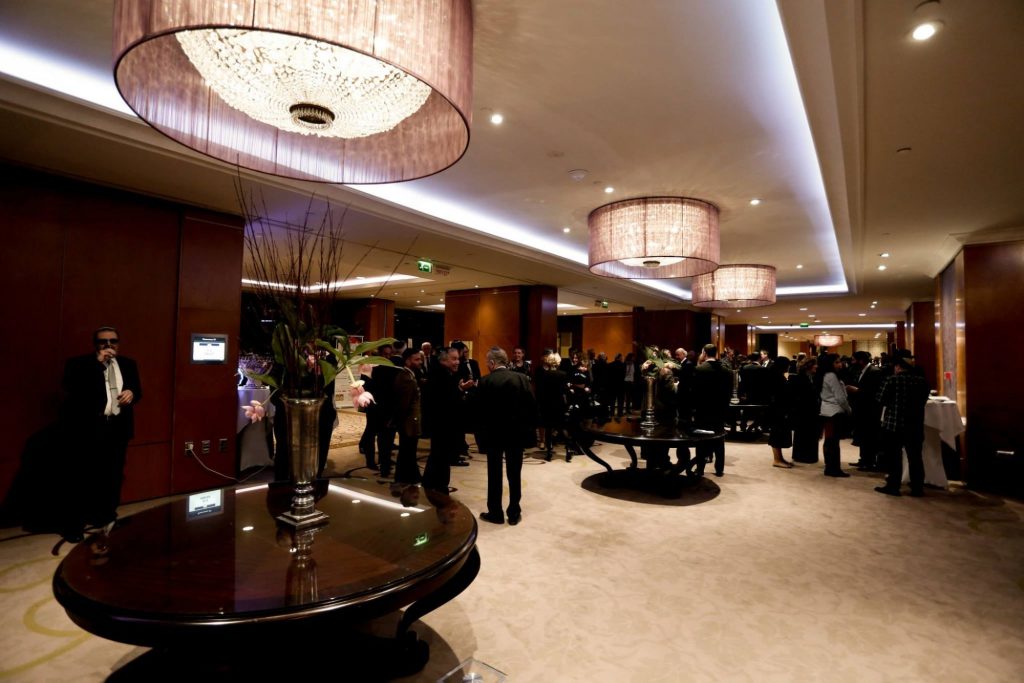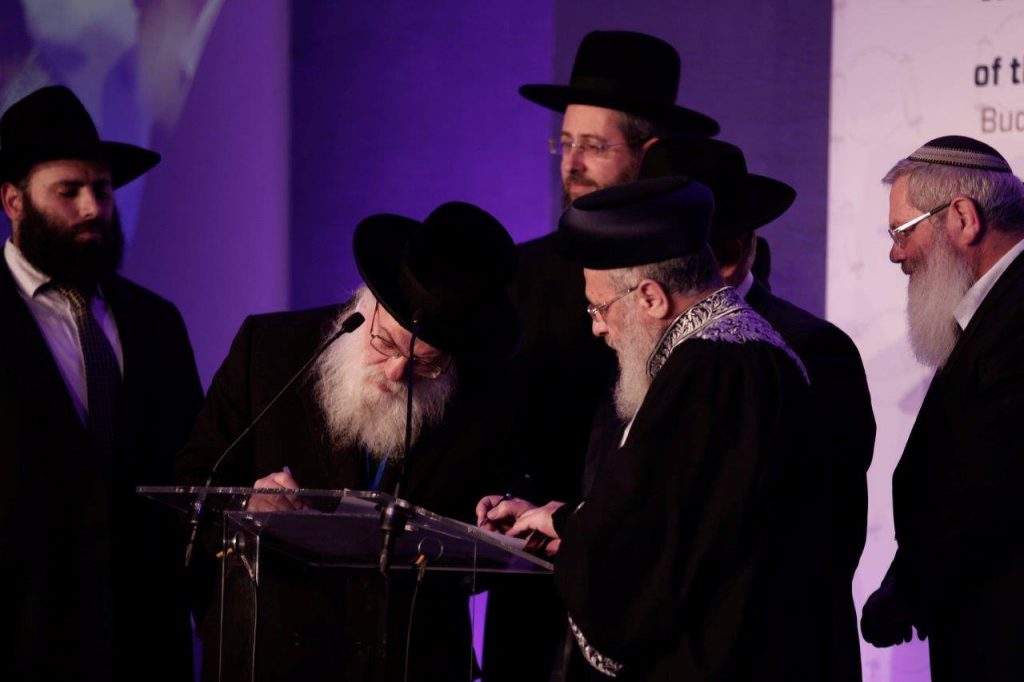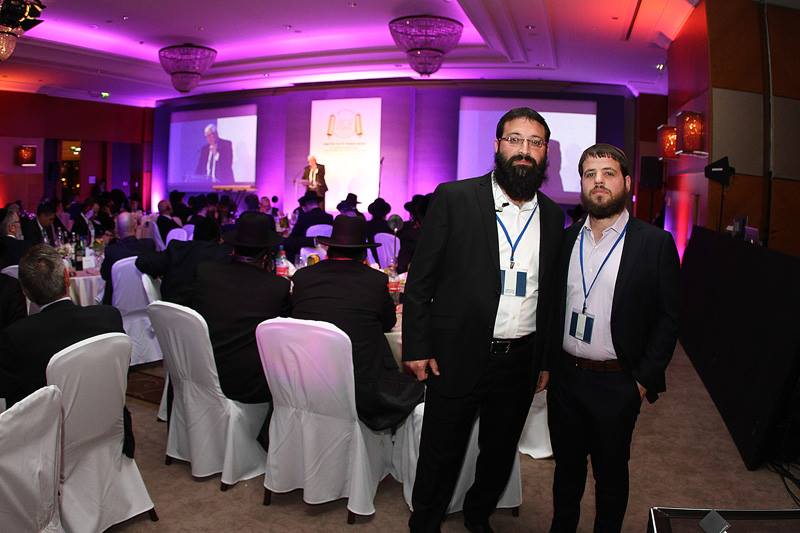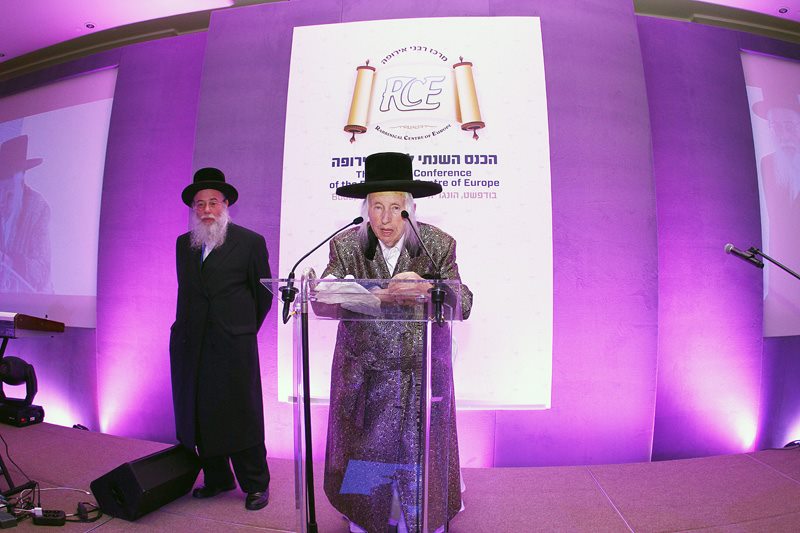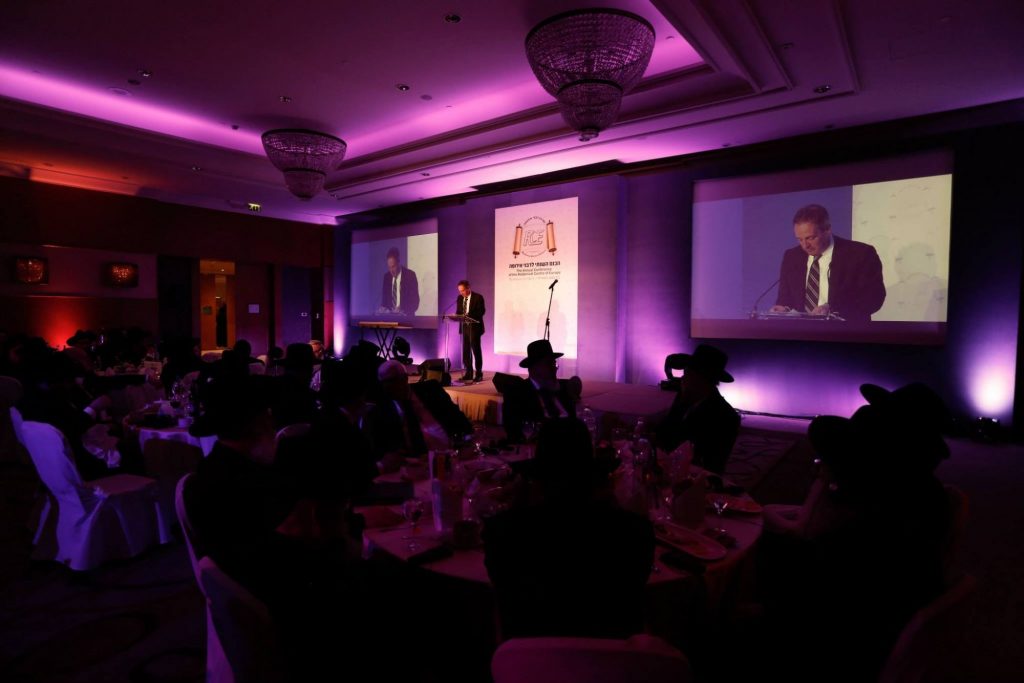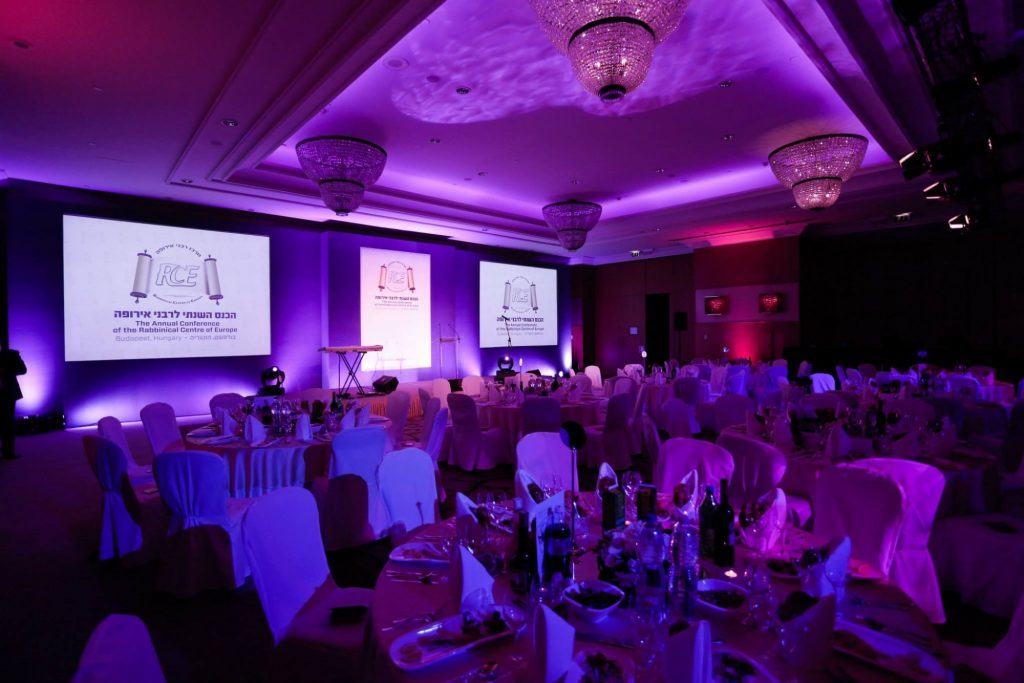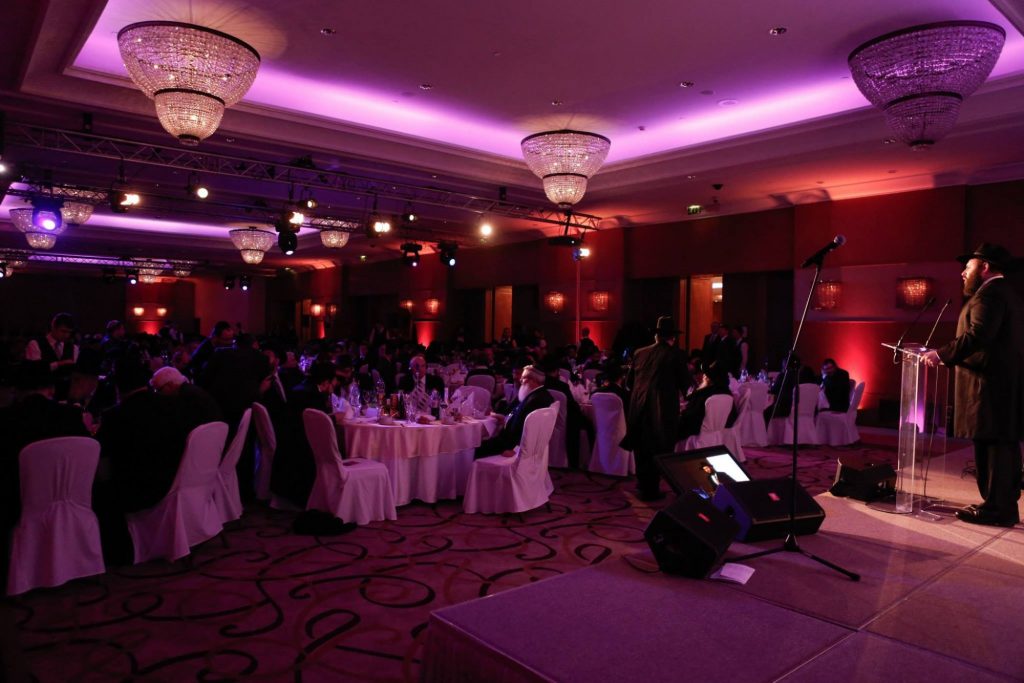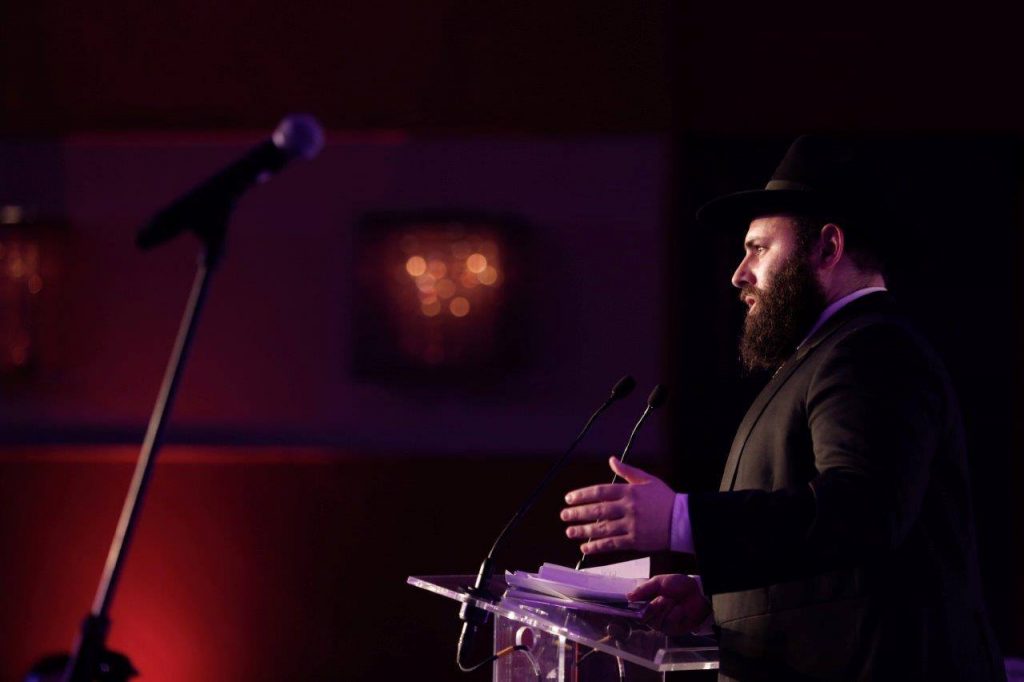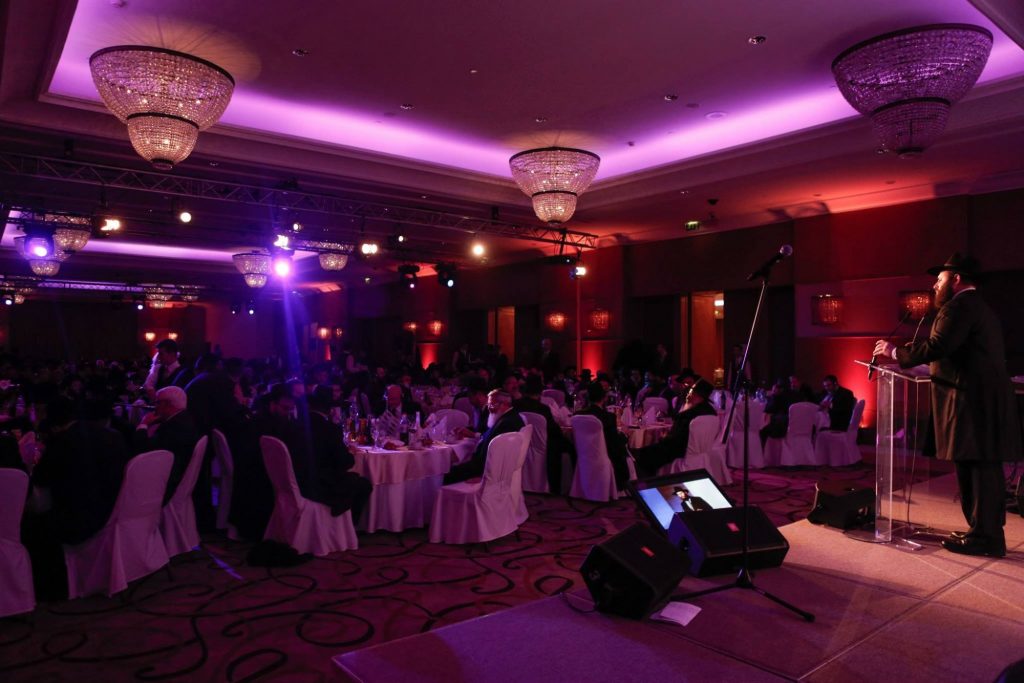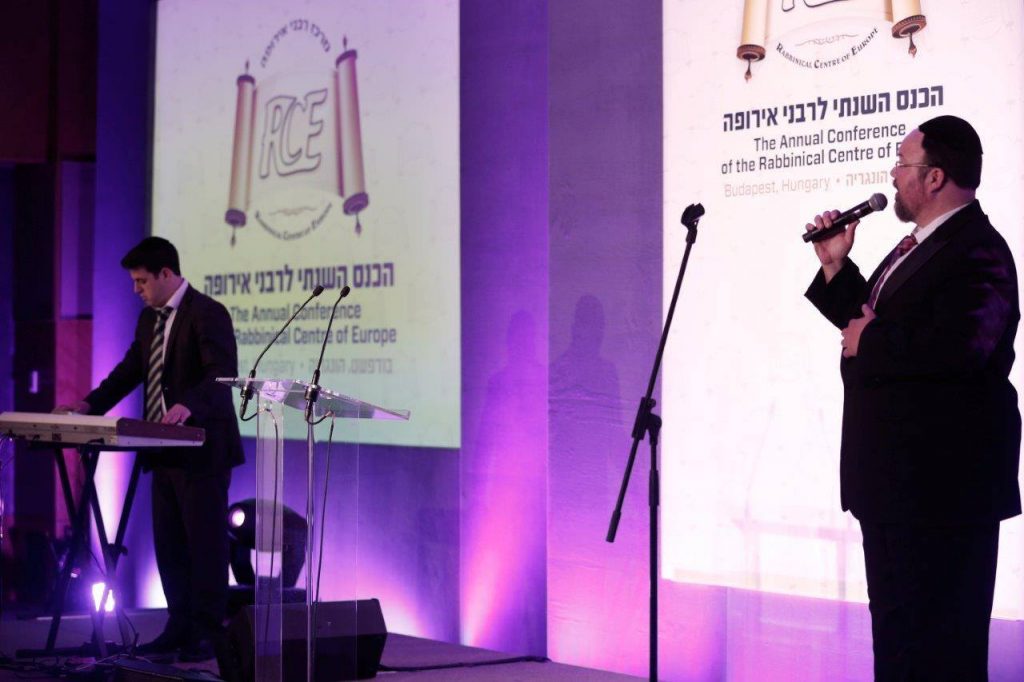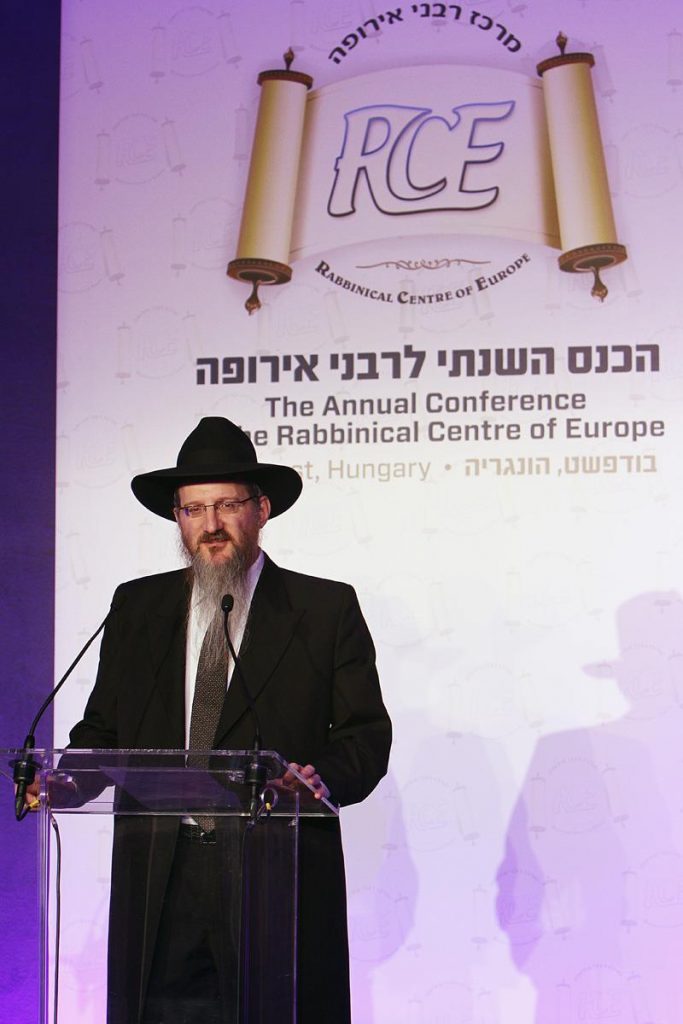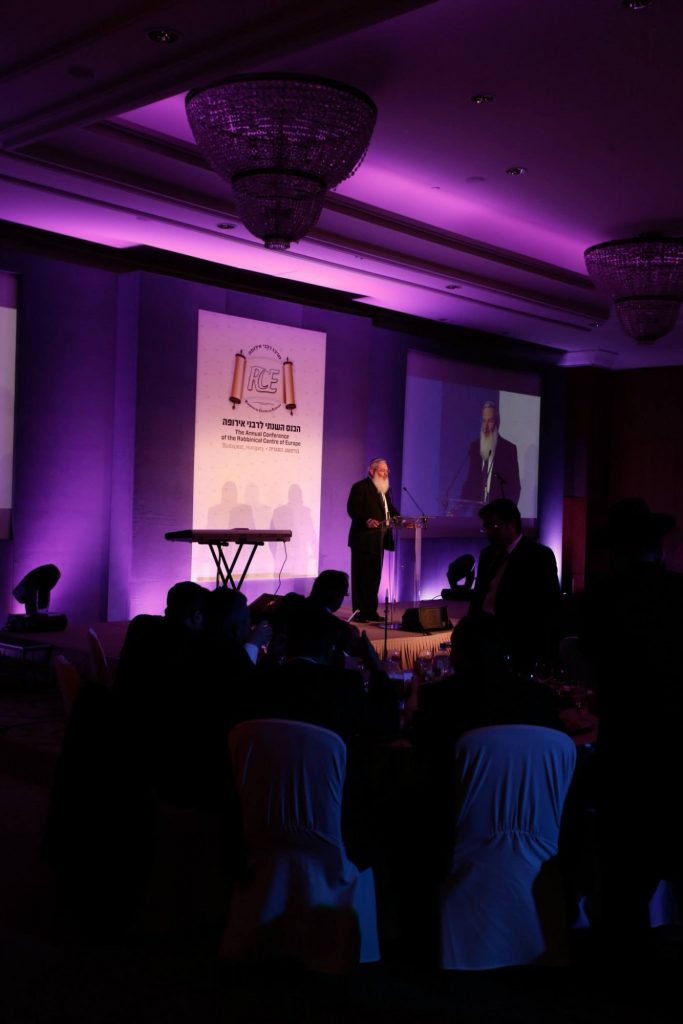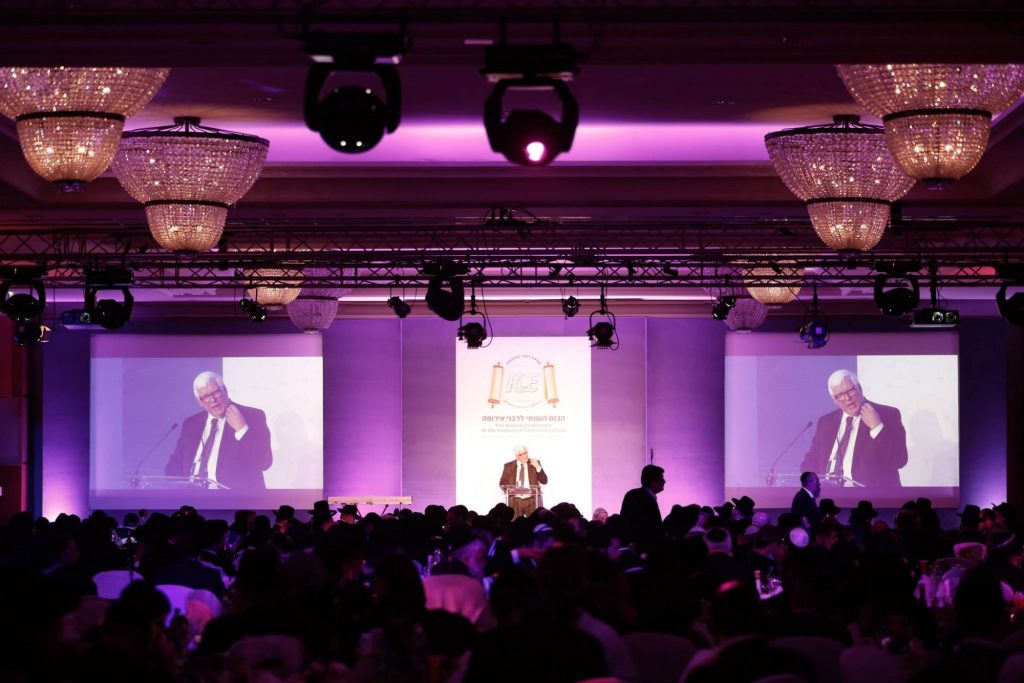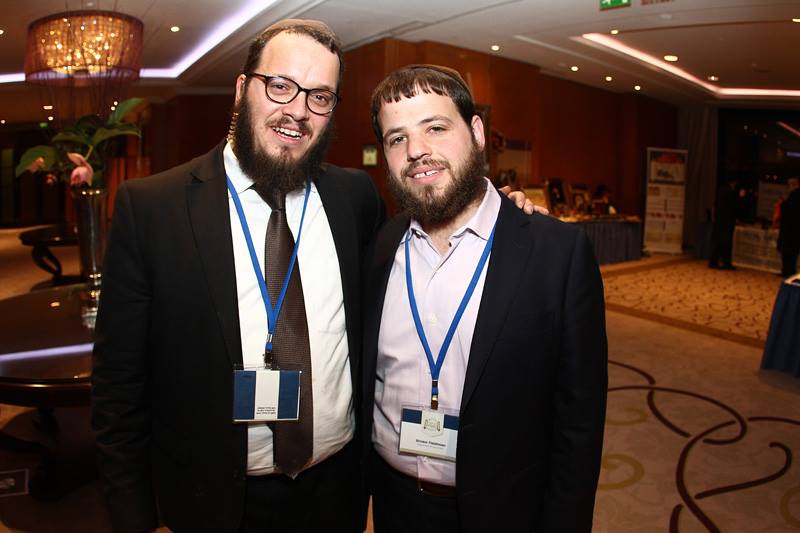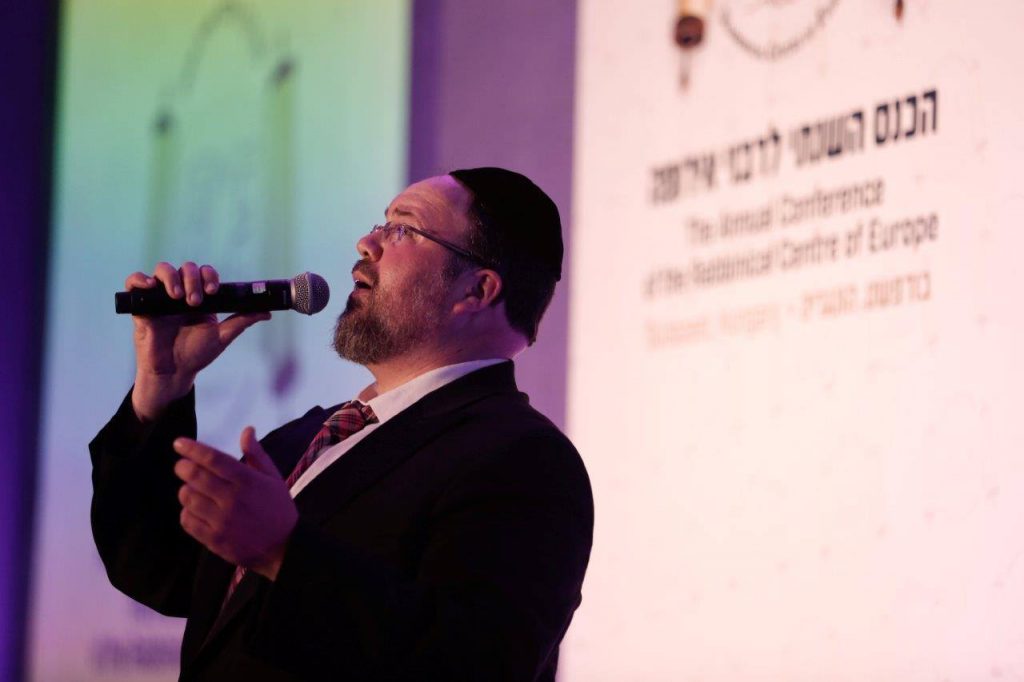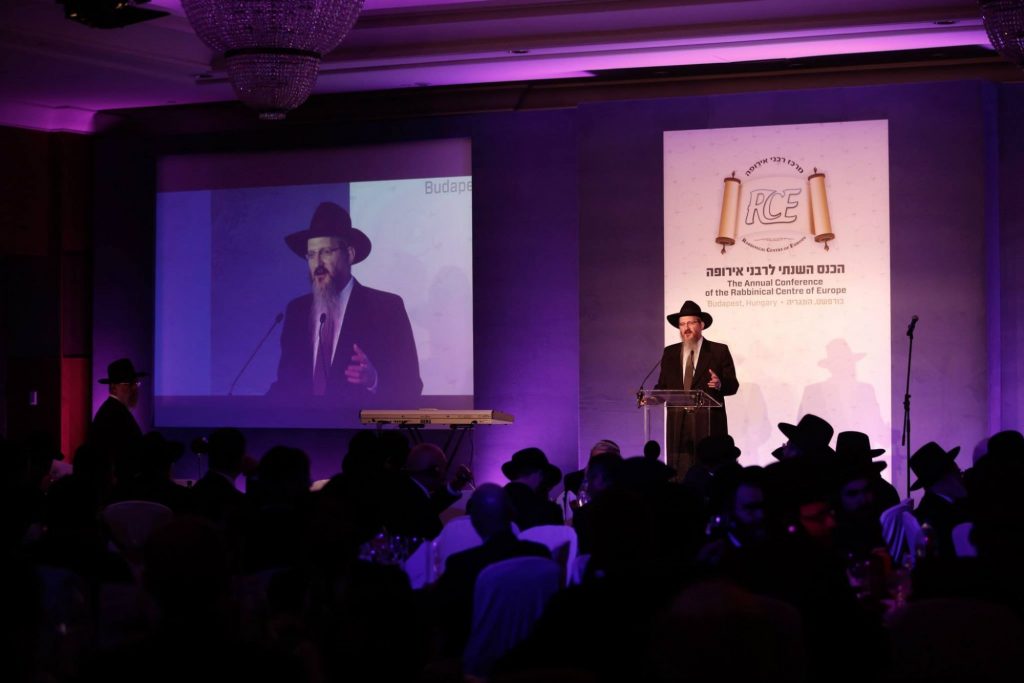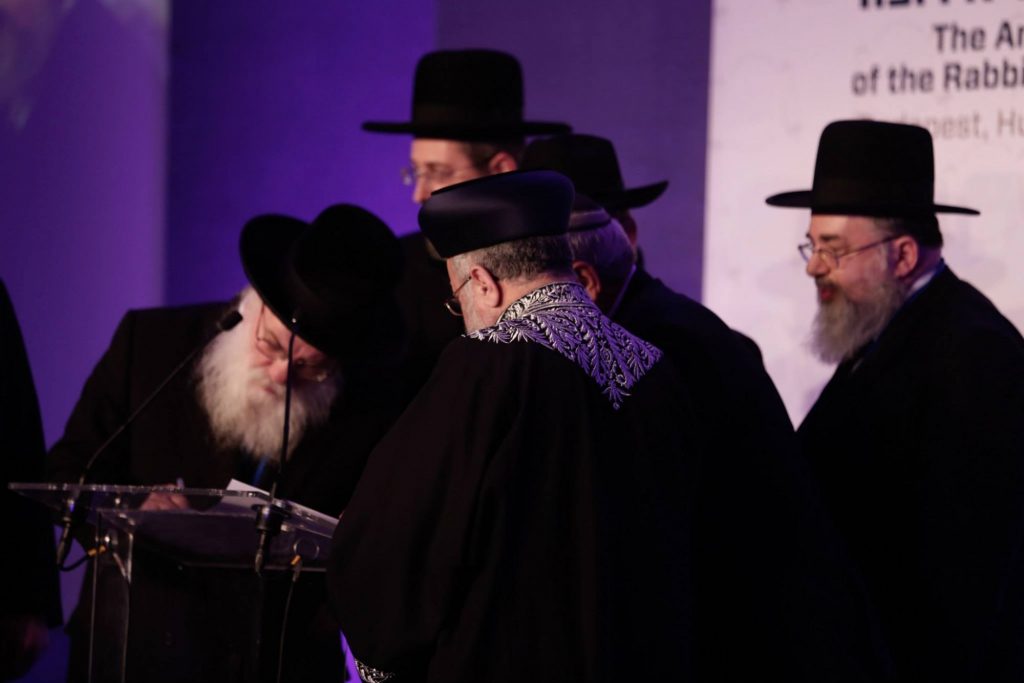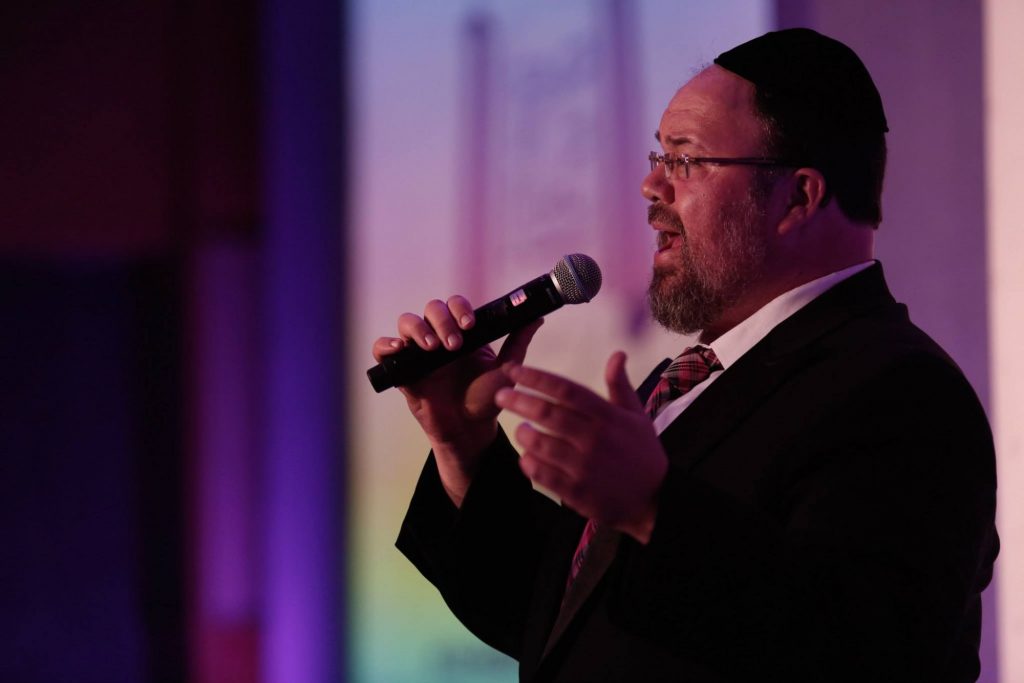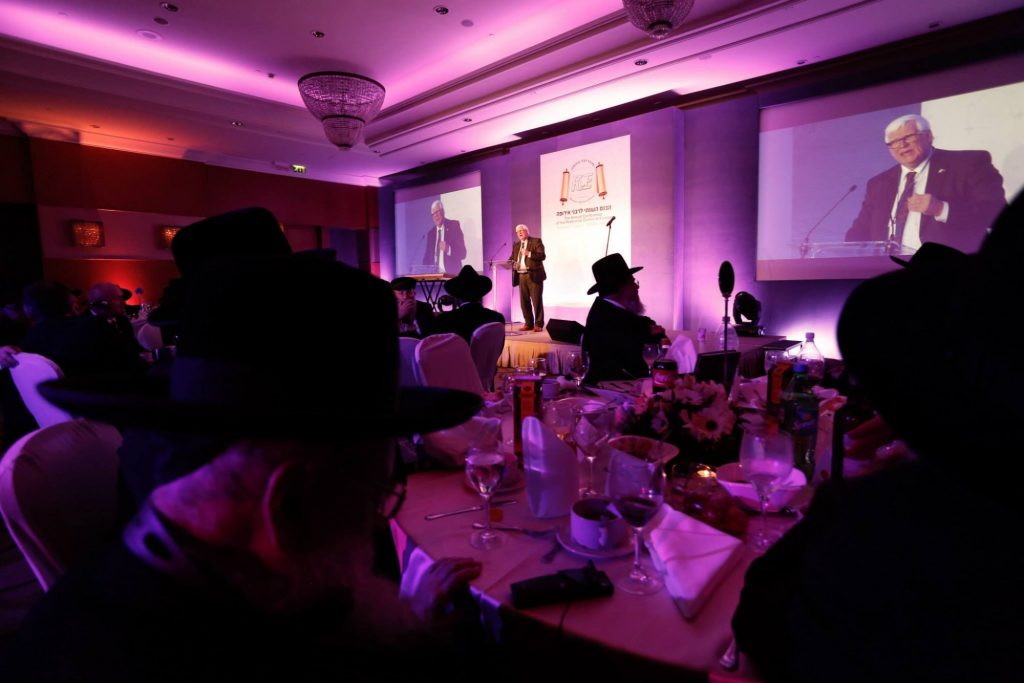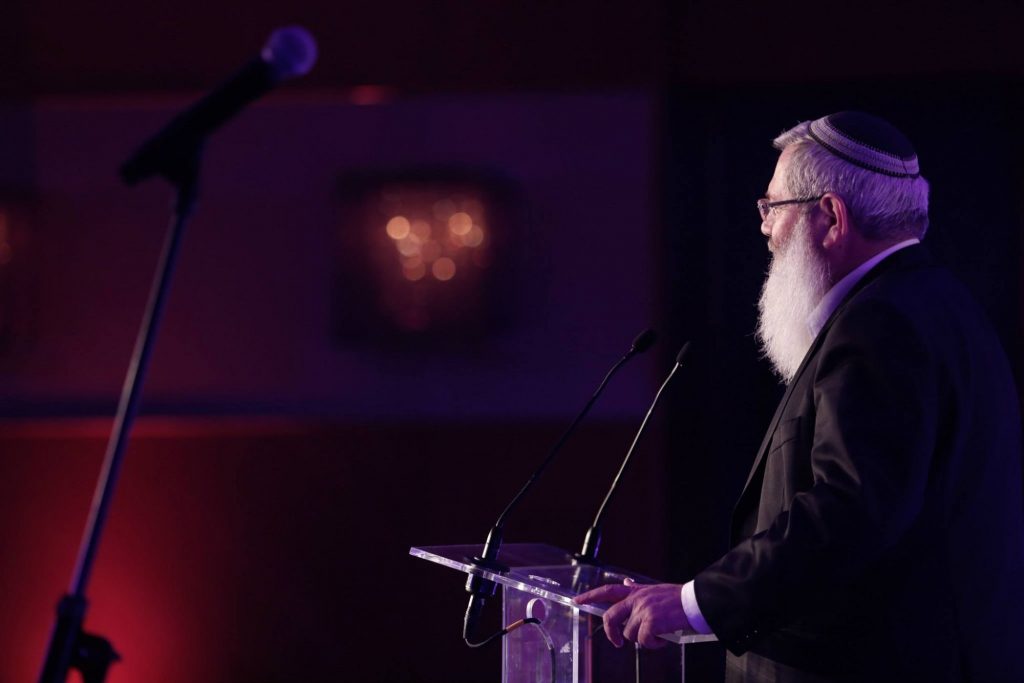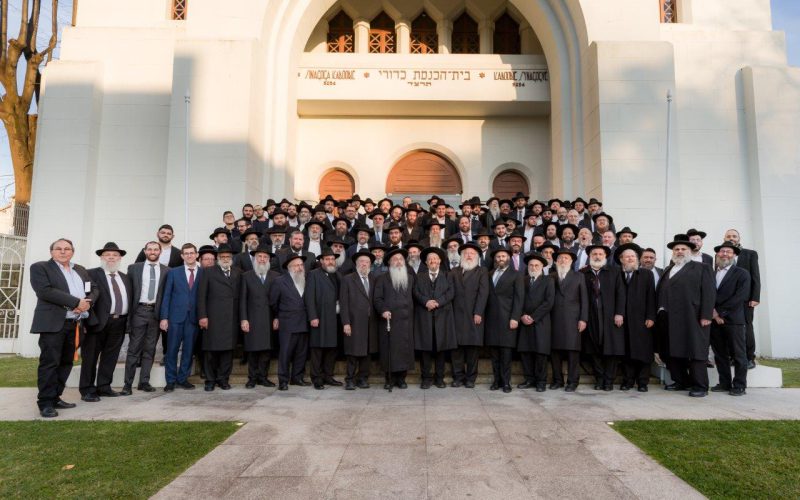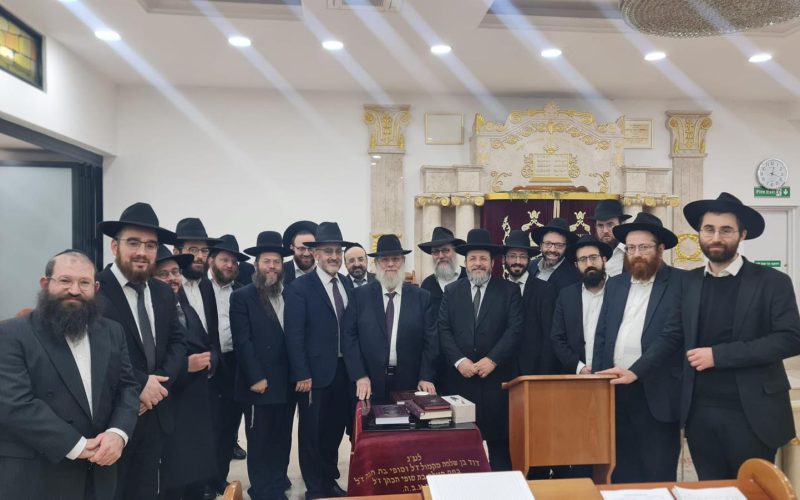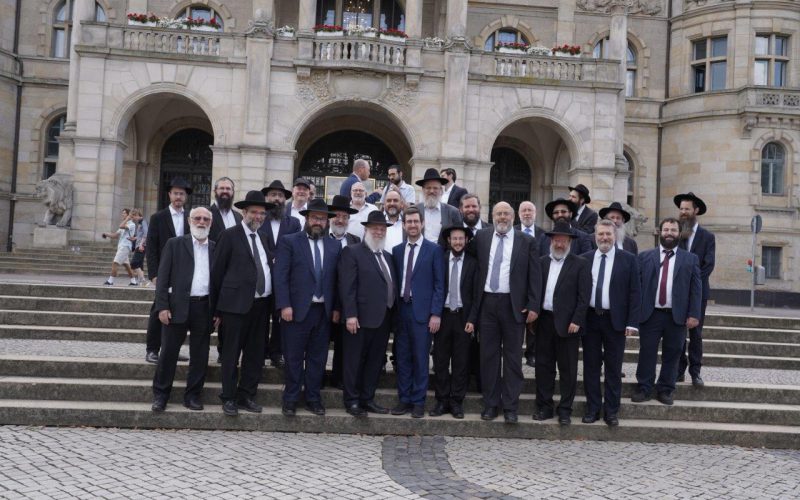RCE Conference in Budapest, 5774
Some 300 Rabbanim, including Dayanim, Chief Rabbis, community rabbis, and congregational rabbis, from all sectors and from 40 different European countries, convened last week in Budapest, Hungary. The convention’s main theme was a series of discussions, led by Europe’s leading rabbis, about the challenge of widespread assimilation that is eating away at Jewish communities, and the many halachic problems that accompany this issue.
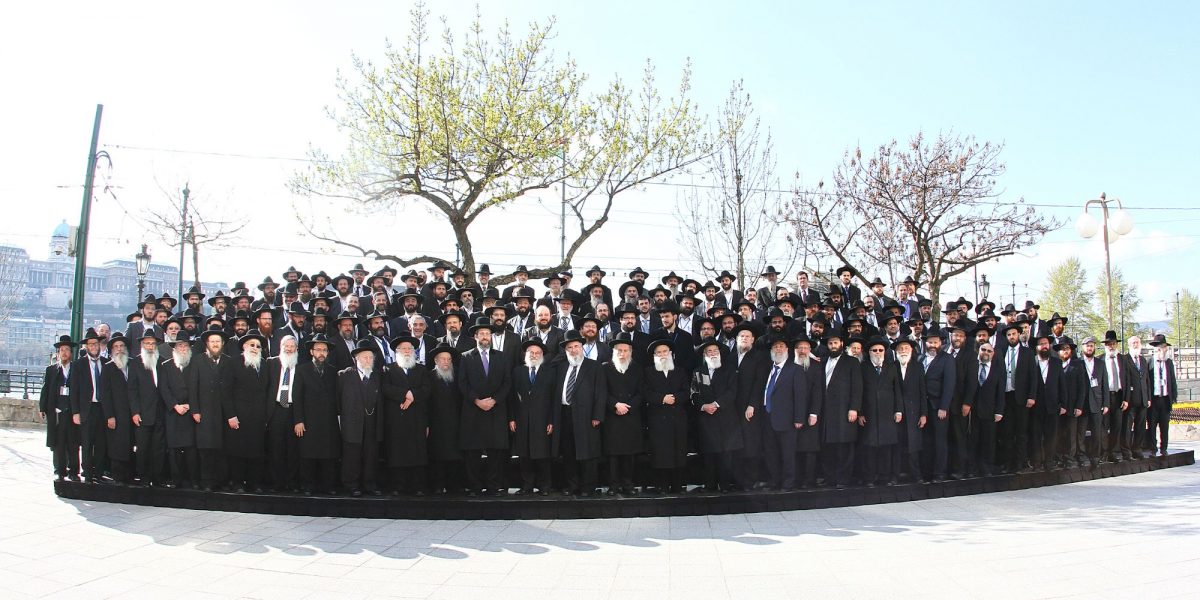
Some 300 Rabbanim, including Dayanim, Chief Rabbis, community rabbis, and congregational rabbis, from all sectors and from 40 different European countries, convened last week in Budapest, Hungary. The convention’s main theme was a series of discussions, led by Europe’s leading rabbis, about the challenge of widespread assimilation that is eating away at Jewish communities, and the many halachic problems that accompany this issue.
The directors of the RCE, the most active and influential rabbinical organization on the continent, an organization that includes over 700 member rabbis and that gives assistance to some 1,200 European rabbis, decided to arrange for this conference for the purpose of dealing with the number-one issue facing Europe’s Jewish communities – assimilation. According to a recent survey taken by the RCE, whose results were publicized at the conference by director Rabbi Menachem Margolin, the scope of this issue of assimilation is far greater than previously thought. More than 85 percent of Europe’s Jews are assimilated; more than 80 percent don’t attend a synagogue even on Yom Kippur; over 75 percent of Europe’s Jewish children receive no Jewish education whatsoever, and over 90 percent of Jewish university students do not maintain any connection with a Jewish community.
“In my community,” one of rabbis related, “there is a young man who comes from a nonobservant Jewish family, and he wanted to know what was wrong with marrying a non-Jewish woman. I responded, explaining my answer at length. He listened carefully and replied that he would think about it. About two weeks later he came back and asked, “How do we know that her father isn’t simply an assimilated Jew himself? They observe several Jewish practices in their household.’ Since that time he has not agreed to meet with me again.”
This was only one of many problems related to assimilation that this rabbi had encountered and presented to hundreds of his colleagues at the conference.
One rabbi addressed himself to Rabbi Baruch Oberlander, Chief Rabbi of Hungary, and said, “Let’s take Hungary as an example. About a hundred years ago, many of its Jews changed their surnames to Hungarian names as a patriotic gesture. Now the names of the Jews are quite similar to those of the non-Jews of Hungary. After years of intermarriage with a people who themselves are a blend of many races, the Jews are hardly any different from their neighbors. How can you deal with this phenomenon?”
Rabbi Oberlander responded, and a lively discussion ensued, with each rabbi citing unique examples from his own experiences. A bystander could easily have gotten the impression that the issue of assimilation consists of a number of disparate questions. Rabbi Shimon Alitov, a member of the RCE’s Rabbinical Council, commented, “Before we rush to convert non-Jews, let’s work on holding on to those who were born Jewish, to prevent them from assimilating. The alarming rates of assimilation that we’re seeing is worse than the physical Holocaust that our nation witnessed.”
It is no simple matter to bring together 300 rabbis from 40 different countries for two days of intensive discussions. What they all share is a long list of serious halachic problems, such as the scourge of assimilation, and the attempts by various governments to forbid the performance of circumcision and kosher slaughter – steps that would take a toll on many Jewish communities. And there are a number of additional issues that had arrived at the desks of the RCE’s presidium and its rabbinical council. Thus it was decided that this conference be held so that these issues could be discussed and solutions formulated for the mutual benefit of all the rabbis.
The huge task of organizing the conference fell on the shoulders of the RCE’s director Rabbi Menachem Margolin and deputy director Rabbi Aryeh Goldberg. They were assisted by their dedicated staff, including Rabbi Avraham Abba Turetsky, Rabbi Mordechai Biton, Rabbi Shmuel Bistritzky, Fleischmann Productions, and additional staff who were brought in to ensure that every detail would be taken care of. After much discussion, Budapest, Hungary was chosen as the conference’s venue, in order to bolster its Orthodox community, which is marking 70 seventy years since the decimation of Hungarian Jewry during the Holocaust.
The meeting rooms were jam-packed with participants, representing all the sectors of Torah Jewry. Rabbis wearing frock coats and homburgs sat alongside those wearing Chassidic caftans and pinched hats. The harmony and mutual cooperation of the rabbis in this RCE gathering was tangible. This was the first time such a large number of rabbis from all sectors had gathered together since the Holocaust, and everyone was given the opportunity to express his opinions and to participate in the discussions.
A great many issues and questions were fielded by various panels. Every rav chose which discussions to attend based on his own interests and on what best addressed his needs. Those discussions that were of interest to many rabbis were transcribed by RCE staff, and the main points were summarized and handed out to all who requested them. Some of the issues were discussed over meals, so that everyone could participate.
The experts who had garnered much experience in dealing with assimilation were Rabbi Moshe Braverman and Rabbi Doron Kornblatt. They led workshops and offered practical advice in how to deal with assimilation. They used attractive slide presentations to illustrate their ideas, which made it much easier to understand their message, and they provided the rabbis with effective tools to assist them.
One of the central issues was the attempt by several European governments to forbid the practices of circumcision and kosher slaughter. Rabbi Berel Lazar, Chief Rabbi of Russia, declared, “We will fight to ensure that no Jewish boy in Europe will remain uncircumcised,” adding that the rabbis of Europe, of Israel, and of the entire Jewish world must stand united in their insistence that kosher slaughter be permitted throughout Europe.
“I believe,” Rabbi Lazar stated, “that we can say without a doubt that those who oppose circumcision and kosher slaughter are anti-Semites. They might be clothing it new, idealistic terms, but their true goal is to prevent Jews from practicing Judaism. During the Holocaust they murdered us outright, but now they realize that such efforts are doomed to fail. Today, they are attempting to snuff out our souls. Our goal is to rebuild a new European Jewish community that is stronger than ever before.”
The leading European rabbis were accompanied by the two Chief Rabbis of Israel, Harav Yitzchak Yosef and Harav David Lau, at the conference. The Chief Rabbis have been true partners in all the activities of the RCE, and they are always ready to support them in any way that is necessary. One evening of the conference was devoted to saluting the member rabbis of the RCE, and at that time an agreement was signed for cooperation and mutual recognition between Israel’s Chief Rabbinate, Israel’s Ministry of Religious Services, and the RCE.
Harav Yitzchak Yosef held the rabbis in attendance spellbound as he delivered a brilliant hour-and-a-half lecture on hilchos Pesach. Harav Lau also delivered shiurim, and both of them displayed breathtaking genius and fluency in Torah knowledge.
In recognition of the fact that the Holocaust is partly responsible for the rampant assimilation of European Jewry today, the RCE scheduled a major rally in memory of the martyrs of the Holocaust, on the shores of the Danube River, where tens of thousands of Jews were massacred. The Kaliver Rebbe, shlit”a, who is a survivor of the war, participated in the event. He conveyed his blessings to the rabbis and encouraged them in their holy work in their communities, and he prayed on behalf of the Holocaust’s victims. Harav David Moshe Lieberman, Antwerp’s Av Beis Din, encouraged the rabbis in attendance to bring as many Jews as possible closer to a Torah life, so as not to allow more Jews to join the ranks of the victims of the terrible Holocaust. Harav Yitzchak Yosef read aloud a perek of Tehillim and recited Kaddish in memory of the holy souls who died there, while Harav Lau spoke words of Torah for the merit of the martyrs, declaring that we must learn from them. Everyone was moved emotionally when the famous cantor Harav Avraham (Avreimi) Roth sang the Keil Malei Rachamim in memory of those who had been so viciously murdered by the Nazis.
The master of ceremonies for the event was Rabbi Shlomo Kovesh, one of Hungary’s outstanding Orthodox rabbis. He spoke powerfully to the crowd, which included several hundred of Budapest’s Jews, as well as Budapest’s mayor, Hungary’s minister of defence, the minister of religion, and other officials.
As the conference drew to a close, meetings were held by the directors of the RCE, Chief Rabbi Lau, Israel’s Deputy Minister of Religious Services Rabbi Eliyahu ben Dahan, Hungarian Chief Rabbi and Av Beit Din Rabbi Baruch Oberlander, and Rabbi Shlomo Kovesh, rabbi of EMIH, all of whom met with a number of high Hungarian officials, including Hungary’s President.
RCE Director Rabbi Menachem Margolin mentioned in his remarks that the many rabbis who were attending the conference felt deep gratitude for the manner in which they were received and hosted, and especially for the unprecedented level of security provided by the government.
When Hungarian President Janos Ader addressed the conference, he said: “Over the past 25 years (since Rabbi Oberlander arrived in Hungary) we have witnessed an amazing revival of European Jewry right here in Budapest. There are more and more synagogues and Jewish schools, youth activities, a university for Judaic studies, kosher slaughterhouses, and more.” He added that the Hungarian government is proud of its Jewish citizens and that it will do everything in its power to ensure that Jewish life will continue to flourish with full freedom of religion. Chief Rabbi Lau thanked the president for his warm words and requested that the Hungarian government act quickly and forcefully against anyone who incites anti-Semitic acts against the Jews.
Deputy Minister ben Dahan asked the president to apply pressure on the European Union to withhold the money it gives to the Palestinian Authority in light of the fact that the money is diverted to support terrorist activities. At the end of the meeting, which lasted far longer than had been anticipated, the president gave the delegation the presidential medallion. In return, the rabbis presented him with a valuable mounted symbol of Yerushalayim, and with some ancient coins that were minted by Jews in Hungary 800 years ago.
In the final message of the conference, Deputy Director Rabbi Aryeh Goldberg thanked the RCE’s presidium, Rabbi Moshe David Lieberman, Av Beis Din of Antwerp; Rabbi Yirmiyahu Cohen, Av Beis Din of Paris; and Rabbi Yisrael Yaakov Lichtenstein, Av Beis Din of London’s Federation. He also thanked members of the RCE’s Rabbinical Council, Rabbi Moshe Tuvia Weisberger, Rav of Kehal Adas Yere’im in Budapest; Rabbi Yaakov David Schmahl, Dayan of Shomrei Hadas in Antwerp; Rabbi Yitzchak Meir Hertz, who serves as Rav of the United Chareidi Communities and Rosh Yeshivah of Lubavitch in London; Rabbi Baruch Oberlander, Av Beis Din of Kehillos Hachareidim in Budapest; Chief Rabbi Berel Lazar of Russia; Rabbi Avraham Baruch Pvezner, Rav of Kehillas Chasidei Chabad in Paris; Rabbi Michael Schmerla, Av Beis Din of Strassburg; Rabbi Avraham David, Dayan for London’s Kehillat Hasepharadim; Rabbi Levi Yitzchak Raskin, Rav of the Union of Chareidi Congregations in London; and Holland’s Chief Rabbi Binyamin Jacobs, all of whom delivered lectures and shiurim during the conference.


